ACKWORTH OLD SCHOLARS’ ASSOCIATION

One Hundred and Fortieth Annual Report 2021


One Hundred and Fortieth Annual Report 2021
Born on the 25th of April 1955 in Stevenage, Herts, Pete Causer is the elder son of architects Harry and Margaret. Two years later brother Michael was born and shortly afterwards the family made the move to another new town – Cumbernauld, in Scotland – where their father took up a new post as one of the original 12 architects tasked with creating a new town to house the overspill from Glasgow.
Growing up with the town, Pete spent five years at Cumbernauld High School, working his way through the Scout movement and being chosen as part of the Scottish contingent to the 1971 World Jamboree in Japan before transferring to Ackworth for L6 where he thoroughly enjoyed just one year studying maths, physics and metalwork. Although he left Ackworth without any academic qualifications, an interest in engineering and especially in motorcycles was sparked off which has stayed with him ever since.
Having left school, Pete worked his way through college and worked in the health service, manufacturing industry and motorcycle retail and servicing before an ongoing interest in bike racing led to him working full time in the racing industry for several successful years, an involvement which continues to this day as a Technical Official at the Isle of Man TT and other races. After a stint of truck driving, a return to college to upgrade qualifications then gained him a post as a development engineer with a major car manufacturer.
He has four children and two grandchildren. He has been married to Nici (well known to Easter Gatherers) since 2013 with whom he has lived since 1999. They have lived on the Isle of Man since 2008.
Pete’s Presidency has been extended for a further year, owning to the continuing COVID-19 restrictions.
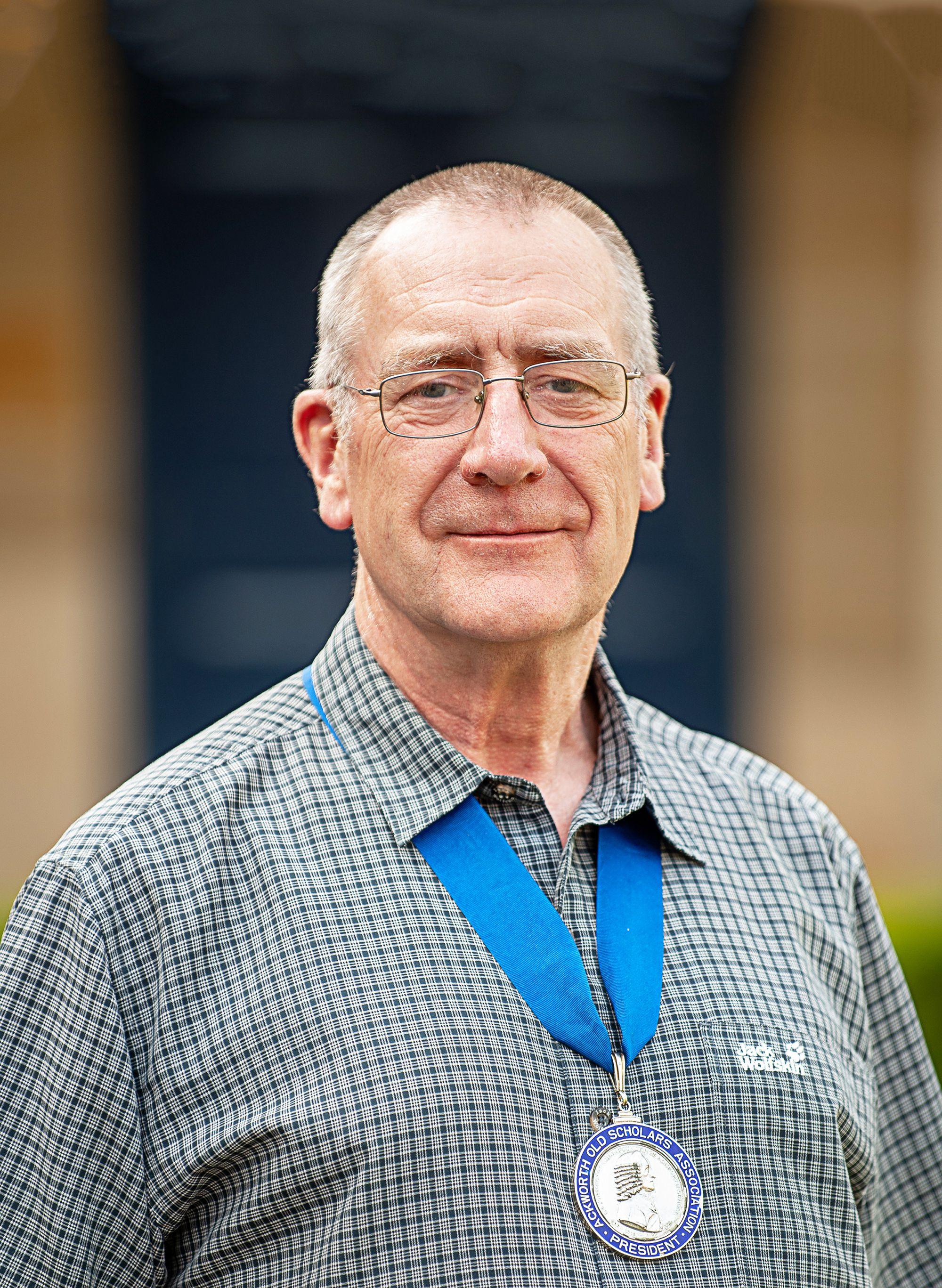
PETER CAUSER PRESIDENT A.O.S.A. 2019-22
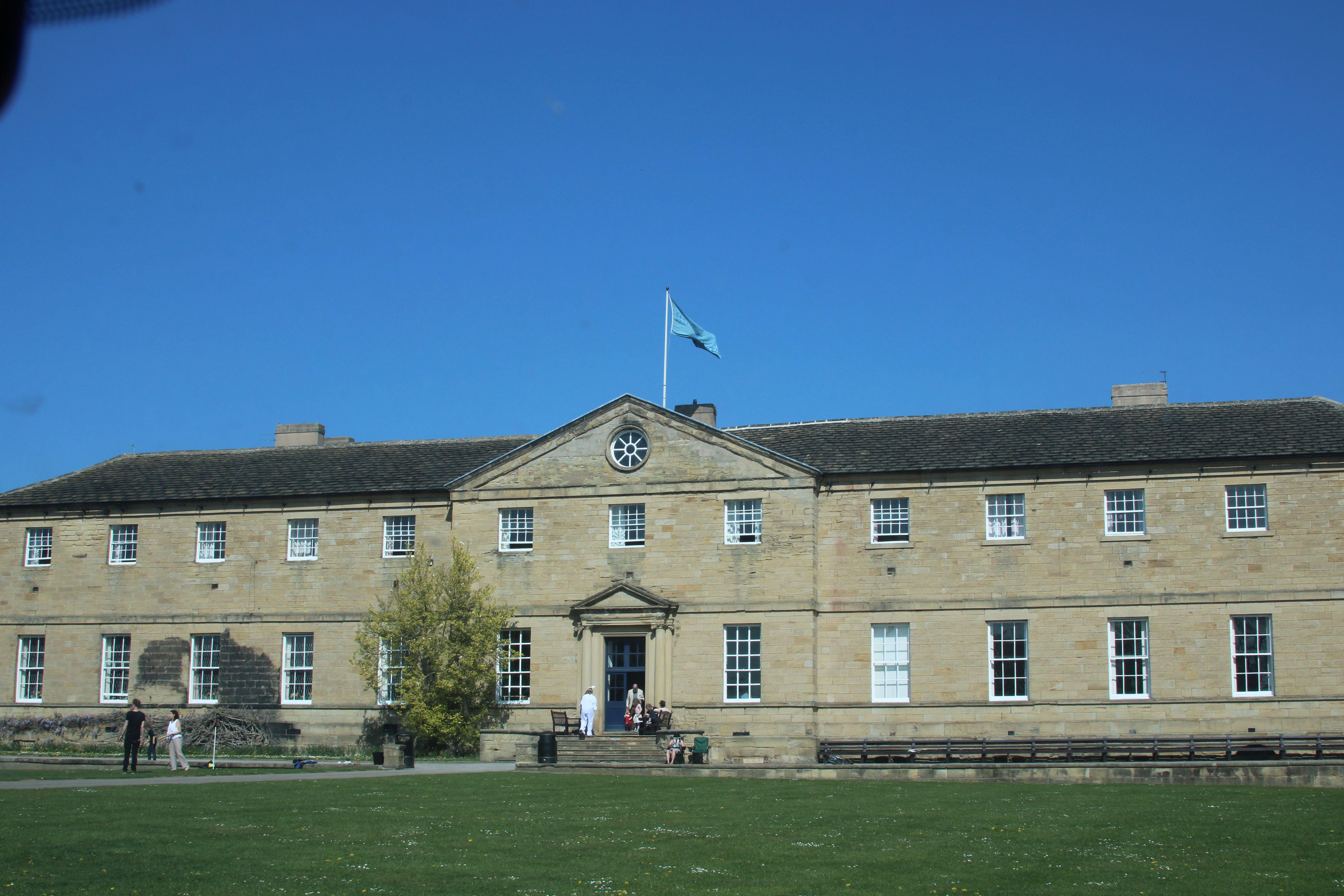
For the second year running, the Easter Gatherin we know it was cancelled, as a result of continuing Covid-19 pandemic. However, at time of writing, it seems hopeful that the Novem 2021 Old Scholars’ weekend at Glenthorne Qua Guest House in Grasmere, will go ahead.
For this year’s Annual Report, there has once a too little going on to fill even the slimmes volumes. In the 2019 issue, we took a look a school group photos from the 1960s. This year we take a look at our teachers in the middle years of the 20th century.
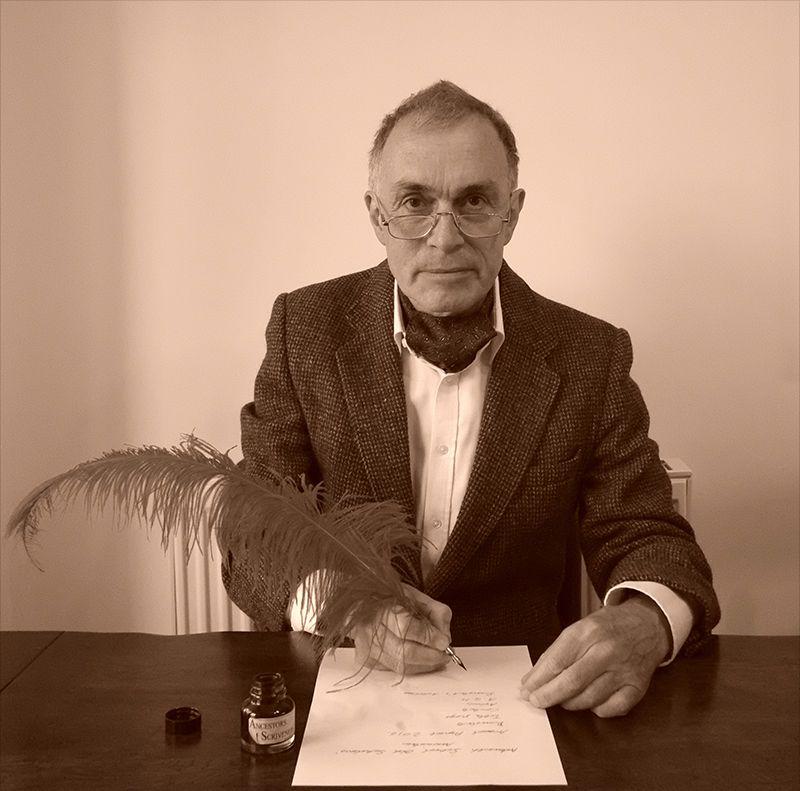
We can take an extended look at the official photographs taken in 1946, 1949, 1952, 1955, 1959, 1963 and 1966 Some faces are to be found on every one of these pictures, notably Arthur Brighton, Phillips Harris and Victor Mendham.
In recognition of the work of our teachers, I have scoured old Annual Reports in order to reprint memorial notices of those who passed away since the 1946 photo was taken.
Someone asked me this year why I was bothering to do Easter when I could have a year off, relax and enjoy a bank holiday for a change - apparently that’s what normal people do over Easter! This made me think about why I have been involved in running Easter Gathering for so long - what Easter at Ackworth means not only to me but to so many others - to Old Scholars who have attended in the past, to the family of Old Scholars to whom Ackworth has become a second home by association, to those who have always supported Easter and continue to come back every year, to those overseas who wish they could get back for Easter, to families of Old Scholars who are no longer with us, yet the connection remains strong due to Easter being so close to their hearts - I decided these thoughts might make an appropriate Grand Finale this year. Usually, the President would take over at this point in the weekend - I hope that you and he won’t mind this year that I’m doing it myself - I’m sure he’ll probably be quietly relieved that I wasn’t chasing him for yet another video recording! This is for all of you and is dedicated to the memory of my friend, Catherine Bunney. Cath is the reason I am Easter Secretary, and she will always be an inspiration to me.
Easter in Lockdown - what does that mean? Easter 2021 solo without my fab team; A weekend packed full of fun things to do, But Easter not at Ackworth leaves me feeling so blue. It isn’t just me though - you all feel the same, I know ‘cause I asked you - it’s all such a shame But still it is Easter and go ahead it must, For age-long traditions we have to adjust. So out came the bunny ears, I dusted them first, Then got to work and tried my best to coerce You lovely people into doing your thing, My daft ideas came to life with the skills that you bring. And some of you literally had no notice at all, Gaps to fill, but you’re amazing, no favour too tall. And look what we did when we all worked together, Great minds, positive thoughts from birds of a feather. And now Good Friday is suddenly here, Yet in the blink of an eye Easter will disappear
And all of those things we were going to miss; The atmosphere, the hugs, though we can still blow a kiss.
But no clatter of crockery, No Great Garden rockery, No humming of fridges, Or squeaking door hinges, No creak of the floorboards, No meals to look forward towards, No centre passage smell
No slippery stairwell, No swimming pool, No vestibule, No mealtime drool
Or common room fool!
No sports
On the courts, No cake, A homesick ache
No green, Except on the screen, No bus stop dash, There and back in a flash!
No car tetris with boxes, Or cricket pitch foxes, No Bucket or socks, No pretty spring crops, No stayaway break
For us to take, And John’s awake!
But still no cake
No wall to wall eating, No corridor pipes heating, No cupola striking, No Ackworth hiking; No rickety trolleys, No tennis ball volleys, No echoing Easter chatter
Of everyone having a natter.
And no eggsited buzz of Centre Library this year; Who could have known - we had no idea
That the little Easterisms we have all grown to love
Would be ripped away from us, worse than losing one glove
And we’ve had internet glitches
And technical hitches; If it wasn’t for Bill, I’d have lost the will!
New activities, Online festivities, Even breasticies, Eggsellent Creativities
We had no door codes to learn,
But no arrivals to yearn.... (....eggsept baby Grace!)
The Badsworth race
In a faraway place;
Tennis with Thomas - isn’t he ace?!
Then baby lambs and baby calves; At Easter we don’t do things by halves!
Now we’ve made it to the end of Easter 2021 It was different, yet still special, but now it is gone
We’d looked forward together with the same sense of purpose,
Determined to carry on as acorns to quercus.
And just as we did when we all were at school, We mingled and mixed but in an online whirlpool. Ackworth is special but Easter is more, Old Scholars gathering, old and new friends we adore
And we thought we’d be without the giggles and laughs
But our memories are strong, and the photographs Remind us of those who once were our age, Thinking similar thoughts, on the same page.
So - Easter in lockdown - what did that mean?
The year we had fun on an internet screen?
The year we missed out on all that we love?
I think it’s probably all the above.
But we celebrated in familiar ways for the whole weekend, At times with the technology driving me round the bend! And one thing’s for sure in a hundred years time, When the whole world will all probably have moved online, Someone will look back and be wondering how we got through;
How we survived Easter not at Ackworth asking “what did they do?
And for me it is simple, the answer is we remain Non sibi sed omnibus and keep bright the chain. Thanks for all your support via this online domain; And please, come join us next Easter at Ackworth again. But personally, I just hope that Cath is proud; That she enjoyed watching us from up behind a cloud, Drinking, having fun - just like she would have done; Eggsited the Easter Gathering tradition goes on and on.
Sal Wright - AOSA Easter Secretary
Easter Sunday 2021
As you might see from the programme, Sal Wright again managed to conjure up another highly imaginative ‘virtual’ Easter Gathering with many familiar features for those Old Scholars & their families who were able to handle “Zoom” & other such Social Media platforms such as Facebook. Perhaps future actual gatherings might be shared around the world with those unable to travel to the school?
Many regular attenders at Easter Gatherings enthusiastically cast off the gloom of Covid lockdown to show how life goes on & that if we all pull together, with Sal at the front of the rope we will win the tug-of-war & return to School at Easter 2022.
Our household was a refreshing hive of activity with all of us getting involved in the variety of activities – Nicola took her “Early Morning Walk” each day & her Sunday photo encapsulated the Quakerly art of reflection. Thomas had enormous fun in front of the camera to produce his tennis practice videos and the “Spot the Server” quiz.
There were so many highlights to remember Easter by – Chas’ Stuart’s inimitable and quirky quiz – Elspeth’s unstinting encouragement to get people smiling – to name just two! However, for me, the items which seemed most like the real thing were the “Common Room Zoom” sessions, when Old Scholars slumped in their armchairs with a glass of whatever & indulged in the time-honoured pastime of ramping up the rate of verbal exchange. It was so lovely to see both Tim Benson (1940-46) & Dorothy Walker Robbins (1933-38) from Canada as well as all those closer to “home”.
All in all, it was a thrilling substitute for Easter Gathering at Ackworth,
masterminded by Sal and supported by so many others. Thank you all.
Michael Hargreave
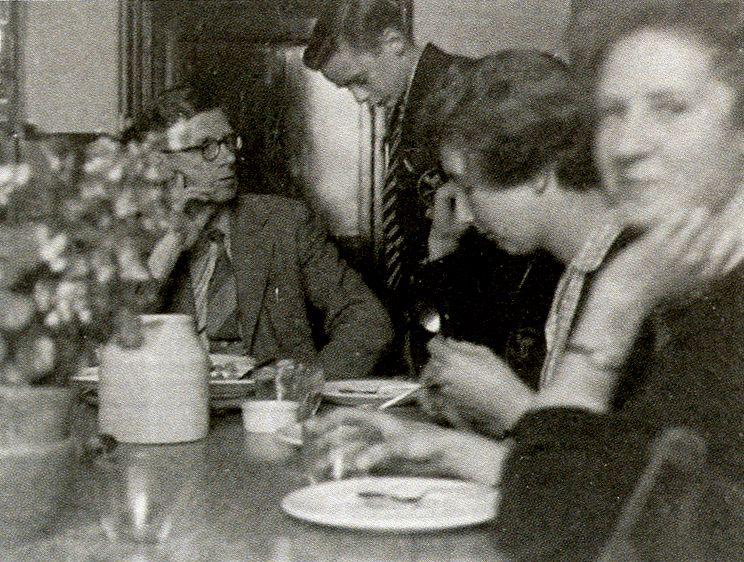
History was my favourite subject when at Ackworth. I was initially taught by Peter Norris, aka ‘Piggy’ and then through to my School Certificate by James R. V. Collin, aka ‘The Breather’. Don’t ask me the origin of either of the nicknames, although Mr Collin was very quietly spoken, even when taken to the point of extreme irritation by the likes of me The photograph of him was taken when I was summoned to his side, to be admonished for some misdemeanour or other during lunch. Needless to say, the photographer, using my camera, escaped unscathed and unpunished.
The other photograph was of G Phillips Harris out on one of his many forays with a cine camera. Regrettably, a lot of my photographs from that period have not stood the test of time and are of poor quality, as the only available materials in the 1950s were usually low-grade surplus ex. WD stock. A lack of competence on the part of the photographer did not help either.

Tony Lucas (Scholar 1952-57)
As I scour carefully the many photographs, I rack my memory for the days when Ackworth was my term time home (1940-1945).
I observe for the first time that the Green is now grass from side to side and
looking as though it has been like that forever. When it was only grass on the west side and tarmac or whatever on the east side it was possible in icy weather (if you were skilful enough) to slide from the terrace all the way right down to the bottom of Great Garden. The snow scenes in “Ackworth Today” remind me of the snowy year when the boys built a proper igloo on the Green, made of huge cubes of snow. It lasted long after the rest of the snow had melted. In those days Ackworth was a very cold place in winter with icy blasts whistling down from the Featherstone Alps.
Boys were not allowed to set foot on the grassy half of the Green. There used to be seats under the trees at the bottom of the Green, and during break girls used to sit on the seats and boys would sneak into Great Garden (out of bounds) and fraternise with the girls from behind and below them
For some reason in the summer the girls did prep in the afternoon so were free in the evenings, and it was a bitter distraction for the boys doing prep on a summer evening to look out of the widow and see the girls playing tennis on the Green. Well, it was a distraction.
During the war air raids were not pleasant. My home was in Liverpool, and we knew that the enemy planes we could hear over Ackworth were on their way to either Manchester or Liverpool. When the sirens went at night, we had to collect gas masks, put on dressing gowns and file downstairs to the cellars under the dining rooms. There we lay down on the wooden apple racks which had thin mattresses on them: - The worst place to be in was on the top rack, because this was just under the arched brick roof which would be just inches above one’s face.
Very claustrophobic. The school rule was that if the “All clear” siren went after 3am, we got an extra hour in bed. We believed that Hitler knew this, because time after time the “All clear” went about 2.45, so we missed our extra hour.
I must not ramble on and on, but talking of Hitler reminds me that one night, lying in bed in the dormitory, I was sharing an illegal radio with a friend in the next bed (we had one earpiece each), and the programme we were listening to was interrupted by a special announcement. Immediately after this the master on duty padded in, doing his dormitory rounds, and my friend blurted out “Sir! Sir” We’ve just heard: Hitler’s dead!” The master asked, “How do you know?” and then, because he was a very wise master, he said “Oh, never mind”, and hurried out.
Peter Moore (Scholar 1940-45)
Believing In Bursaries: Ayham Alhalabi (Scholar 2016 – 2018) was 18 years old when his mother, two younger brothers, and himself fled Syria, leaving behind their life, due to the conflicts of war. Having already lost his father and with Ayham’s youngest brother unwell, Ayham vowed to give his family the best chance to rebuild their future.
Having managed to safely escape Syria, it was not long before Ayham and his family received the news from United Nations that they had successfully been accepted into the UK. Ayham was in “disbelief” and shared how it was “like a dream” On 28th April 2014, Ayham, his mother, and two younger brothers arrived in the UK, but Ayham still had the heavy worry of his unwell brother on his shoulders.
Ayham’s devotion to his family and brother had previously taken priority over his education and his own future. Unfortunately, due to having no record of Ayham’s Syrian qualifications and his English very poor, Bradford College could only offer Ayham a course at GCSE level. Realising it would most likely be another four years before he could achieve his dream of studying medicine, Ayham began to question himself. Was he doing the right thing? Was this the end of his journey? Was it time to give up on his dream?
In 2015, Ayham started his GCSE courses offered to him by Bradford College, but did not pass all his subjects and therefore was not offered a position of A-Level. Ayham’s resilience was being tested – he re-sat his GCSE’s This time around he took his exam at Ackworth School.
During his English exam, Ayham gave a presentation of his experiences in Syria and shared the story of his family’s journey. Taken back by this, Ackworth School offered Ayham a 100% bursary for him to continue his studies, along
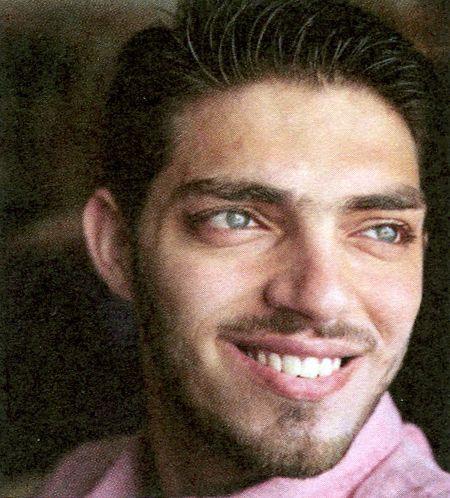
with additional support for him to be successful. A bright future began to emerge for Ayham. While he was torn on whether or not to leave his family, he had the full support of his family who recognised that this was an opportunity too good to turn down. Having been a little older than the regular pupils, Ayham found that football was a perfect way to engage and integrate. His fears of loneliness and not being accepted were wiped away as the teachers and pupils of Ackworth embraced him. Ayham is currently in his third year of studying Pharmacy at Bradford University. Given the help he received, he is paying it forward by providing private tutoring for members of his local community and refugees who have faced similar obstacles. He also hopes his younger brother, now doing very well, will follow in his footsteps and study medicine. Ayham’s story is just one of so many similar refugee stories, though most do not have such a happy ending. It highlights the effects that the gift of giving can have on one individual and in turn their family and community.
There were many opportunities for Ayham to give up on himself, and to stop believing – but he didn’t. Here at Ackworth, we recognise the human spirit that Ayham demonstrates, and have done so since John Fothergill opened the school for poor Quaker children. When considering whether to contribute I would ask you to think of our school values and utter the words – Non Sibi Sed Omnibus, “not for oneself, but for all”.
Celebrating the stories of Ackworth’s Old Scholars working in the National Health Service just would not be complete without mentioning our very own medical marvel, Professor Fiona Wood. Australian of the Year 2005, mother of six, and a pioneer in burns, scarring, and wound healing, Fiona Wood has most certainly made her mark on the world of medicine. She continues to do so with her work as the director of the Burns Service of Western Australia and the Burn Injury Research Unit in the University of WA In 2002, Prof. Wood found herself on the hospital frontline after a terror attack on the Indonesian island of Bali. 202 people lost their lives in the Bali Bombings, which left a further 209 seriously injured, of whom 28 required treatment in the Royal Perth Hospital Burns Unit in Australia With 20 years of training behind her, and
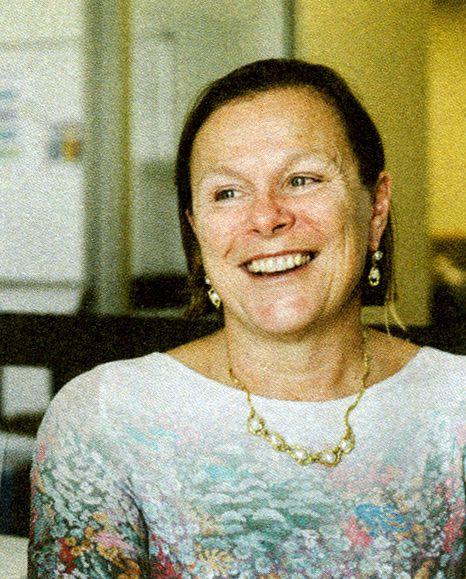
as director of the Burns Unit, Fiona led her team to save the victims, but said that she could not have done this without the support they had received from the Western Australian community.
Fast forward 18 years and Prof. Wood again finds herself battling through another historic event in the making: the COVID-19 pandemic Fiona is rapidly building a team, focusing on innovation and engaging the community with their ideas, which has already brought ideas to life building capacity to solve problems seen every day.
Prof. Wood’s time at Ackworth School culminated in her becoming Head Girl in 1975 Excelling in the sciences and with maths being her favourite subject, Fiona went on to train at St Thomas’s Hospital in London. She tells us how Ackworth School influenced her:
“I feel it is a privileged to have had the education and training that started at Ackworth, being a surgeon and researcher is how I follow the ethos, “Non sibi sed omnibus” - not for oneself but for others ”
From Ackworth School and your Old Scholar Community, we thank you Fiona!
“Ackworth has left me with skills that have shaped who I have become”.
Aidan’s career, after his education, took him to Pinderfields Hospital, in Wakefield. Whilst he enjoyed his porter responsibilities, Aidan’s management sensed he was somewhat wasted in this particular roll and sent Aidan up to speak with a senior sister on the cardiology ward which piqued his interest in the medical field.
Aidan applied to study nursing at the hospital, which he has been doing ever since.
Aidan’s current role at the research tissue bank for Leeds University as a nurse specialist in research and pathology, deals with anything human tissue related including legislation, writing ethics, and making sure departments are legal and ethical when setting up clinical trials. “It’s a varied job which keeps expanding”, he said. Aidan manages to maintain his key roles within the department whilst having to juggle anyone with a problem who comes to him His role

takes him all over Yorkshire, often working with sponsors from Yorkshire Cancer Research helping out with various aspects of clinical trials supported or run by Leeds University.
A highlight in Aidan’s career was whilst he was working within ophthalmology. Aidan set up a service for Leeds Teaching Hospitals which saw them climb the donation rate rankings from 50th up to the top 5 in the country! This achievement did not go unnoticed and Aidan found himself being headhunted by UK Transplant, an organisation that represents health professionals and scientists involved in organ transplantation, where he became the research retrieval and transplant teacher for the North East of England – a role which he enjoyed and got him out of the office on occasion. “Some of the lessons we learnt from the project have now gone on to be standard practice for UK Transplant today”.
During the pandemic, Aidan found himself leaving his desk and being released back into the NHS whilst the university had shut down temporarily. Aidan found it would be his skills and qualifications gained in mortuary-based technology which would see him re-enter into the front line, an area in which the NHS has been understaffed.
Aidan says he has carried many of the core values of Ackworth through with him in life, a lot of positive lasting impressions such as becoming more thoughtful and selfexamining, realising further benefits as he grows older. He is keen to come back to the school and speak with some of the pupils about his career, which we hope to take him up on once some kind of normality resumes.
From Ackworth School and your Old Scholar community, we thank you!
Jenny Martin (scholar 1993 – 2000)
Beginning to understand how the pandemic has been affecting the health care sector can be difficult. We spoke with Jenny Martin, a junior doctor from the North East working with senior psychiatric patients, about her experiences through the pandemic.
Jenny was part of the Ackworth School family as a boarder for seven years and spoke about how it ran through her veins, having had two generations before her also attend the school. Studying on for a further six years to achieve her BSc in Medical Science and her Bachelor of Medicine, Jenny has been working whilst hands on training ever since. A humble Jenny explained, “I feel lucky to have been able to continue to work through the pandemic even though the added pressures have been challenging.”
A particular challenge that Jenny has faced has been moving consulting online and over the telephone whilst dealing with individuals hard of hearing and who experience memory loss. She has found that it has been intensely difficult for those already isolated in society. However, Jenny spoke of how she hopes for a return to normality for our younger people with schools having partially reopened.
“I have carried the passion and ethos of Ackworth School on with me through life,” she said. “I wanted to participate in everything whilst at the school, something I find hasn’t changed much in my working role today!”
From Ackworth School and your Old Scholar community, we thank you Jenny.
Jane was born 1951 in Sheerness on the Isle of Sheppey, to Army parents whose international travels ended in Bramhope, Leeds. Many school friends have memories of fun from when Jane boarded at Ackworth from 1962 to 1967, leaving in lower sixth to start her career in childcare Her love of children and desire to help others were unwavering throughout her life. It was at College in Crouch End, London, where Jane met a fellow Ackworth old scholar, Douglas Waugh and in 1975 they married in the Meeting House, Leeds, and set-up home in Leicester where Jane was third in charge of a children’s home
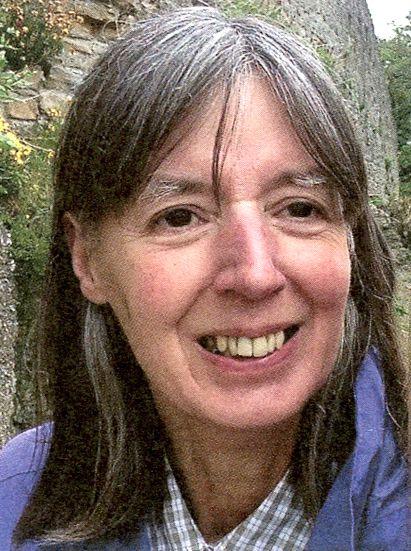
Later they moved north, living in Brancepeth, County Durham, in a house they had renovated and where they lived for 14 years, during which their daughter Katherine arrived. Jane delighted in being a mother and gave up employed work. It was while Jane was pregnant that she became a vegetarian. Jane enjoyed family holidays in Landmark Trust properties, as well as in Australia with her brother Robert’s family and in England with her Ackworth old scholar sister, Judy, and her family. In retirement Jane and Douglas travelled to Venice, Paris and Brussels. After Brancepeth the family moved to Burnham, Buckinghamshire before returning north to Richmond and another old house, requiring much renovation. Here Jane volunteered again, working for Oxfam, delivering library books and
providing tuition in reading and writing for adults Jane also worked in the Tourist Information Centre, but when the early signs of dementia made her role more difficult Jane retired. Over time, Jane gradually gave up her voluntary work as well. In 2018, Jane, shortly after the birth of her much-adored first grandson, moved into a care home and died peacefully on October 16, 2020, aged 69. Elders from Harrogate Meeting kindly led Jane’s funeral.
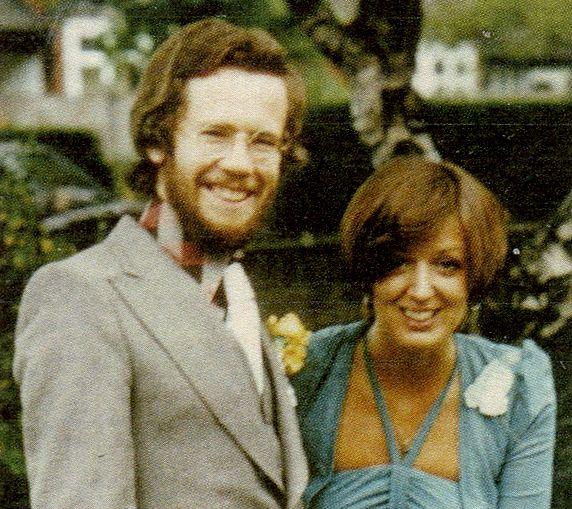
It is with great sadness that we report the death of Edwina (known as Margaret). She was born on 3rd October 1931 and died on the 23rd February last year.
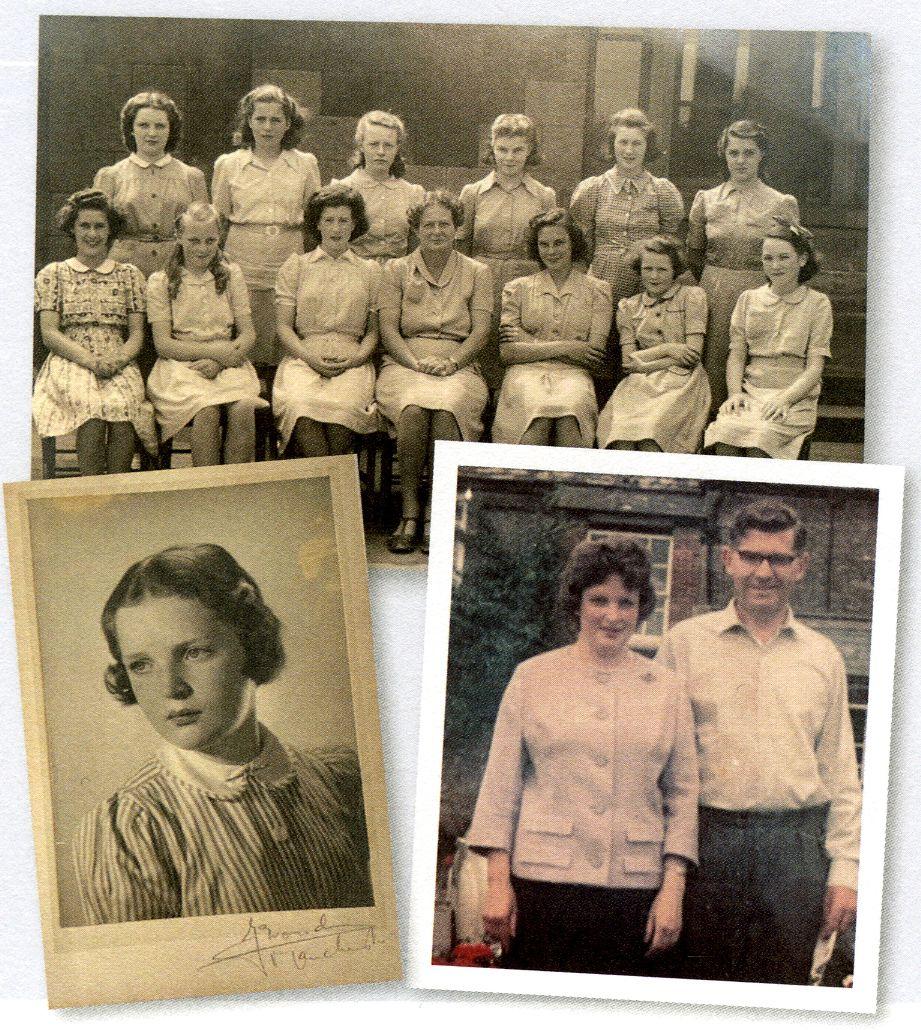
The Costley family have a long tradition of attending Ackworth. Edwina had many photographs of the school, including some of Edwina and her late husband attending school reunions Margaret was the first and only female Costley to attend, but the male side of the family spans three or four generations.
Margaret always spoke of her time at the school with fondness, and her autograph book is full of final well wishes and drawings from her school friends which she still held in her possession, a touching legacy of her school days. She is pictured here at Ackworth (***Top picture, top left).
Andrew Bunney, who has died aged 65, was the second son of John (scholar 1934-39) and Margery Bunney (née Wilson - Scholar 1941-45). He overlapped older brother David (Scholar 1963-70) and younger sister Catherine (Scholar 1972-77). He was a day scholar who rose to be vice head boy and enjoyed his time at Ackworth.

He was able to develop his musical talent as well as enjoying playing and watching sport without neglecting his academic studies. After Ackworth Andrew studied music at Huddersfield Polytechnic where he enjoyed the teaching and musicianship of David Lennox and Prabhu Singh. This led to a lifelong study of music through listening, composing and performing, notably with the Chapter House Choir in York and the Beningbrough Singers.
Andrew was a more than capable hockey player earning selection to the Wakefield 1st XI at a time when they were on the up but he never lost the sense that team sport was a social event off the pitch with all the participants, and that the spirit of sport was based on fair play. This also fitted with a strong belief in social justice for all, a lifelong cause. Andrew was a lifelong member of the Society of Friends, attending at Friargate in York where he served as librarian for a while.
After college Andrew worked at Banks’ music shop in the centre of York, then as a primary school teacher at Clifton Without and finally as a taxi driver based at York Station. The taxi life provided him with an audience for his store of tales and humour as well as meeting so many diverse passengers.
Andrew met Frédérique Bachasson when she was the French assistant at the Mount School. After their marriage in August 1979 they were asked to run a house for 6th form girls, offering a different experience of life away from the School confines. Although it was short-lived the move helped the couple to settle into married life, all of which was spent in York.
They had three children: Eleanor, now in Italy with husband Sandro and daughter Martina, was born in 1982, Sam, based in Worthing with wife Sarah and sons Loïc and Xavier, arrived in 1985 and Nathalie based in London (but having spent lockdown in York helping to care for Andrew), born in 1989.
Andrew had a long enthusiasm for railways and especially all things Great Western so he was delighted to see that LoÏc had somehow taken up that enthusiasm at the age of 3! Family was Andrew’s great joy.
Andrew died peacefully on 25th March after seven years of serious ill health which tested his dignity in the latter years but amazingly, and typically, he retained his sense of humour to the end. He is survived by Frédérique, his children and grandchildren and by Margery and David.
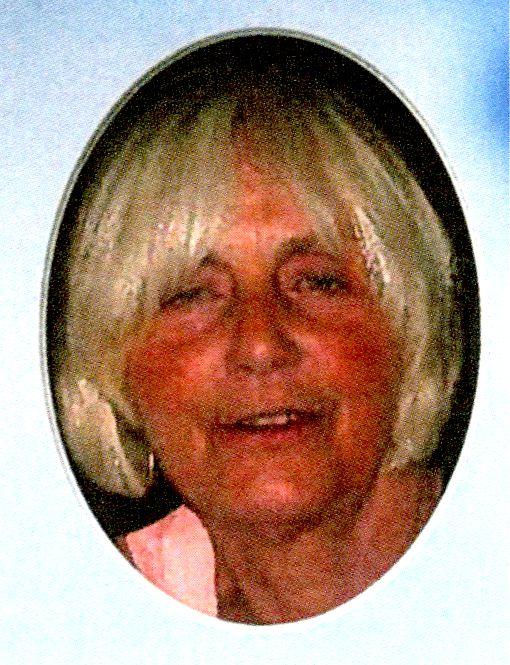
Sue Hopton, who joined Ackworth School as a Domestic Assistant in May 1998, sadly passed away on 11th May losing her fight with cancer. Over the years Sue had raised a lot of funds for Children in Need. She will be dearly missed.
Rosemary was born in Rugby in 1934, the eldest of three children. During her time at Sibford her love of music was kindled and when she arrived at Ackworth in 1948, her musical talent was recognised and encouraged by Olga Stephen (Stevie). Rosemary developed her study of piano and viola and she enjoyed participating on several occasions in the Harrogate Music Festival.
Rosemary continued her studies at the Royal Academy of Music in London, staying on for an extra year to concentrate on accompanying. She attended a Quaker summer camp at Great Ayton, where she met Wallis Johnson, who at that time was teaching Geography in Croydon. Anyone who played an instrument was encouraged to bring it along and Wallis,
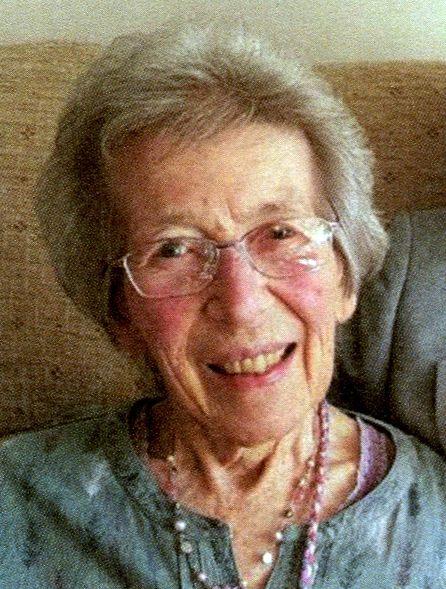
Rosemary and another pianist performed a Mozart trio for clarinet, viola and piano. Romance blossomed during Rosemary’s first teaching post in Sherborne, distances were covered on a Lambretta, and she and Wallis were married in Golders Green Meeting in September 1958. Two months later they boarded a slow cargo ship to Nigeria, where Wallis had secured a job as geography teacher at a school in Abeokuta. Three and a half fascinating years lay ahead of them, as well as the birth of their first two children, Bryony and Chris.
Rosemary’s second period of time at Ackworth began in 1962 when Wallis was appointed to the Geography Department. Once their youngest child, Nick, was settled into primary school, Rosemary also joined the staff as piano teacher. Ackworth School provided the family with a wonderful community of friends and colleagues for eight happy years.
In 1970 Wallis joined the Joseph Rowntree Charitable Trust and the family moved to York. Rosemary delighted in all the opportunities city life afforded her and she found work as a piano teacher at The Mount School and the former St John’s College. She joined the University Choir and was a founder member of the Guildhall Orchestra, whose home soon became the York Barbican concert hall. Rosemary taught a great number of piano pupils over the years, taking a genuine interest in them as people as well as musicians and making lifelong friends with many. At Hartrigg Oaks she was an enthusiastic member of the Music Committee. She continued to play piano duets until shortly before her death in 2020.
The key loves of Rosemary’s life were family, music and people. She belonged to the Friends’ Prison Visiting Group for many years. Her life was a testament to the Quaker way of looking for the good in everyone she met, and she was rewarded with many rich friendships. She leaves Wallis, three children, ten grandchildren and two great-grandchildren.
Edward (Ted) Milligan was born in Coventry on 27 March 1922, third child and second son of John Lloyd Milligan and Jane (Jennie) Elizabeth Milligan, who had joined the Society of Friends in 1908. The family moved to Maidstone in 1927, and to Reading in 1932, whereupon Ted became a member of Reading Monthly Meeting. He remained a member thereafter, except during his final years (he resigned his membership late in life), and for a few years when he transferred to Alton, Southampton and Poole MM (1949-54), while he was on the staff of Southampton University library. He was educated at Ackworth School (1934-38), and the University of Reading, where he read philosophy and English literature. He also took a postgraduate course in librarianship at University College London.

Ted would gleefully recall his enjoyment of his first job, as a booking-clerk at Pangbourne railway station. From this, perhaps, stemmed his interest in railways which led to his book Quakers and railways (1992). His first professional post was as trainee librarian at Dr Williams’s Library, the library specialising in non-conformist Christianity founded in 1730 and housed in Gordon Square, London. Ted remained deeply loyal to the library. He was appointed trustee in 1967 and was at various times a much-respected chair of the library committee. He remained a trustee until he resigned in 2006.
In that year his reputation as a scholar was cemented by the publication of his 600-page reference work, A biographical dictionary of British Quakers in commerce and industry 1775-1920, which won the 2009 Besterman/McColvin Award.
From 1957 until his retirement in 1985 Ted was Librarian of London Yearly Meeting (often known as ‘Friends House Library’). His professional achievement came to be overshadowed by his other activities, but it was considerable, since he ran and promoted the use of the library with exceptional administrative flair. More widely, he was better known for his enthusiasm for the Society of Friends, his knowledge of its history, and his gift for public speaking, all of which caused him to be much in demand in Quaker circles He was constantly writing for publication, and by the time he retired a bibliography of his published articles and books ran to nine closely printed pages. No wonder that he was a long-time member and sometime clerk of the Friends Historical Society (1948-89)
As a senior member of the staff of London Yearly Meeting, especially during the time when Arthur J. White was Recording Clerk (1966-78), he found that his natural wisdom, combined with his knowledge of past precedent, expanded his role unofficially beyond the confines of the library. Separately from his position on the staff, he served London Yearly Meeting at different times on at least eleven committees. They ranged from Friends Home Service Committee and Yearly
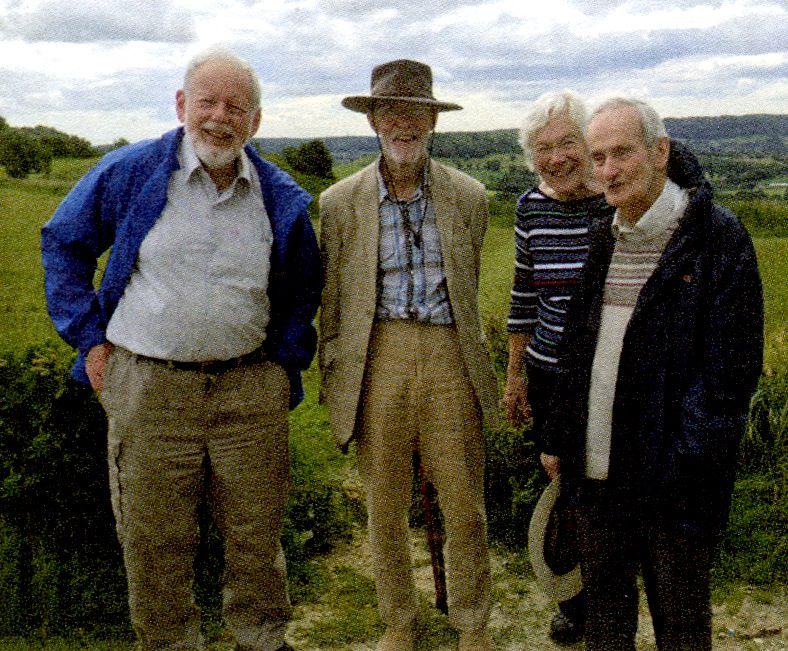
Meeting agenda committee to ‘Church government’ revision committee and Constitution Review committee
His connection with Berks & Oxon Quarterly Meeting (later General Meeting, then Regional Meeting) began in 1942 and lasted for fifty years. He firmly believed in its value, both spiritually and as a way of building friendships. Ted’s good counsel and natural empathy with others, of all backgrounds and positions, made him a truly well-loved Friend. It sometimes seemed that he personally knew almost every Quaker in Britain and Ireland.
Ted was a member of the Friends Relief Service 1941-46, spending part of that time at Killeaton House, County Antrim, a hostel for elderly people evacuated from Belfast, which had been heavily bombed. A legacy of those years was his life-long love of Ireland. In 2003 he travelled under concern among Friends in Ireland supported by a minute of liberation from Reading Monthly Meeting. This was a time when Ireland Yearly Meeting was revising its book of discipline and finding difficulty in doing so. Ted’s presence amongst Irish Friends was valued because rather than bringing something to say, he came and listened. He returned to be present at the residential Yearly Meeting in 2004 when Irish Friends were celebrating their 350th anniversary: amongst his contributions was a quotation in the concluding minute –‘The present moment is full of infinite treasures. It contains far more than we have the capacity to hold.’
In 2008 and 2009 Ted again visited Friends in Ireland, and in the latter year he brought with him members of Berks & Oxon General Meeting who travelled widely there with him and were present at Ireland YM in Dublin. In the years thereafter his visits were more sporadic, but he managed to be present at Ireland Yearly Meeting in 2012 when ‘Quaker life and practice’ was finally published. One Irish Friend has remarked that Ted seemed to have a particular affection for a certain meeting in Ireland; on reflection he adjusted this comment to say that Ted seemed to have a way of having a particular affection wherever he was visiting.
Though a long-term resident of Reading, Ted was not always a member of Reading meeting itself, often attending or being attached to one of the smaller meetings in the Area, notably the fledgeling Bracknell and Ascot meeting (1997-2005), which he staunchly supported.
During his nearly sixty years of adult membership, he served the Monthly Meeting in many ways: for example as custodian of documents, as Reading Preparative Meeting clerk, as Monthly Meeting clerk, and as clerk to nominations committee. Often, he was a natural choice in the consideration of trickier matters, for instance
as convener of the working group on revised regulations on marriage; being asked to update the register of Monthly Meeting trust property; and on another occasion to prepare a statement on the implications of a written constitution. Beyond formal service he was a great supporter of funerals, where he would often minister appositely towards the end, so as to produce a gratifying conclusion.
Ted had a remarkable bond with his sister Mary (1912-2001: ten years his senior) and for many years they lived in adjoining semi-detached houses on the Shinfield Road opposite Leighton Park School. In 1989 they simultaneously sold their houses with their large gardens to a housing developer and moved to share a newer house nearer the centre of town. Visitors to Ted in their new house would find him regarding the visit as being for the benefit of Mary, who by that time was increasingly housebound.
After Mary’s death Ted befriended a Big Issue seller in the town centre, a homeless young man whose mother, stepfather and brother he came to know too. He was fond of referring to them as his ‘surrogate family’. The unusual relationship, drawing on Ted’s compassionate and open nature, was complicated and was necessarily interrupted when Ted came under the care of the Public Guardian, and entered sheltered accommodation for the last few years of his life.
True to his generation, Ted wrote a great many letters, and enjoyed writing them. He took a real delight in the rich variety of human experience, loved meeting people, and imperceptibly convinced everyone he met that he valued them in some special way. His love for the Society of Friends was perhaps his chosen way of handling an allembracing love for society as a whole. During his long and active life, countless individuals, and certainly the Society of Friends as a whole, enjoyed long-lasting benefit from his learning, wisdom, and warm friendship
C,olin was born in Monton, on the outskirts of Manchester, into a Quaker family. His father, Edgar, worked with his own father as an insurance broker. His mother, Muriel, worked with a nearby insurance firm. Two years later the family moved to Southport.
At eleven years of age Colin went to Ackworth School, where his brother Roger was already a pupil. He followed Roger into the school orchestra, like him playing the trumpet. (Several years later he also played the trumpet in the Keele orchestra).
After school, where he was head boy in 1943 to 1944, he went to Manchester
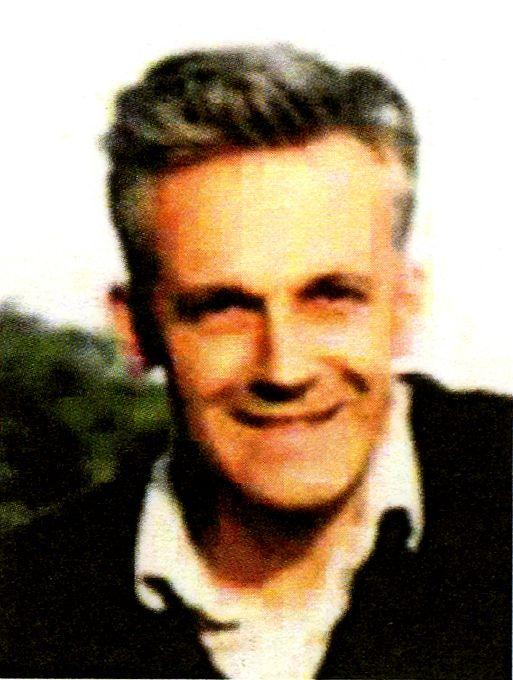
University to study chemistry. However, after one year he and his cohort were asked to take a two-year break so that returning servicemen could have places at university. Because of the photographs coming from Belsen Colin felt that, although having been brought up as a pacifist, he was compelled to join the army. This gave him his first experience of Africa – in Asmara.
When he returned to Manchester, he eventually gained his PhD in 1953 and took his first job at the University of Khartoum. In 1955 he was appointed an Assistant Lecturer at the then University College of North Staffordshire which became the University of Keele in 1962 He had met Eunice on a student holiday in Austria in the summer of 1953. They eventually married in 1956. Keele became the main focus of their work and family lives. However, Colin was keen to help at the new universities developing in what had been the colonies that were now independent. Keele was then generous in allowing leaves of absence.
Thus Colin, Eunice and 14 month old Aidan went to Ibadan in Nigeria for a short ‘fill-in’ at the exciting time of its independence celebration in 1960. Later, in 1978, they returned to Nigeria, to llorin, where new elections were about to take place following a period of military rule.
The most demanding and exciting part of their work abroad was from 1966 to 1969, when Colin was appointed the first Professor of Chemistry at the University of Zambia. The whole family went for this adventure. Other visits and attachments were in Papua New Guinea, Hong Kong, Lesotho and Singapore (where Eunice got the job first and Colin had to ask if they could use him also!).
Colin had always felt a great debt to Ackworth school, and he served on its governing body for 21 years, latterly as clerk.
His other commitment was to the University and to Keele Ecumenical Chapel. When Sir George Barnes was appointed Vice Chancellor, he determined that the Nissanhut in which they worshipped should be replaced by a new chapel. Sadly, halfway
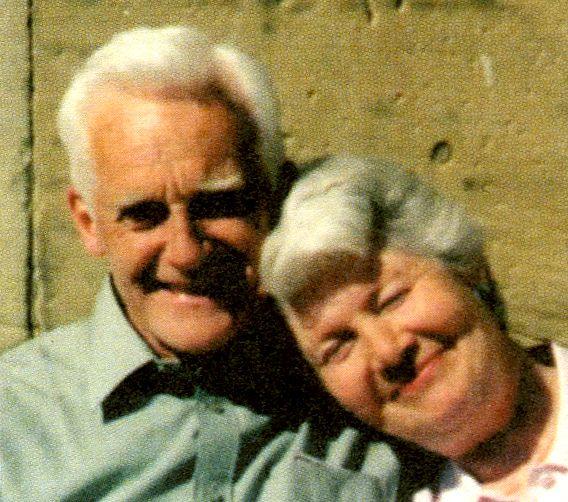
through, George Barnes developed cancer, and the task of raising money for the building fell to Colin as Secretary to the Appeals Committee. The chapel was dedicated in early December 1965. Sadly, Colin missed this as he and Eunice’s brother were in a road accident. When Colin retired in 1988, he took on another commitment at Ackworth, and became the president of the Ackworth Old Scholars Association (1988-89). It was a pleasure to Colin that both Bruce and, for his sixth form, Aidan, were students at Ackworth, as was his eldest granddaughter Eleanor.
Aidan and family joined Colin and Eunice at the Easter weekends for Old Scholars and their families, Aidan also becoming president in his turn.
Colin got great joy from his family, and in walking the hills and travelling abroad. It was also great in 1992 and 1994 to do voluntary work at the Quaker Centre in Wellington, New Zealand, and to meet two cousins and their husbands who had emigrated to New Zealand and now had children and grandchildren.
Colin has led a long and fulfilling life, given so much to family and friends. ‘We thank God for all.’
Eunice Mortimer
Jane was born in Netley, Hampshire in 1933 and with her elder Brother Alan was evacuated to live with relatives in Bamford near Sheffield in 1940. She was subsequently to join Alan at Ackworth in the 1946 Autumn intake. Jane settled in well and made many lifelong friends while she was there. In her last year her younger brother Donald was to join her at School making the journey up from the South Coast to London to catch The School’s reserved carriage on the 1:18pm out of Kings Cross
After leaving School in 1949 Jane pursued a nursing career at Westminster Children’s Hospital where she gained her SRCN before moving on to Guy’s Hospital where she attained her SRN. Jane was subsequently successful in obtaining the post of Nanny to the children of the Daily Telegraph’s Representative in Washington USA where she got the opportunity of travelling extensively on the West Coast of the States.
On her return to England in 1964 she got married having

previously met her husband on the outward crossing to America. In 1967 baby Alice was born but the following years were to prove difficult, and although surviving breast cancer, the marriage was to break up Jane continued to work tirelessly for the NHS as a health visitor in which role she greatly increased her circle of friends. During this period, she also found time to undertake an Open University course to obtain a BA in Humanities.
Jane married again but outlived both successive husbands and in so doing amassed a large and associated family in which she was always there to give help and encouragement. Jane was also fortunate in being able to travel widely abroad and to visit her daughter and grandchildren during their time in Malaysia.
Jane was diagnosed with bone cancer in late 1999 and became confined to her home in Romsey where she passed away quietly just before the second Covid lockdown with both her daughter and step-daughter by her side
In 1946, Ackworth School was in the early days of transition to co-educational education. By 1953, this had officially been completed, though those of us who attended Ackworth School in the 1960s know that full equality was far from complete. A number of different rules and curriculum choices still applied to the boys and girls, modified over subsequent decades.
The 1946, 1949 and 1952 pictures of the teaching staff reveal those who had to work and adapt to to make the necessary changes needed to make co-education work. What the 1952 photograph does not reveal is the turmoil that occurred when the two headteachers, Philip Radley and Kathleen Cottrell, were told by the School Committee to step aside to make way for a new headmaster and deputy headmistress to take the reins. The fallout went far beyond the school, involving the Society of Friends as a whole. The full details of what really happened and why it apparently went so horribly wrong may be lost to us today, but Ashton Watts wrote what was possibly the most honest summary in the 1953 AOSA Annual Report.
The Ackworth School community is more than just teachers and pupils. Memorial notices of a number of non-teaching staff have appeared in Annual Reports over the years, so these have been included here.
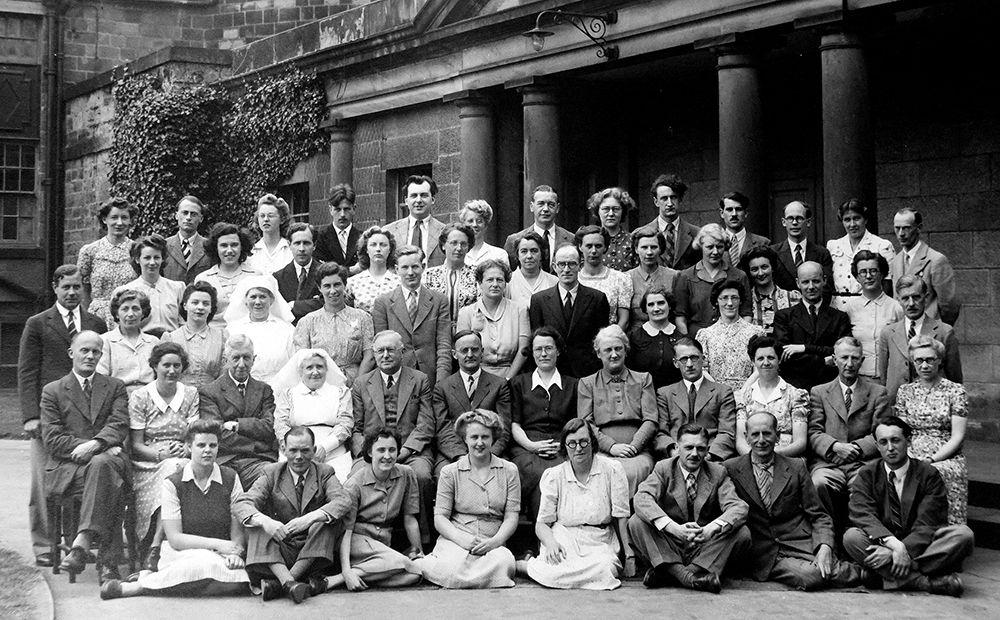
1 Ethel Kelsall
2 Norman Bradshaw
3 Barbara Young
4 Hector Macdonald
5. Walter Pullan
6. Ivy Allen
7. Thomas Atty
8 Margaret Conyers
9 Phillips Harris 10 Casto Alonso 11 Albert James
12. Elizabeth Taylor 13. Arthur Brighton
14. Margaret Hind
15. Mary Tyson
16 Bernard Aylward
17 Joan Miller
18 Muriel Robinson
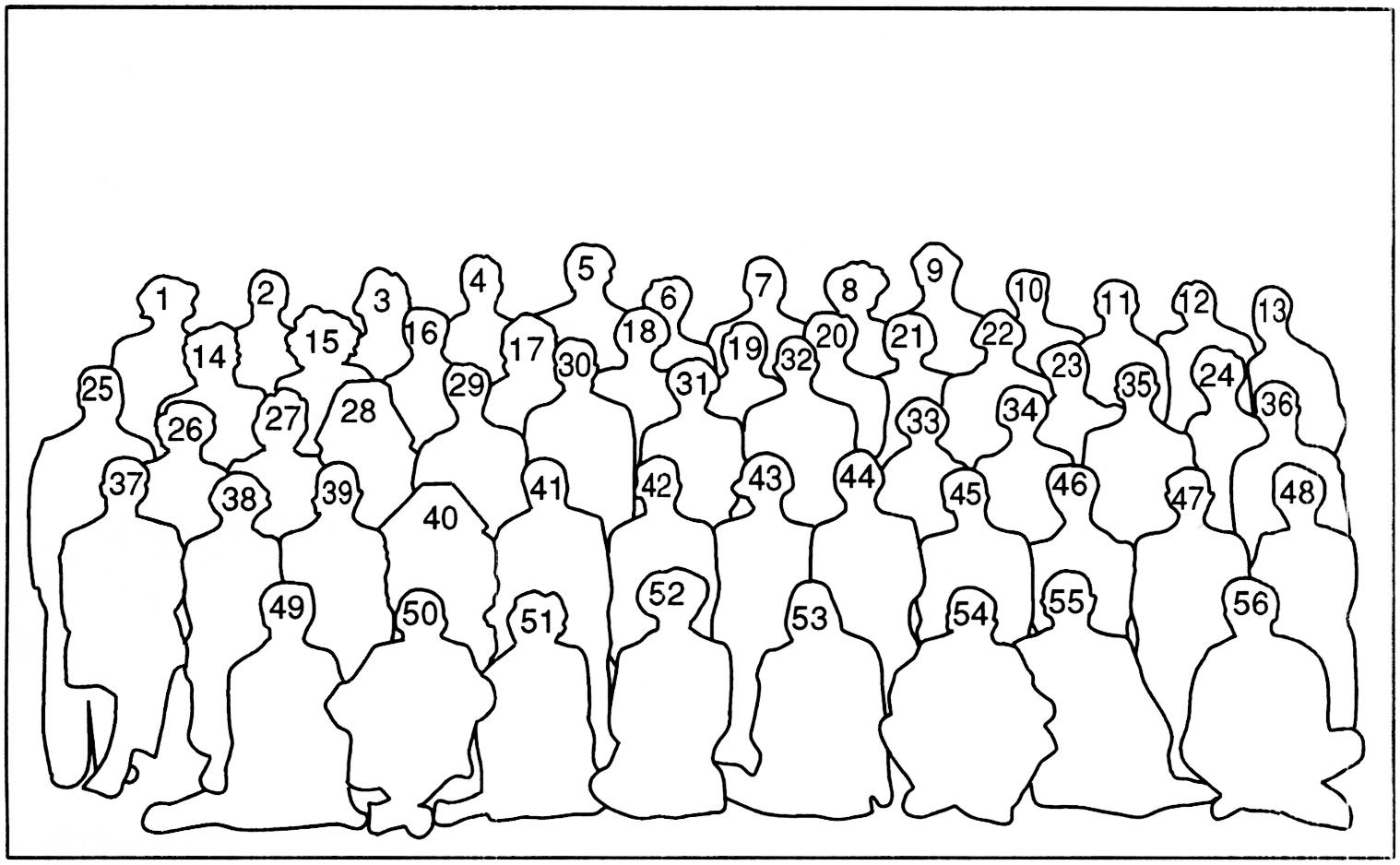
19 Wilhemina Thompson
20. Marjorie Pollock
21. Margery Storey
22. Annie Kitchingman
23 Florence Rogers
24 Dorothy Lyle
25 Howard Dyson
26 Dorothy Wilkinson
27. Margaret Nish
28. Helen Darbyshire
29. Lorna Carter
30. Frederick Adams
31 Marguerite Black
32. William Rogers
33 Ethel Banks
34 Annie Waites
35 Ernest Andrews
36 Ashton Watts
37. David Long
38. Phyllis Allen
39. James Westwood
40. Annie Dewhirst
41 Henry Mussell
42 Philip Radley
43 Beryl Williams
44 Ethel Clayton Booth
45. Claude Speirs
46. Phyllis Sadler
47. Joseph Bibby
48 Olga Stephen
49 Sheila Dixon
50 John Muschamp
51 Mabel Croll
52. Marjorie Shaw
53. Elizabeth Froggatt
54. Frederick Cutbush
55 Thomas Nash
56 Victor Mendham


1. E. Carter
2. G L Beach
3. K. Rosewarne
4. J.R.V. Collin
5. G.B. Harris
6. S.M. Dixon
7. G.M. Johns
8. E Evans
9. D. Lyle
10. D.M. Leek
11. N.V.Mendham
12. L.R. Fitton
13. M.W. Taylor
14. H.C. Storey
15. A.F. Lindley
16. B.M. Young
17. M E Gayner
18. E. Buchan
19. B.E. Tait
20. M. Croll
21. R. Rushforth
22. A.B. White
23. W R. Fraser
24. C.V. Alonso
25. A. Brighton
26. G.G. Brown
27. P.M. Croysdale
28. D Wilkinson
29. K. Jones
30. A. Kitchenman
31. Dr. J. McRobert
32. H. Darbyshire
33. M. Story
34. T Leek
35. G.V. Kay
36. G.P. Harris
37. R.V.M. Foulds
38. T.G. Nash
39. W.R. Rogers
40. A Watts
41. D.S. Long
42. H.S. Mussell
43. B. Williams
44. P. Radley
45. P.M. Sadler
46. W Thompson
47. I.M. Carter
48. O.E. Stephen
49. E. Froggatt
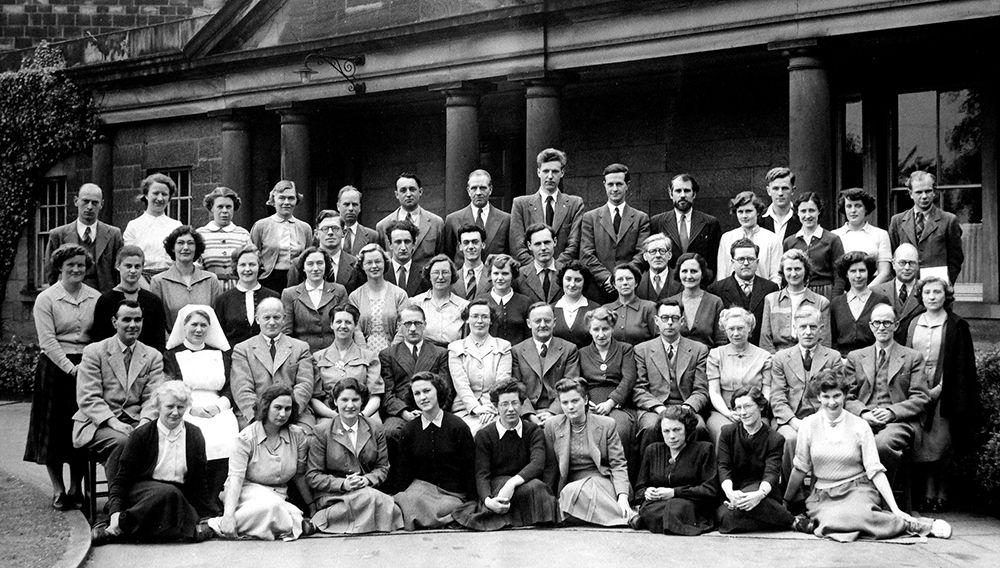
1. Arthur Brighton
2. Elizabeth Buchan
3. Catherine Hinson
4. Beatrice Tait
5. Gerald Brown
6. Victor Mendham
7. Norman Mitchell
8. Ken Rosewarne
9. David Mellors
10. Casto Alonso
11. Winifred Sibson
12. Maurice Edwards
13. Mabel Croll
14. Fiona Thorn
15. Peter Harris
16. James Collin
17. Phillips Harris
18. Peter Dootson
19. Anthony Cashmore
20. Mr Ward-Casey
21. Laurence Fitton
22. Sheila Thorn
23. Brenda Hemsley
24. Margaret Gaynor
25. Pat Cockburn
26. Dorothy Cohoe
27. Barbara Young
28. Elizabeth Froggatt
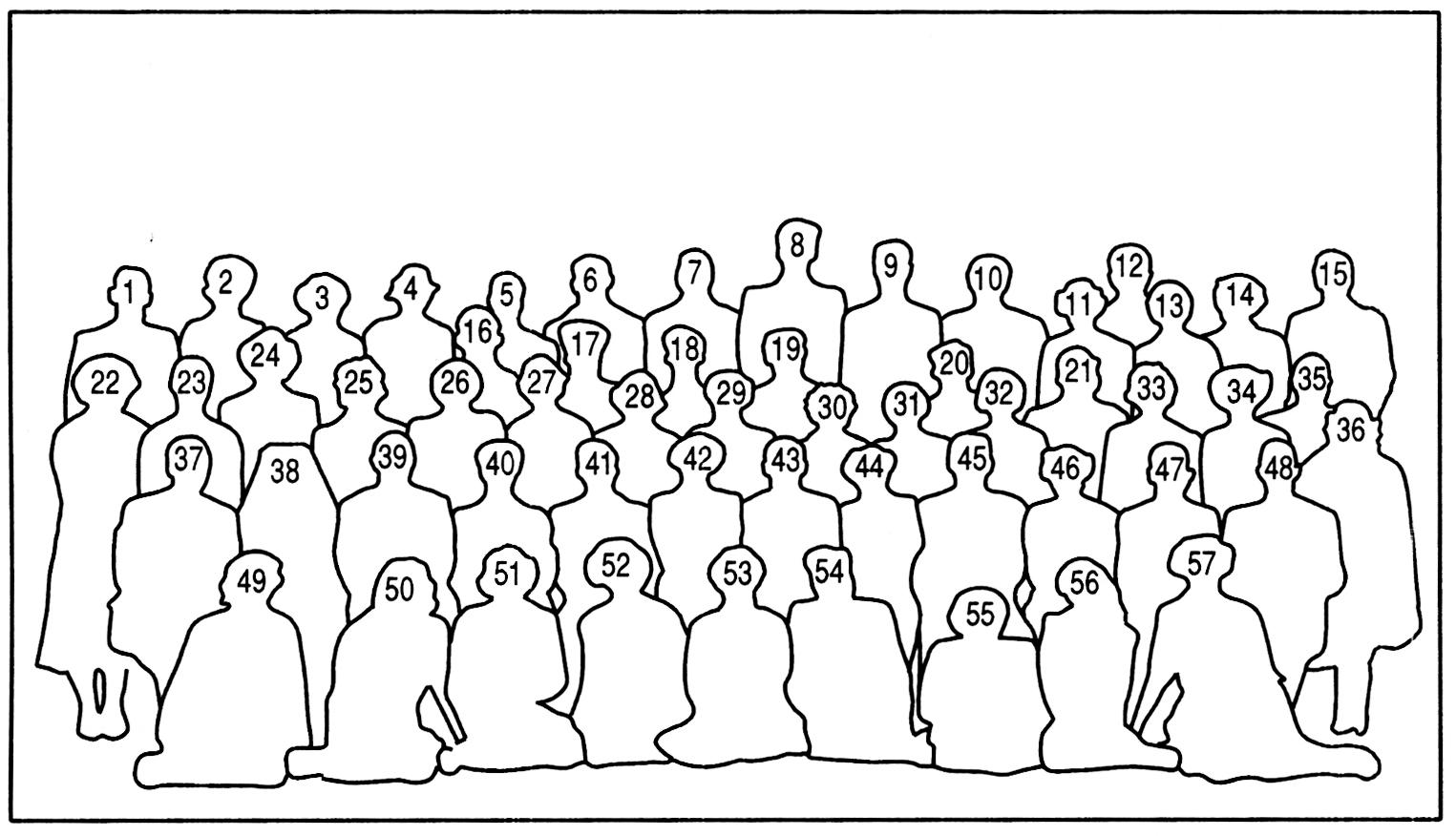
29. Anne Fletcher
30. Jean Richardson
31. Kathleen Horsefield
32. Isobel Murray
33. Helen Mackridge
34. Lilian Taylor
34a Gregory Mappin
36. Edith Worrall
37. Dr J McRobert
38. Helen Darbyshire
39. David Long
40. Phyllis Sadler
41. Claude Speirs
42. Kathleen Cottrell
43. Philip Radley
44. Phyllis Williams
45. Albert Lindley
46. Olga Stephen
47. Ashton Watts
48. William Rogers
49. Annie Kitchingham
50. Kathleen Jones
51. Miss Alexander
52. Brenda Roberts
53. Anne Porter
54. Mary Coates
55. Millicent Cox
56. Annie Waites
57. Heather Maule
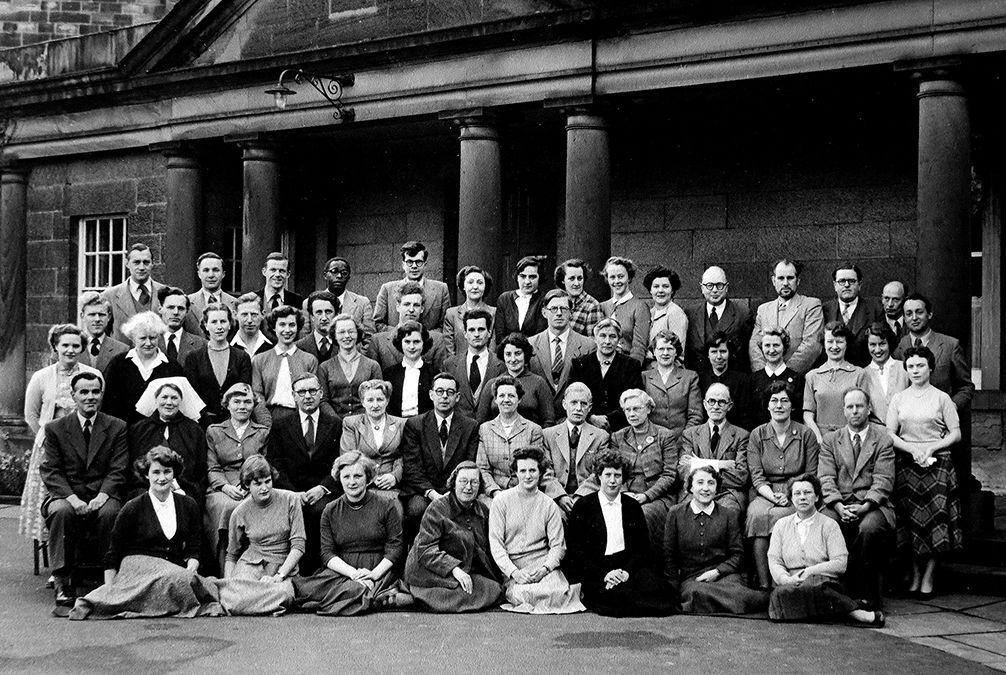
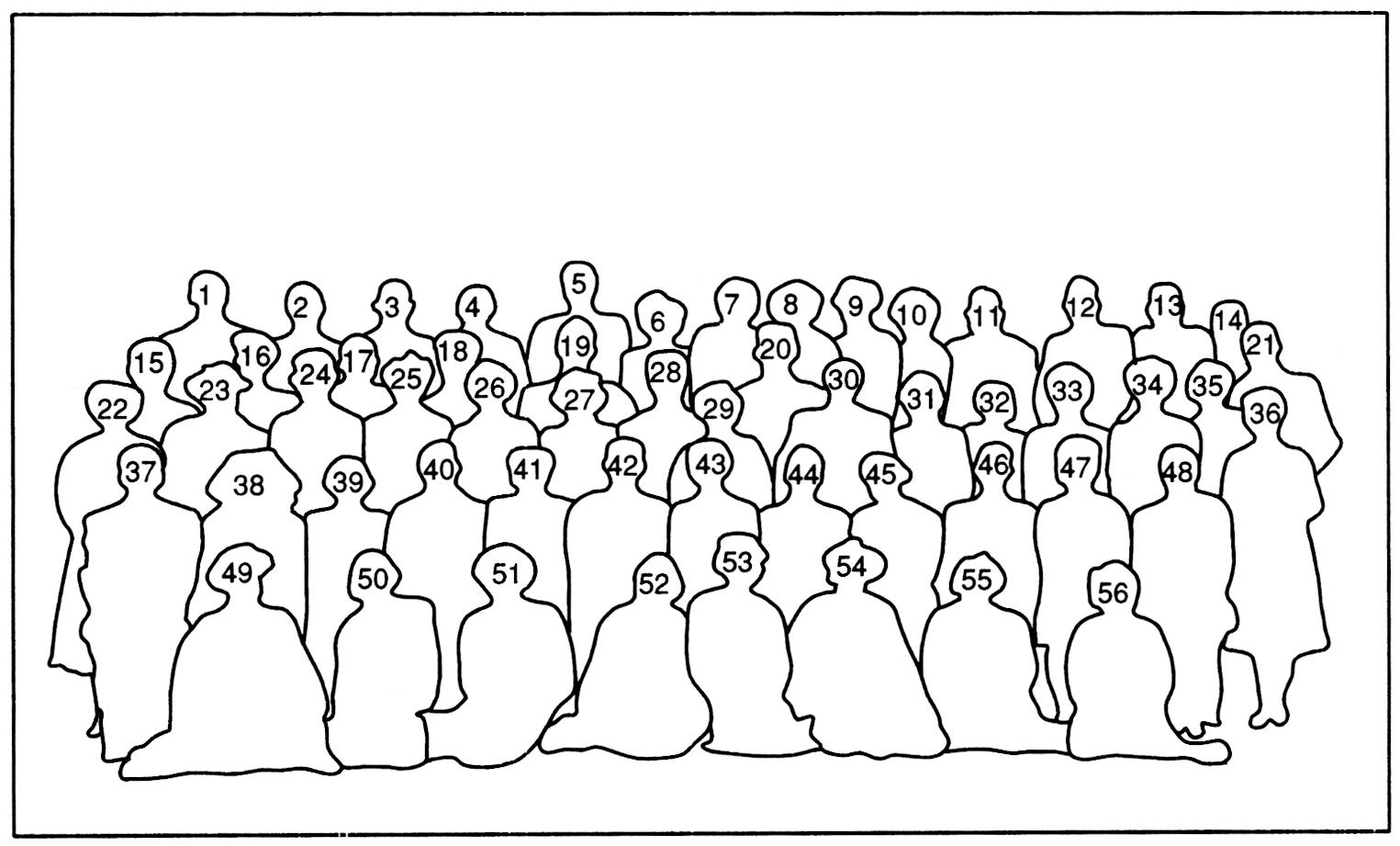
1. Herbert Storey
2. Stanley Illingworth
3. Peter Haywood
4. Mr. Hobangwana
5 Robert Hunter
6 Barbara Waddington
7 Elizabeth Liebeschutz
8 Margery Peel
9. Honor Monch
10. Wilma Strugnall
11. Gregory Mappin
12 Casto Alonso
13 Laurence Fitton
14 Arthur Brighton
15. Michael Wardell
16. Anthony Cashmore
17. William Westwood
18. Phillips Harris
19 Kenneth Rosewarne
20 James Collin
21 Victor Mendham
22 Anne Fletcher
23. Annie Kitchingman
24. Barbara Coope
25. Sheila Lord
26 Barbara Young
27 Daphne Jones
28 Peter Norris
29 Jean Richardson
30. Elizabeth Taylor
31. Mary Rogers
32. Lilian Taylor
33. Helen Mackridge
34 Elizabeth Buchan,
35 Margaret Peters
36 Mary Jackman
37 Dr. John McRobert
38. Sister H. Darbyshire
39. Beatrice Tait
40. William Ruse
41 Phyllis Williams
42 Albert Lindley
43 Phyllis Sadler
44 Ashton Watts
45. Olga Stephen
46. William Rogers
47. Margaret Gaynor
48 Gerald Brown
49 Mary Dyson
50 Jean Nestrop
51 Barbara Jackson
52. Elizabeth Froggatt
53. Christine Johnson
54. Jeanne Simm
55. Edith Worrall,
56 Kathleen Horsfield

1. Laurence Fitton
2. Janet Hartley
3. Anthony Cashmore
4. Helen Knowles
5. Albert Ainsworth
6. Gregory Mappin
7. Mary Williams
8. Donald Burgess
9. Fred Scott
10. Arthur Brighton
11. James Collin
12. William Westwood
13. Brian Sara
14. Casto Alonso
15. Noelene Walmsley
16. Harry Needham
17. Wilma Strugnall
18. Caroline Kleifgen
19. James Lincoln
20. Lotte Honig
21. Kathleen Hough
22. Joan Mason
23. Victor Mendham
24. Peter Heywood
25. Phillips Harris
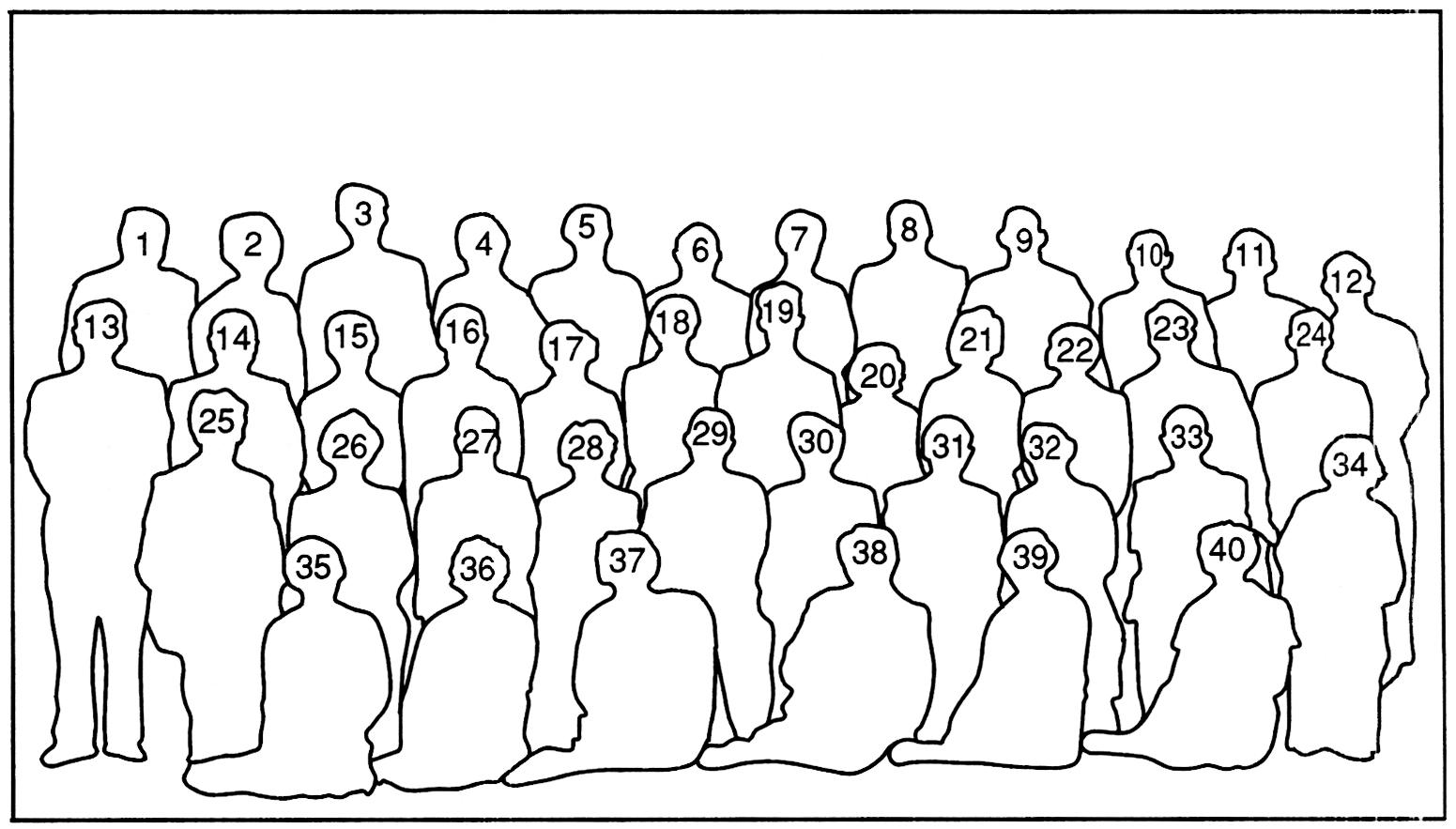
26. Mary Rogers
27. Gerald Brown
28. Barbara Waddington
29. Albert Lindley
30. Phyllis Sadler
31. Ashton Watts
32. Olga Stephen
33. William Rogers
34. Elizabeth Froggatt
35. Constance Gilbey
36. Brenda Swinbank
37. Shirley Whittington
38. Anne Fletcher
39. Mary James
40. Margaret Robinson
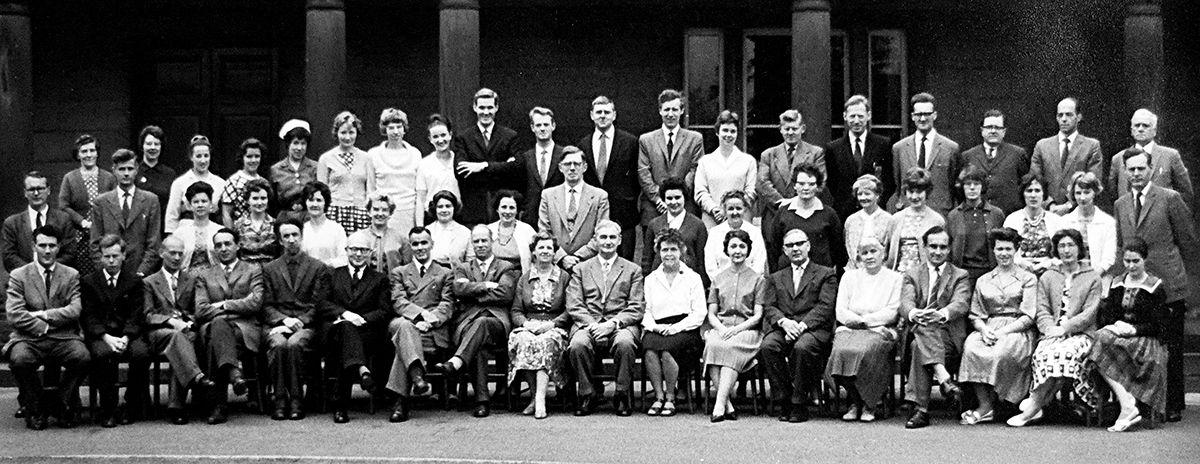

1. Anna Waites
2. Grace Lewis
3. Kathleen Jefferson
4. Stephanie Baldwin
5. Barbara Lyon
6. Judith Weale
7. Doreen Bywater
8. Barbara Dawson
9. Peter Hope
10. Bruce Dick
11. Christopher Pilling
12. Kenneth Rosewarne
13. Mary Scott
14. Fred Scott
15. William Westwood
16. James Lincoln
17. Laurence Fitton
18. Roger Spinks
19. Albert Baines
20. Brian Sara
21. Wallis Johnson
22. Ena Pearson
23. Marion Langley
24. Mary Jackson
25. Muriel Gilbert
26. Marilyn Young
27. Lotte Honig
28. James Collin
29. Janet Tyers
30. Dorothy Phillips
31. Avril Brown
32. Barbara Johnson
33. Susan Waddington
34. Jean Anderson
35. Joy Worley
36. Margaret Robinson
37. Anthony Cashmore
38. Gordon Jennings
39. John Lammin
40. Arthur Brighton
41. Victor Mendham
42. Phillips Harris
43. Gregory Mappin
44. Dr J McRobert
45. Gerald Brown
46. Phyllis Sadler
47. Ivan Gray
48. Betty Gray
49. Barbara Waddington
50. William Ruse
51. Elizabeth Taylor
52. Harry Needham
53. Noelene Walmsley
54. Joan Mason
55. Margaret Millward
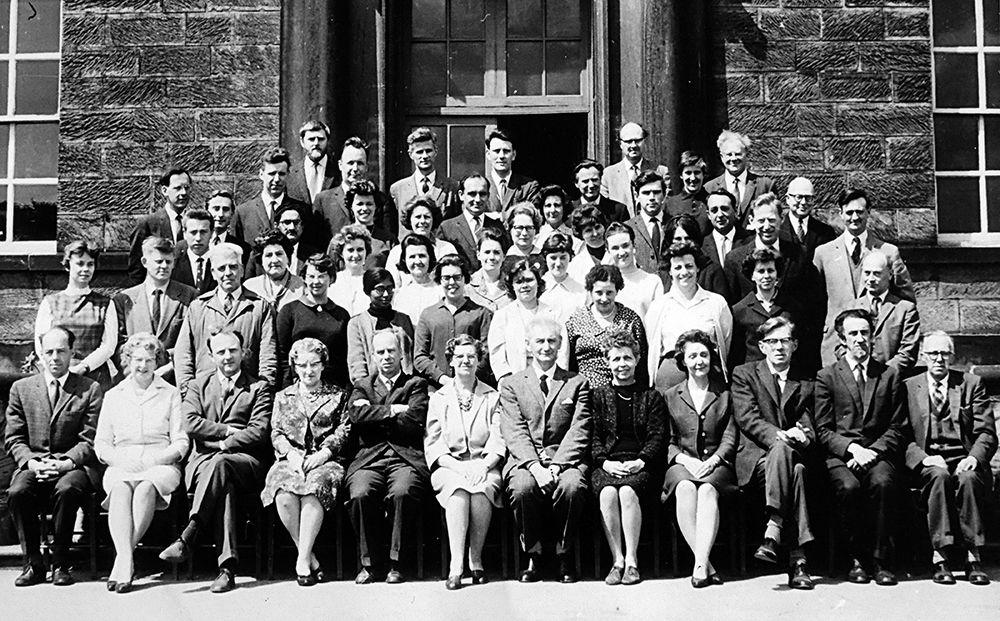
27. Hazel Hall
28. Barbara Dawson
29 Sandra Marr
30 William Westwood
31 David Day
32 Mary Scott
33. Fred Scott
34. Thomas Rogers
35. Grace Lewis
36 Ila Patel
37 Sarah Leese
38 Marilyn Young
39 Lotte Honig
40. Joyce Spinks
41. Eileen King
1. Christopher Pilling
2. Frederick Davies
3. Kenneth Rosewarne
4 Ian Mackie
5 Wallis Johnson
6 Gordon Jennings
7 Clive Penman
8. Peter Rowlands
9. Keith Pattison
10. Subhash Arora
11 Noelene Walmsley
18 Gregory Mappin
19 Victor Mendham
20 Richard Wood
21. Mrs E.L.M. Dewis
22. Marian Langley
23. Mary Jackson
24 Carol Gillett
25 Dorothy Williams
12 Joan Anderson 13 Harry Needham 14. Anne Easterbrook 15. Dennis Mitchell 16. Stuart Cassie 17 Mary Rowlands
26 June Terry
42. Arthur Brighton
43 Roger Spinks
44 Mary Rogers
45 Kenneth Limb
46 Phyllis Williams
47. Gerald Brown
48. Phyllis Sadler
49. Ivan Gray
50. Betty Gray
51 Barbara Waddington
52 James Collin
53 Phillips Harris
54 Albert Gardner
ROBINSON, Muriel (Staff, 1943-47)
It was with a deep sense of loss that the school learnt of the death of Muriel Robinson on January 26th, 1948. She will be greatly missed as a member of our community. She joined the staff in 1942 to teach modern languages, and later succeeded Miss Clayton-Booth as head of Seaton’s House.
She will always be remembered for the high standard she set in all her work, and for the selfless way in which she gave her time and energies in service to the school Appreciation of her fearless honesty and absolute integrity has been widely expressed. The educational world can ill afford to lose one of such qualities.
Muriel Robinson had been a member of the Society of Friends for about a year, but had been greatly interested in their work for some time, and was a keen organiser of school help for the Relief Services.
Representatives of the staff and school attended the funeral service held among the Swaledale hills she loved so well. At the same time a memorial service was held in school, and some permanent memorial gift to the school is being planned.
Many of us mourn the loss of a most loyal friend, who was ever ready to give of her help and sympathy. Our lives were enriched by her companionship and example.
Our sympathies go out to her parents in their bereavement.
BIBBY, Joseph Richard (Staff 1921-46), second son of James and Isabella Bibby was born at Bentham on February 1, 1882. After being educated at Bentham Grammar School he joined the staff at the Friends’ School, at Lisburn, near Belfast.
In 1904 he enrolled as a student at Leeds University, going into residence at the Flounders Institute, and gaining a B.Sc, in 1907, proceeding to the M.Sc. degree the following year. In September 1908 he joined the staff at Normanton Grammar School.
Four years later he was appointed to Ackworth and began his long connection with successive generations of scholars until his retirement in 1946.
The war of 1914-18 interrupted his career at Ackworth for, after a brief period of service in France with the War Victims Relief Organisation in 1915, he joined his brother Ernest in the Friends’ Ambulance Unit and was detailed for ambulance driving with the French Army, serving under one of his own Ackworth pupils, E.R. Brady.
His three years of arduous service was recognised by the award of the Croix de Guerre in June 1918 and again in July “for courage, gallantry and devotion to duty, often under heavy enemy fire”.
After his return to Ackworth he married N. Aline Outram and settled down happily at Laurel Bank, where he and his wife always had a warm welcome for colleagues, old scholars and friends.
J.R.B. was a careful and patient teacher: “He introduced us so well to Science and to the verification of fact by experiment”, writes and old pupil, and this grounding in Science is remembered gratefully by many who passed through his hands.
Boarding school life calls for much more than classroom teaching and J.R.B. never spared himself. He entered into the full life of the school with zest. His chief interests were fishing, photography, cricket and gardening, and many of the community benefited from his expertise in these fields We all enjoyed his boyishness, his love of a joke and we admired his sturdy code of honour and good conduct, all in line with his string personal integrity. Boys respected him for he was just, and his talent for lip-reading often startled youngsters who were amazed to find out that he had not only caught them talking but could repeat what they had said.
He was no mean actor and appeared to everyone in “End of Term Pops” and staff plays. His inimitable impersonations of Charlie Chaplin and village clergy were two of his best performances.
On his retirement in 1946 he remained for a short time at Laurel Bank and then went to live in Scarborough where he was a constant visitor to Scarborough Cricket Club, of which he was a member for many years, enjoying watching County Matches and the visits of Australian and other visiting teams.
Unfortunately ill health made it necessary for him to lead a quiet life in his later years, but he kept up his interest in his garden, and when unable to go and watch
cricket, solaced himself by reading and rereading his large number of famous books by old players. He bore his ill health with great courage and died on January 1, 1964, leaving the treasured memory of a loyal colleague, a good companion and a trusty friend.
WESTWOOD, James (Staff 1902-47). James Westwood was the elder son of James and Isabella Westwood, was born February 1st 1977, at Hamilton, Lanark. A few years later, his parents moved to Dunfermline
He attended the High School there, leaving as “Dux” with £450 in prize money. While at school he was organist at Carnock Parish Church at the age of thirteen, for which he earned a salary of £40 per annum.
In 1894 he entered ST Andrew’s University with a scholarship of £120 and stayed for seven years making good by means of further scholarships and coaching posts. He took his Master’s Degree in Arts (Hons. English) with medals in English, History and Political Economy. He was also an active sharer in the athletic, social and musical life of the university, prominent in the Football XI, Tennis Club, Golf Club and a member of the editorial staff of the university magazine, “College Echoes”
His first teaching post was at Sidcot, 1900-02, after which he joined the Ackworth staff, where he remained until his retirement in 1942*. Leave of absence in 1907 enabled him to take a course of study at Bonn University in Philology and Phonetics, and he also found time to learn something of continental football.
In 1913 he married Lilian Beatrice Jones (Scholar 1901-03, and for a time a junior member of staff). Throughout his long, faithful service as Master and later Librarian, their home always gave a warm welcome to colleagues and pupils, past and present.
He was an excellent teacher and took a valuable place in the life of the school, making his influence widely felt. ‘He was one of the cleverest half-backs who has worn the School Colours’, wrote a colleague in ‘Ackworth Games and the Men Who Made Them’, and a skilful tennis player.
His literary knowledge and ability was always at the service of his colleagues and pupils, and school magazines owed much to his helpful advice
During the World War 1914-18 he served with the Friends’ Ambulance Unit at York. James Westwood was enthusiastic in all he did and passed on to all who
came into contact with him, in work and play, much of his enlivening spirit.
He was the school’s first Librarian, and by his neat handwriting and meticulous attention to detail, laid a fine foundation for those who succeeded him in that office. A visitor, acquainted with many famous schools, said of the library in J.W.’s time, ‘It is, in my opinion, one of the best school libraries in the country’.
As editor of the A.O.S.A. Annual Report for very many years, he and his wife corresponded with Old Scholars all over the world and one of his greatest pleasures was receiving and answering their letters. In April 1949, with his wife, he visited his married daughter, Sheila Prudhomme, and his first grandchild, at Windsor, Ontario.
James Westwood died May 31, 1964, aged 87 and is survived by his widow and their three children. In remembering him, the closing verse of his Presidential Address, Easter 1946, seems most appropriate:
‘Ever to be the best. To lead
In whatsoever things are true;
Not stand among the halting crew,
The faint of heart, the feeble-kneed,
Who tarry for a certain sign
To make them follow with the rest
O, let not their reproach be thine,
But ever be the best.’
*James Westwood remained at Ackworth as Librarian until 1947.
NASH, Thomas (Staff 1930-53) Thomas Nash came from Walton-in-the-Hill, Surrey, and was one of a family of then. He was a great lover of games and would have been a good performer, but a skating accident as a young boy led to a long period in hospital and to permanent lameness. Whilst in hospital, he started to draw in a serious way and later, through the influence of friend, was enabled to go to the Slade, where he was the contemporary of such artists as John Nash, Spencer and Wadsworth. Country scenes and activities and the Bible stories inspired some of his greatest work.
At Ackworth, Tom must have made contact with numberless boys and girls, and it would be interesting to know how many of his past scholars have made Art their career, or who still find it an absorbing pastime as the result of his influence. A kindly, patient, warm-hearted and tolerant person, Tom had a sense of humour and love of fun, which made his participation in “Pop” so memorable, and no-one
enjoyed the myth of his dart-board as a means of marking more than he did.
Tom kept up his interest in games, particularly cricket, and he bowled with considerable skill despite his handicap. He accompanied the Ackworth Wanderers on their tours as scorer and was a great Surrey supporter. He had a love of literature, poetry and music, and he used to sing an aria from The Magic Flute regularly with the washing up.
After leaving Ackworth, Tom and his wife, Frances, moved to Dorset where they both lived a very busy life, teaching and working at their painting and pottery. Tom had many commissions for official and private portraits from headmasters, heads of colleges and from many of his friends. From 1959-1967 he did part-time teaching in a prep school in Swanage, and whilst there he encouraged the boys to help him in painting scenery for the school plays, often climbing up the ladders himself when no-one else was at hand to reach the more inaccessible bits. In 1960 he was asked by the Dorset Education Authority to hold an exhibition of his paintings at a large school in Lychett-Minster. He got together some fifty pictures, which were hung in the assembly hall where all the children could discuss them.
When his family recently attempted to count the number of portraits, which he had done, they lost count at 415, and the total paintings which he accomplished in his 76 years, must run into hundreds. His works are hung in galleries in various countries in the world as well as in private collections. A legacy any man would be proud of.
Tom Nash never gave up, however difficult things were Even two weeks before he died, after an interval of a year when illness made work impossible, he finished two portraits and painted two small biblical pictures - all done in ten days, sitting in his invalid chair. He died on 23 March 1968, and is survived by his wife, son and daughter. There will be feelings of great regret at his passing, but the memory of happy hours in the Ackworth studio, working under his kindly guidance, will remain with countless Old Scholars
GARDNER, Albert Edward (Clerk of Works 1945-67) Albert Gardner died on 14th February 1973 and was buried in the Friends’ Burial Ground at Ackworth. He was not a Quaker, nor was he an Old Scholar in the full sense of the term, but his life and work for Ackworth School and the Society of Friends embodied all that was good in these two philosophies. He enriched the life of the community in many ways and his craftsman’s skills were only surpassed by his kindly humour and tolerance which showed in whatever he did.
He joined the staff in December 1945 when the effects of the war had left behind a legacy of shortages and problems that appeared insoluble. It was typical of the man that he tackled these in his own particular way and not only succeeded but achieved through his work a lasting result that combined economy with a high degree of skill and craftsmanship.
There are few parts of the school that have not been influenced by Albert Gardner and his work. He either repaired it, modified it, adapted it, changed it, or even built it, and in doing so brought the impish wit and humour of the Lancastrian into the process.
Albert Gardner’s departure marks the end of one era and the beginning of another. He came of an age when courtesy and dignity were a natural part of one’s make-up and these, combined with his kindness and generosity, will be a lasting memorial to his life and work. Many people at Ackworth can be said to have ‘kept bright the chain’ and Albert Gardner certainly did. Using his own brand of humour, one could add that not only did he keep the chain bright - he repaired the links and made sure it hung together securely!
MUSCHAMP, John (Staff 1939-47) John Muschamp, who died on 11 May 1974, aged 63, was a master at Ackworth for six years. An honours graduate of Manchester University, he also obtained colours for cricket and football. His ability at games added greatly to his enjoyment of life, and to his skills as a schoolmaster,
After a teaching post in Lancashire, he came to Ackworth as a ‘Leisure Time Master’. This post never materialised, because of an outbreak of scarlet fever in the school, and he was one of those who volunteered to spend three weeks in isolation with the group of children who were contacts He was too good a teacher to lose to ‘leisure time’ and thereafter he taught Geography and Economics.
In 1947, he went to Ecclesfield Grammar School as Head of the Geography department. In January 1950, as Deputy Head, he helped to open and establish the first fully comprehensive school in the West Riding.: the Calder High School, Mytholmroyd. In 1959, John Muschamp became Headmaster at Calder High School, and devised a democratic structure of staff participation in policy making. He pioneered the arrangements for C.S.E. in his area. He had a gift for chairing meetings of all kinds - being an M.M. clerk was no doubt good training. His colleagues in the West Riding remember his versatility - cricketer, schoolmaster, headmaster - bowler, gardener, artist, philosopher of C.S E and comprehension, chairman and raconteur and witty letter writer. He would describe himself as a
Jack of all trades, Master of none; he was unaware of the mastery of his charisma
All who met John Muschamp responded to his kindly understanding of their problems and his wise advice. At least a dozen of his staff now have comprehensive Headships and regard his influence upon them with affection. That education is caught rather than taught was demonstrated in his life, and generations of young people in the Calder Valley will reflect his intellectual qualities, and his integrity in their lives. His influence outside the school was extensive; he moved easily in all strata of society, serving on many local committees and, in his last few years, he delighted in the game of bowls. He won several club competitions and one major local trophy.
One tribute received sums up his life of service - ‘Few men in the Calder Valley have ever had more influence for good among the young and mature alike.’ Courage, courtesy and unselfishness - these lifelong qualities enabled him to bear with dignity the physical difficulties he had endured so long.
MUSSELL, James Francis Henry Sherrell (Staff 1914-22, 1930-49) Henry Mussell was born in Plymouth in 1889, where his father died when Henry was nine and his only sister, Dorothy, was four. His mother had considerable financial struggles in bringing up the two children, as well as an elderly Quaker, Sarah Leadbitter. Henry went to Plymouth Technical College and chowed his academic bent, winning prizes at school and coming to the notice of Plymouth Friends, particularly Henry V Harris
Eventually, Henry went to Moretonhamstead for five years, forming a small Adult School, and then to Wantage Hall, Reading. He came to Ackworth as a young master in 1914, but soon left for training at Jordans and then service with the F.A.U. in France. During World War I, he helped at a convent school in Normandy, learning to converse freely in French As a result of one of the nuns suggesting that he should take a French degree, he went to University, lodging in Monmartre and helping with famine relief during any spare time in Paris.
He returned to Ackworth in 1919 to teach French, but moved on to Meaminster Grammar School in 1922, developing a great love for this part of Dorset. He produced plays and took expeditions to France Not only was he remembered as an assistant master here for many years, but Beamaster School has several Quaker masters, which one feels sure was no coincidence. But the pull of Ackworth was too strong and Henry returned there in 1930.
Generations of scholars were to be influenced by his kindly care and his many interests, of which photography was probably his best known. His annual ‘School
Year’ was looked forward to, by the whole school, with great anticipation. He became Clerk to Monthly Meeting, Librarian and Senior Master before he retired in 1949.
Probably the greatest event of Henry’s last spell at Ackworth was his marriage to Dorothy Darricotte (née Crossland) in 1922, after which ‘Henry and Dorothy’ became an institution which was to be continued at Burrington, Somerset, on his retirement. Their bungalow, with its magnificent garden, in which he spent most of his time, was to become ‘Little Ackworth in the Mendips’, for hundreds of Old Ackworthians were to sign their visitors’ book during the next twenty years. Eventually they had to give up their car, the garden became too difficult, and they moved to London to be with their niece, Alison Watson, and later to Kent
Henry and Dorothy seemed inseparable, and when Dorothy died in 1972, Henry never fully recovered. He was comfortably housed at Harbour House, West Bay, Dorset, in an area of happy memories, where he died peacefully on 30 January 1974, though not before fulfilling his determination to attend the 1973 Easter Gathering at Ackworth.
TURVEY, Norman (Bursar 1927-46) Norman Turvey was born in Liscard, Cheshire in 1896, and was educated at Penketh School. From 1915 to 1919 he served in France as a member of the F.A.U. on the SSA 14 Ambulance Convoy. In 1919 he married in Oberhofen and returned with his wife, Jeanne, to Birkenhead where, after studying accountancy, he joined the shipbuilders, Alfred Holt & Co.
In 1927 he became Bursar of Ackworth School, a job he loved and a school for which he developed a lifelong regard. After nineteen years he left to become secretary and a governor of Royal Wanstead School In 1951 he became company secretary and later, a director of Isaac Braithwaite (Drysalters) in Kendal, where he spent twelve happy years. An enthusiastic walker and cyclist, he took particular delight in the lakeside country. In his retirement in 1962, he and Jeanne settled in Great Chesterford, Essex, to be near their son, Brian (scholar 1930-38).
Of old Quaker stock - his grandmother was an Ackworth scholar - Norman Turvey joined Friends in 1922 and subsequently served on a number of Friends’ Committees in Kendal and Saffron Walden. He was also for two periods a member of Meetings for Sufferings. After a stroke five years ago, his health gradually deteriorated and he died peacefully at home, on January 18, 1975.
FITTON, Laurence R. (Staff 1946-1963) Laurence Fitton was educated at Stockport School and Manchester University, where he graduated in Science. He obtained a Cambridge Teaching Certificate at the University of Hull, and then returned as a master to his old school.
Whilst at University, he became interested in the S.C.M. and also in the Peace Movement. Through the latter he came into contact with Friends and joined the Society at the age of twenty-two. He became secretary of the local group of the F o R. and was the first person to organise groups of the Peace Pledge Union in Stockport.
When war came, he registered as a C.O., and in consequence of a decision by Stockport Borough Council, he was dismissed from his position in 1940. He married his wife, Edith, at Stockport Meeting House in the same year.
Having obtained complete exemption from military service before the Manchester Tribunal, he took a course of instruction in Civilian Relief Work, serving at the Amies Street Rest Centre during the first winter of the London Blitz and organised an emergency rest centre there.
In 1941 he became Physics Master at Sidcot School, where he remained until taking up his post at Ackworth in 1946. On leaving Ackworth, he went to Brookfield School, Wigton but, in 1965, he moved to Morecambe to be near his elderly mother and accepted a post at Morecambe High School. He held this post until 1975 when he became labs technician at the school, and he was happy to be still able to help the physics teaching in the school until about a month before his death. An Ackworth colleague writes: - Laurence was above all a great individual - one who cherished and respected the uniqueness and value of all those with whom he came in contact.
All those who shared his work in Science Department, whether as colleague or pupil, will have their own recollections of the originality of his teaching. I remember a sixth form lecture on the history of artificial lighting, which began in total darkness, Laurence entering by the flickering light of a tallow dip and leading us in forty minutes through gas and arc to the blaze of a 2,000 watt lamp. Vividness, simplicity and humour - perhaps humour above all - were the hallmarks of all he did. His ingenuity and practical skill were amazing and went far beyond mere dexterity and cleverness, for they were based on a deep understanding of science and an originality of mind which enabled him to solve problems in unexpected ways and to find sophisticated uses for most commonplace objects. To every task he undertook, he gave unstintingly of his energy and skill, above all in discovering, awakening and encouraging the latent enthusiasm and ability of
very many pupils.
But Laurence was much more than a scientist and teacher; his scientific outlook was part of a complete personality and was always at the service of a deep human understanding and faith. To all the many activities in which he took part, both in and out of class, in school, in Meetings for Worship and in the wider community, he brought something that was uniquely his own.
To those who knew him and came to value his wisdom, sincerity, energy and humour, it will seem unbelievable that they are no longer at work among us; unbelievable because it is untrue, for his influence and good of his life will live on in those to whom he gave so unselfishly and entirely.
Laurence Fitton died on May 20 1976, aged 62, and is survived by his wife, Edith, two daughters, Joy and Carol, and by two grandchildren.
JENNINGS, William (Staff 1920-61) Affectionately known as “Pa” by many generations of Ackworth boys, William Jennings was born in Birmingham. After leaving school, he served a apprenticeship to a tailor, and on completion worked at a gentlemen’s outfitters in that city.
William and Edith, his wife, were members of the Society of Friends and interested in its work, moving to Ackworth when there was a vacancy for a tailor Before settling at 27 Charlestown, Moor Top, which was to be their home for their long residence at Ackworth, they occupied various places of temporary accommodation, including Laundry House.
During his long service of 41 years, he looked after the boys’ suits with great care, mending, pressing and creasing trousers He supplied garters for boys still wearing short trousers, boot polish, boot and shoe laces, and grey games sweaters. His shop, which is now the Domestic Bursar’s office, faced on to the Area, and he could be seen sitting cross-legged on his bench in the traditional way, with his back to the window.
In the holidays he repaired items about the school Mattress making was done in the summer, when the stuffing process was carried out in Shed Court, and some are still in use at the present time.
William retired in 1961, and the Committee in their report recorded their gratitude for the skilled, patient and courteous service he had given. He and Edith continued to live at Charlestown, but his health was not good, owing to a diabetic
condition of many years’ standing.
They celebrated their diamond wedding in 1973, and amongst other good wishes, they received a telegram from the Queen. Roger Moore, the Clerk of the Committee, visited them, taking a print of the school signed by Committee members.
In 1974, because of failing health, they moved to Bullenshaw House, an Old People’s home at Hemsworth, and finally to The Retreat, York, where “Pa” died on August 4th 1975, at the age of 89
JOLLY, Edith (Staff 1953-58) Edith Jolly was educated at Gosforth Grammar School, where she was Head Girl and played for Northumberland Junior County teams in tennis and hockey. She trained at Kenton Lodge, Newcastle-upon-Tyne and was later employed by that Authority. Edith was on the staff of Saffron Walden Friends’ School when, in 1951, her mother died and she returned home to live with her father. During this period she played centre forward for Northumberland.
Whilst at Ackworth, Edith Todhunter, as she then was, brought great enthusiasm to her work in the P.E. department. Teaching was an absorbing interest to her, and her pupils answered well to her stimulating approach. Always a congenial member of staff, Edith was missed by her many friends when she left Ackworth in 1958.
She then married Herbert Jolly, a Ryder Cup player, a great golfer and excellent teacher. He coached Edith in the sport, which she loved, and she was Ladies’ Captain at Branshaw Golf Club, Keighley, witha Handicap of 8. She had learnt to conserve her strength, and when able, did some interviewing for Opinion Research, which she enjoyed, meeting a cross-section of all kinds of people.
Her Ackworth friends will remember Otto, her long-haired dachshund, and it was his successor who kept her company during the year-long ordeal after a major operation in 1969. Edith kept her sense of humour to the end, and her courage and dignity in her long and painful illness were an inspiration to those around her. She died on June 27, aged 56, and is survived by her husband, Herbert C. Jolly.
MAPPIN, Alfred Gregory (Staff 1949-68) Gregory Mappin was born in Sheffield in 1904, son of Alfred and Florence Mappin. A turning point of great significance in his life came with his meeting of a lady deaconess, Gertrude Nellie Mason, who later was to become his wife. They shared more than forty years of happy married life, to which their daughter, Joan, and her two children added much joy.
‘Greg’, as he was affectionately known, came to Ackworth from Manchester
Grammar School with much to offer: accountancy training and business experience, ordination as a minister and missionary experience in Madagascar; the care of churches and a great popularity as a preacher in this country and, finally, a scholarly approach to his teaching which marked every class he took.
For Gregory Mappin, Religious Education was not two periods a week on the timetable, put there compulsorily by the law of the land. It was a living experience to be shared and a discipline to be put on an academic level with any other subject. Many former members of the sixth form must owe their introduction to comparative religion and philosophical thought to his guidance during the minority time which Ackworth valued and offered long before most schools.
In the staff common room, Greg was ever friendly and helpful, his business experience at the disposal of the less knowledgeable. In staff meetings his considered opinions affected many a plan and discussion. He was a staunch supporter of Ackworth Meeting Sunday after Sunday when his commitments allowed. He served Ackworth long after his health suggested otherwise and kept in touch in retirement His memory will long remain with all those of us who knew him.
Throughout his life, Gregory Mappin sought, and found, a strong religious faith, and he brought wisdom, enlightenment and enthusiasm into the varied places of life to which he turned. He died on December 6 1975, after a short spell in hospital, following a cerebral haemorrhage from which he did not recover consciousness Many tributes were paid to his life of service at the funeral service in Sheffield a few days later.
WATTS, Ashton (Scholar 1910-16, Staff 1922-61). Ashton Watts, who died on October 12th 1975, was the second youngest of a large and remarkable family. Brought up in Manchester, his early years were spent in a tightly knit family group, which was closely associated with Mount Street Friends’ Meeting, for which he retained a lifelong affection. It was inevitable that at the age of eleven he should follow other members of his family to Ackworth, where he remained for six years.
During the latter part of the First World War, he served with the Friends’ War Victims Relief Committee, and following this took his Licencé-ès-Lettres at the Sorbonne and a first-class honour degree in the University of London. Then began, in 1922, his long period of service on the Ackworth staff. In the same year he married Yvonne (Laurent) who was to be his staunch and charming support for the rest of his life.
To his colleagues, Ashton was known as ‘A.W.’ and to his pupils as ‘Tashy’ for the most obvious of reasons. It is said that he first grew his moustache after being mistaken for a pupil by a visiting worthy. In spite of his small stature, he was a gifted games player, a stalwart wing-half on the soccer field, and a hockey fullback with a bullet like clearance. But cricket was his passion, and in his heyday he was a sound and efficient wicket-keeper who always accepted philosophically that he was a natural number eleven with the bat. Some of my happiest memories are of being with him at Headingley or Old Trafford and enjoying both his company and his shrewd comments, for he was a student of the game. In his later years, he loved to watch cricket on television, and I remember his indignation when the cameras switched from Lords and the game he loved, to the Centre Court at Wimbledon and ‘that wretched game with a soft ball’.
In the classroom, A.W. was a methodical, thorough and exacting teacher, requiring a high standard, and taking pains to achieve it. The first mark he ever have me for my French prep was ‘Nihil’, and over thirty years later, when he was packing up his belongings on his retirement, he turned up an old mark book and showed me that very entry, with a chuckle There are hundreds of Old Scholars who have reason to be grateful to him for refusing to be satisfied with anything but their best. As a form master and as housemaster of Drayton, he showed real concern and interest in those in his care. Later, during his last seven years at Ackworth, when he was Senior Master, he was able to show his skill in organisation and mastery of detail.
But all this is only part of the story. During a busy and exacting professional career, he yet found time to serve faithfully the Preparative and Monthly Meetings in ministry, in Eldership and in property matters. He was editor of this Old Scholars’ Report for twelve years and was proud to be President of the Association in 1959-60. Pupils often know only a small part of the true character and personality of a teacher. There may be some who remember A.W. as austere, inflexible, stern and exacting. If so, they had not begun to get near to the truth, for those who knew him better will think of his kindliness and delightful humour, of his irreverent verse and of his story for every occasion, and of his keen mind and sound judgement. He was a ‘character’, and moreover a character, which, once it was known, could be savoured.
Ashton enjoyed fourteen years of happy retirement in the idyllic surroundings of a narrow, steep-sided, wooded valley in the Cotswolds, where his skill as a craftsman found full expression in the conversion of a somewhat ramshackle cottage into a home of real beauty and distinction. I have often felt that this last chapter of his life was a sort of parable of what he had been doing throughout his professional career at Ackworth taking often unpromising material and transforming it into something better and worthwhile. He became a valued member of his new Monthly Meeting as well as bringing his qualities and insights to the affairs of Meeting for Sufferings in
London.
May his wide, Yvonne, and his daughter, Claire, be comforted in their loss by the knowledge, which the rest of us have, that his life was full of fruitful labour, rich in character, and spiced with wit and humour. It is a privilege to have worked with him and to have known him
COLLIN, James R.V. (Staff 1948-69) James Collin was educated at Oundle School, where he obtained an Exhibition to Herford College, Oxford, to read History. After graduating, he worked in both France and Germany for a year in order to learn the languages, and this was followed by a History post at King’s College School, Wimbledon.
He joined the Society of Friends in 1936 and became a pacifist at about that time. During the war, he worked for some time at a base hospital in England. A number of wounded German soldiers were brought there, and he was able to help with language problems He also taught English to a group of German and Austrian refugees. Later J.R.V.C. worked for the Aliens Section of Friends’ Relief Work and visited P.O.W. camps in England and Scotland, representing Aliens whose cases were put before the Home Office. After the war, he returned to teaching at King’s College School until he was appointed to the staff at Ackworth in 1949.
A colleague has written ‘James Collin (known as “David” to many of his family, friends and colleagues) was in charge of History at Ackworth for 21 years, until he retired in 1969. He was a man of many talents, though the majority of the school were only aware of some of them. He was a perfectionist in all he did, from teaching A-level History to menial tasks such as cleaning his garden tools.’
James Collin greatly enjoyed acting, and had a splendid speaking voice. One remembers him in such varied productions as the Norwich Passion Play, and the many Christmas ‘Pops’. He was also interested in foreign languages, and in later years he passed examinations in Russian and Chinese, so that for a time he was able to teach Russian in the school. After his retirement, he turned to yet another language and, studying at his old Oxford College, he obtained a degree in Japanese.
David was a very sensitive man, and this probably explains his love of writing and of literature. He had a number of poems published over the years, and he was meticulous in keeping family diaries. Thus one of the delights od his family, when young, was to hear the accounts of their doings in earlier years, which he
read to them as part of their Christmas festivities.
His ministry in Meeting for Worship was always full of thought and inspiration. He was an Elder of Ackworth Meeting for many years, and for some time he organised one of the junior meetings. He felt strongly that action should be taken to support one’s beliefs and so he did his best to support the movement for Nuclear Disarmament. He organised a C.N.D. branch at school and took part in the Aldermaston marches.
David was always critical of his own achievements, and it was possibly this desire for perfection, making him dissatisfied with standards that most would have been proud to reach, which led to his tragic death in September 1976. To his wife, Margaret, and his daughters, Susan, Marcia and Clare (all three Ackworth scholars) we extend our deepest sympathy.
GRAY, Ivan (Headmaster 1961-71) Ivan Gray died suddenly but peacefully on January 28, 1978. The news came as a shock to the many people who knew him, for he was only 65 and had always been such a lively and energetic person, who had much still to give in all kinds of activity, for he was a man with wide interests.
He was a Newcastle man, who graduated in English at Durham, and taught in many different schools, including four Friends’ School: Lancaster, Sidcot, Lisburn and Ackworth He was a housemaster at Lancaster as a young man, and here his wife, Betty, helped him run the boarding house. Later at Sidcot he became Senior Master and was appointed Headmaster and Bursar at Lisburn, Northern Ireland, in 1952. He had thus worked in Northern Ireland for nine years when he came to Ackworth, and many scholars thought he was of Irish extraction, a misbelief which probably gave rise to the nickname ‘Spuddy’.
He seemed a big man, with a big personality, and to many he was a father figure in the school community. Certainly many, both scholars and staff, readily took their problems and troubles to him, and he spent hours in such consultations. He loved people, especially young people, and their problems presented the sort of challenge he enjoyed he was keen on puzzles and games (he often devised new ones) and the problem of life in and around school were this met with a lively resourcefulness.
Ivan Gray had many interests and hobbies. He loved books and literature, and spent hours happily browsing in old bookshops, frequently coming away with valuable bargains of first editions; indeed much of his house was lined with books. He also loved pictures and was enthusiastic about showing visitors his latest
purchase. Similarly he was very fond of music and was a skilled performer on the double bass and his playing added a great deal to the quality of Ackworth orchestras.
Whilst he was at Ackworth he began to collect gramophone records, and it was a delight for a visitor to listen to a chosen record on his excellent hi-fi equipment. He was also fond of singing, and enjoying finding new hymn tunes for the school to sing. It was often amusing to sing near him on such occasions, noting that he might sing the bass line in one verse, the tenor line in another and perhaps the melody in the third. Yet another of his hobbies was that of weaving and rugmaking and he was skilful at both.
Ivan Gray will best be remembered by many people, as a lively person, with a delightful sense of humour, full of spontaneous enthusiasm, which was very infectious. His vocal ministry in Meeting for Worship showed him keenly observant, with a thoughtful and frequently unusual way of treating his subject. In the same way his public speaking was also made enjoyable by his imagination and wit, so that, for example, both pupils and staff would look forward expectantly when he was to give the address in Evening Reading. His wide reading and his many hobbies and interests doubtless helped him on such occasions, as they did when fraught with school problems he had a gift for turning his attention to another interest, and in this way, of rest his mind and obtaining refreshment of spirit.
Thirteen years ago in the middle of his time at Ackworth he suffered a number of heart attacks, and at the beginning of one Easter term, the school was surprised and subdued to see the small figure of Betty Gray walking quietly to the front of the Meeting House to give the address in Evening Reading when they had been expecting her husband. She explained that he was ill and had to rest. That very night he was rushed to hospital in Leeds, in a serious condition. However, his strength of will and self-discipline was such that he steadily won his way back to full health. He was strict with his diet and diligent with exercise and soon became not only lean and fit, but also able to perform physical feats which many younger people could not achieve.
As Head of Ackworth it was clear that Ivan Gray’s growing devotion to the school sprang from nothing less than his profound faith in the spiritual values on which the life of the school is founded. His humour and friendliness, his acknowledgement of the power of prayer, his concern that boys and girls should find themselves in that which is eternal, his sharing of others’ problems and upholding love for his fellows were an example to everyone.
DARBYSHIRE, Helen (Staff 1944-54). After a number of years in charge of health at Kingsmoor School, Glossop, Helen Darbyshire took up the post of Girls’ Matron at Ackworth in 1944. Three years later she became Sister in charge of The Nursery, where she gave faithful service to the school for a further seven years.
After leaving Ackworth, she took up private nursing in Harrogate, which she enjoyed very much and did for some time, until finally she had to slow down. Ill health crept in, in more ways than one: she underwent surgery for a growth, and then developed heart and chest trouble She accepted all her illness with great courage, trying never to feel sorry for herself. At the latter end of her life, she enjoyed reading and knitting when she could.
Helen Darbyshire had one or two other stays in hospital, then was rushed in again on June 19, 1980, where she passed away peacefully the next day.
FROGGATT, Elizabeth (Staff 1946-62) Elizabeth Froggatt died at Penair Nursing Home, Truro, on April 25, 1979. A pupil writes Elizabeth Froggatt (affectionately known to one and all as ‘Froggie’) made a truly outstanding contribution to Ackworth musical life, despite an increasingly debilitating illness, which weakened her body, though not her mind or spirit One small and homesick boy told his mother: ‘I think Miss Froggatt must be the kindest person in the whole world’, and his words make an entirely fitting epitaph.
Born in Sunderland, though into a Derbyshire family, Froggie lost her only brother early, a tragedy which strengthened the already strong bond between her and her father, the Conon of Durham After a scholarship to Oxford, where she read music, Froggie obtained a first-class qualification at Durham, and was short-listed for a lectureship at Durham University, but withdrew at the last moment, aghast at the prospect of cutting herself off forever from contact with children. Instead, she came to Ackworth and quickly assumed an indispensible role in the running of music, much aided by her close and faithful companion, Olga Stephen (popularly know as ‘Stevie’, so that the duo ‘Froggie and Stevie’ took on something of a corporate image, like Morecambe and Wise).
Froggie’s multifarious talents were reflected in a life full of contrasts. The saddest was undoubtedly the rift between her love of physical activity (a rowing coach and keen cricketer at Oxford, and later a Guide leader) and her increasing physical infirmity, and excellent musician and teacher, as her pupils’ achievements showed. She was famed less for her exam and competition results than for the ghost stories with which her young classes were wont to be regaled. A first class linguist and classical scholar, she numbered among her favourite writers P.C. Wren, and Beau
Geste might characteristically grace her study table alongside a musical manuscript of her own composition of a complex score A lively mimic, caricaturist and wit, Froggie will be mainly remembered by colleagues and pupils alike for her gaiety, warmth and intensely loving nature. Well-loved herself, Froggie had unbounded sympathy for all living things from animals (particularly cats) to all but the most pompous humans, retaining a particular place in her affections for a species not entirely unknown at Ackworth, namely the small and naughty boy.
WESTWOOD, William (Scholar 1944-40, Staff 1953-81) William Westwood was the third child and younger son of James and Beatrice Westwood. His mother was a pupil at Ackworth School from 1901-03 and later a teacher. His father taught at the school from 1902 until his retirement in 1946; the last years of his service to the school had been as Librarian.
Bill became a Scholar at the age of eight and went on to Bootham in 1940 for three years. Thereafter he served with the Fleet Air Arm in Ceylon, and after the war, studied first science and then physical education in Leeds. He returned to Ackworth in 1953 as PE Master and remained on the staff until his death. Father and son served on the staff for a total of 72 years.
Bill married Pat Sutton of Leeds in 1951. Their four children were born in Ackworth.
Some Old Scholars will recall with gratitude his contribution to Easter Gatherings for many years, when he helped to encourage a new style of ‘Family Gathering’ in the 1950s and ‘60s, by supervising children in the swimming baths and the gymnasium. Ackworth Friends were thankful for his quiet work for the Meeting. His personal friends will remember his interest in DIY, in camping and calligraphy, above all for his unassuming and undemanding friendship, and for his devotion to his family.
In humility, we write about William Westwood as friend and colleague, and as two of the many who valued his help, support and never-failing cheerfulness throughout the school year. Even in times of stress, his sense of normality and sanity was a source of strength to his colleagues. His expertise was seen in so many fields, that it is difficult to know where to start in this appreciation, but to those who had the privilege of spending time with him, it was recognised that his interests were many and steadfast.
He served Ackworth faithfully and conscientiously from 1953-81 as a member of staff, but his knowledge and her traditions were gathered from his own family
connections, which stretch back into the 19th century. Many with remember him as a PE master, encouraging the development of skills in the gym and on the games field. As Housemaster of Coram he set a fine standard, endearing himself to those under his care; as First Form Master his patience and devotion were qualities that shone like the Evening Star. Swimming was one of his special interests; many have reason to be grateful for his tuition and guidance. Abiding memories are of William Westwood in his form room, W4, surrounded by eager young scholars, making puppets or polishing stones; or in Coram, with his guitar, entertaining us with folk songs, or poised in the edge of the Swimming Bath, encouraging and guiding.
He was sustained during his illness and enforced inactivity by the cards, letters, tapes and presents which were sent to him in an unfailing stream surely these expressions of love were sufficient in themselves to indicate his ‘greatness’. His loss was felt keenly. Ackworth can ill afford to lose men like William Westwood, whom ‘at the going down of the sun and in the morning’ we shall still remember with gratitude through the years ahead.
The onset of cancer in November 1980 caused deterioration in his health, which compelled him to spend some weeks in hospital. He died at home on April 12, 1981. His life and work were recalled with gratitude in a very special moving Memorial Meeting held at the school on May 3, 1981.
SCOTT, Mary F. (née Williams Staff 1955-66) Mary came from Epsom and studied at the Royal College of Music. She taught as a full-time member of the Music Department until 1966, later continuing to give piano lessons on a part-time basis until within a very short time of her sudden death on holiday in Filey on April 12, 1982.
Her skill and enthusiasm as at tennis player were perhaps the first common bonds she shared with Fred Scott, who joined the staff in 1956 and whom she married in September 1961. Their son, Kevin, currently and Ackworth scholar, was born in 1966.
Mary contributed a great deal to the life of the school In residence at Seatons for a period, she subsequently took charge of Ackworth House, where she remained until her marriage. She was also Housemistress on Penn House, organised the Middle School Choir, took the Thursday morning hymn-singing practice for the whole school and helped in the coaching of tennis and hockey. Mary it was who initiated the School Carol Competition, encouraging entries from all age groups and seeing that some of the best compositions were performed in the School Carol
Service. In addition, the Village owe her a debt of gratitude for her work annually in preparing and conducting the combined Village Carol Service in the Parish Church.
Not outwardly demonstrative, Mary had two very special gifts: firstly, she was that rare person, a talented, understanding accompanist, who inspires confidence in those who sang with her perhaps because she herself had studied singing; secondly, she was a true home maker one always felt welcome and at ease in the warm, relaxed atmosphere of 6 Station Road.
It was typical of her courageous, balanced view of life that, on learning shortly before Easter, her illness might well prove to be terminal, she accepted the fact and was ready to face possible future illness positively with her husband’s support. Her death came much more speedily and suddenly than could have been anticipated. Shocked and saddened as her family and many friends are by this unexpected turn of events, we give sincere thanks for the work she did so well, the happiness she spread around her, and the fact that she was spared the suffering that is all too often the lot of cancer victims.
STEPHEN, Olga E. (Staff 1942-62). Although she did not join the full-time music staff until 1942, Olga Stephen’s links with Ackworth go back much further to the mid-1920s, when she became a visiting music teacher. During this lengthy period of nearly forty years, together with her colleagues in the Music Department, she played a major part in the establishment of high standards, both in individual music tuition and in combined activities, orchestral and chamber, on which subsequent music staff have been able to build.
When Elizabeth Froggatt joined the music staff in 1946, it was the start of a musical collaboration which lasted until they retired together in August 1962, and of a devoted friendship of more than 30 years, until EF’s death in 1979. Although the partnership was so close that one of their teaching colleagues christened them with the composite name “Frolga”, they were in some respects, at least superficially, and unlikely pair, EF (”Frog”) being almost totally oblivious of her material surroundings, while OES (”Stevie”) was markedly fastidious, delighting in the visual beauties of a gracious environment, though in many ways very simple in her tastes. But the deeper affinities were many and satisfying; beside their common musical enthusiasms, they shared a similar sense of humour, a love of words, especially of the prose of the King James Bible, a regard for tradition, and a deep, if unostentatious Christian faith, expressed principally through the Church of England.
In addition to the more formal instrumental studies in piano and violin, where Stevie’s thoroughness demanded and often evoked a similar response from the pupil,
both she and frog appreciated the idea of “treats”, and high spots for many of their charges were the trips to music festivals
Beside her contribution to the musical life of the school, Stevie made her mark as form and housemistress; members of those groups are unlikely to forget her. She had a special gift for spotting the well-concealed virtues and talents in an apparently unpromising pupil.
After their retirement, Stevie and Frog moved to Nether Poppleton, neat York, but after a few years they decided to move on to Cornwall, which attracted Stevie as an area with happy holiday memories and, with her partly Manx ancestry, as another outpost of Celtdom. They moved into a delightful bungalow in the little village of St Feock, and for a few years, before Frog’s health made it impossible, they threw themselves into the musical activities of the Duchy.
Unfortunately, Frog’s condition deteriorated such that it was impossible for Stevie to care for her at home, and she was moved into a nursing home. This was a sad blow to them both, and Stevie confessed she felt very lost and lonely without her.
Stevie herself was virtually changeless and ageless; perhaps her claimed inability to comprehend figures helped her to defy the years.
Her deep concern for the musical development of her pupils whilst at Ackworth, and her abiding interest in their subsequent lives and careers won their respect and affection. And although she would have briskly rejected such a notion, insisting that she was amply repaid by the riches of their friendship, there was an element of saintliness in the loving care she lavished over so many years in Elizabeth Froggatt.
Olga Stephen died after a short illness on February 20, 1982, aged 85.
MACKRIDGE, Helen (Staff 1948-62) Helen Mackridge was born in Whitby, Yorkshire, and received her training as a teacher of Domestic Science at Leeds, qualifying in 1918.
She served as a teacher under the Birmingham Education Department from 1918-37, when she was compelled by ill-health to retire from her work.
During the second World War, she did much useful work in London, some of it in the Metropolitan Police Food Service (1939-41) where, in the Dockland area, she had experience of very severe air raids. She then went into the N.A.A.F.I. for
further war-time service, and later to the YMCA and the Ministry of Food. Another breakdown in health followed, from which recovery was slow
Her appointment to Ackworth in 1948 as Senior Lady Cook, and later as Assistant Housekeeper, was a great challenge, which she faced with commendable courage. She was forever grateful for the friendship and encouragement of the many friends she made there, and it was probably the happiest period of her life.
In 1962 she retired to Birmingham, at first to share a flat with a former colleague. Here she had friends around her and she regularly visited her sister, Ruth Storrar, in Wellington, Shropshire, regarding this as her home base. One of her particular interests in later years was the local branch of the Townswomen’s Guild. She delighted also in keeping in contact with Ackworth friends.
Helen’s health broke down again in early 1982 and she was in hospital for the remainder of her life. When her sister, Ruth, died on February 9, 1983, it was in no way surprising that she followed on February 15, and she was happy to go.
WALKER, Sheila H.M. (née Wilson - Staff 1955-56) Sheila Walker was educated at Polam School, Darlington, and St Hugh’s College, Oxford. A cultured, gifted person with a deep love of English literature, music, antiques and winter sports, Sheila was attracted to the theatre and had an opportunity to embark upon a career there, but chose to teach instead.
She worked in post-war Paris for four years and always enjoyed conversing in French. Subsequently, she taught at Ackworth and at a girls’ high school in Salford, before taking a post as Senior Mistress in a new comprehensive school at Ormskirk in the early 1960s. The last ten years of her career were spent as a lecturer in English Literature at Notre Dame College of Education, Liverpool, originally her family’s home.
From the time she came to Ackworth, Sheila was increasingly troubled by a mineral deficiency, which finally led to complete disablement, and obliged her to take early retirement. She lived in a nursing home in Oxford, where she had numerous friends, and after five years, moved to Freelands House Nursing Home outside Oxford, where for a time, she shared a room a room with Beatrice Tait, her head of department at Ackworth, and now, sadly, an invalid herself.
Sheila faced ever more daunting physical handicaps with the immense courage and resolution so characteristic of her. She died suddenly and peacefully on
January 9, 1983, aged 66, and leaves a son and two grandsons.
WATHERSON, Arthur (Staff 1920s-72). Many local families have served Ackworth with unswerving devotion and loyalty over the years. The Watherston family was one of these, and therefore Old Scholars will be saddened to read of the death of Arthur Watherston in September 1982. Arthur joined the Back-End staff as an apprentice in the early 1920s. He retired from the position as engineer in 1972. His father, William, was appointed maintenance engineer in 1900, when electricity was generated by a steam engine, and stored in batteries. This was replaced later by a Crossley gas engine. William served the school until his untimely death in 1935
Arthur is survived by a son and a daughter. His sister, Ethel, remains in Ackworth.
BUTLER-SMITH, Gillian Mary (Part-time staff) Gillian will be remembered by many female Old Scholars in particular, for her professional zeal and skill in coaching tennis, hockey and netball. She was an international hockey coach and referee. Many staff remember her with great affection, recalling her good humour, vitality and skill in crosswords.
Gill fought a valiant battle against disease, and all were saddened to hear of her death on July 22, 1983, aged 56 years. She is survived by her husband, two daughters and three grandchildren.
MENDHAM, N. Victor (Staff 1944-77) Victor Mendham was born in Gillingham, Kent He was educated locally, and later at King’s College, London, where he gained an honours degree in Biology and Zoology, followed by a University of London Teaching Diploma.
He taught at the Friends’ School, Lancaster, and in 1940 he married Marie Louise Robin, whom he had met whilst in London. Four years later he was appointed to the staff at Ackworth School as Biology Master, and their three children, Nicolette, Andrée and Gavin were educated there.
As a teacher, he was characterised above all by a deep conviction of the beauty and significance of the world of nature, of its essential holiness. It was to this, rather than a dry factual knowledge, that he strove to open the eyes of those who studied with him, teaching by encouragement and example rather than by
compulsion. His knowledge of natural history was very great, but it was a knowledge he carried modestly, sharing it generously as something to be valued and enjoyed. This sharing of knowledge and understanding was carried far outside the narrow confines of the classroom, finding expression also in the expeditions and NH camps that he led to Brockadale, Airton, Burham Overy, Fair Isle in the north and latterly to Alderney in the south. In these he showed his skill as an organiser able to provide a structure, firm but not rigid, a framework for good fellowship and shared experience. The printed reports of these expeditions and the many volumes of the NH journal “Brock” will remain as a tangible monument to this part of his work. There must be many hundreds who caught a lasting interest in natural history from Vic’s enthusiasm. Had he spoken of success, it is here he would have felt it to lie, notwithstanding the academic achievement of many of his pupils, among them some who have done important scientific work in many parts of the world.
Vic had considerable skill as an artist. He was reticent about this, but it revealed itself in many aspects of his work. The posters and captions, which he would quietly produce for an Open Day exhibition, were the envy of those who had less skill. A quite different side of this gift was sometimes revealed in the Christmas “Pop” when, armed with an easel, a large pad of paper and a dry-writer, he would deliver a mock natural history lecture exposing some of the foibles of the school community, drawing such species as “The Radiator Rooster”. He had a sense of humour that was keen, but always kind.
Music too was one of his great interests, particularly choral singing in which he delighted to take part. It was through this that he was one of the principle initiators of the Village Choral Service, still held annually in St Cuthbert’s Church and, arising from this, of the Ackworth Fellowship of Churches.
It is not, however, for those specific activities that Vic will be remembered by those who knew him, but as a person a person whose concern was always for others and who could speak directly to all men. How often in the Meeting for Worship, with which he was so fully identified, would his simple words open our eyes to a need or a problem and show it to us in a new light?
Vic and Marie’s so-called “retirement” to their home in Alderney proved a blessing to the community and to the Friends’ Meeting there. Their home was a centre of love and care, and they were fully involved in the life of the island. Vic, besides being a member of the Art Club, the Music Society and the Choral Society, was especially active as a naturalist. At the time of his death, he was President of the Alderney Society, deeply committed to the development of the Museum, and continuing his valuable work as leader of the Natural History
Section of the Society, which included regular lectures, field meetings, walks and films
He gave devoted service to Friends, both as Correspondent and Treasurer of Alderney Meeting, and his love and concern reached out to the Meetings at Jersey and Guernsey. He arranged “Quaker Weekends” in Alderney, enabling Friends and Attenders from the three islands to meet together to explore the beauties of his beloved island and to share in Worship and Fellowship.
It was a terrible shock to his family, his Meeting and to all his friends, when Vic died on August 8, 1983, after suffering a heart attack while swimming with Marie and his son, Gavin. Throughout his life he did much, but his true contribution lay even more in what he was: a kind and good man who lived in a light that should guide us all.
ROBINSON, Margaret (Staff 1957-64) Margaret Robinson did part of her training at Avery Hill, but was evacuated to Huddersfield, and later completed her Degree in London.
Margaret was a dedicated teacher, and whilst at Ackworth School as Head of the Art Department, she communicated her enthusiasm to her pupils. A cheerful and loyal member of staff, her companions were sorry when she left Ackworth to take up a new post in charge of Art at Beverley Girls’ High School.
Whilst at Beverley, she continued further study and gained a B.A. degree from the Open University. She was on the examiners’ list for various J.M.B. examinations, work which she carried out regularly up to the time when ill health caused her to resign from it.
Margaret was a great gardener and loved to help young things to grow, carefully noting where each individual type would flourish, and providing the conditions for it to do so. She applied the same principles to her teaching and to her life in general.
In 1984, Margaret contracted a brain tumour, a condition that she fought bravely until the end. She died at home on 11th March 1985 and is sadly missed by her family and by her many friends.
ROGERS, Thomas G. (Head Gardener 1948-72). The sudden death on July 13, 1984 marked the end of an era, for he belonged to that generation when love and
service to the community were a way of life, unchanging and unquestioned. In the simple philosophy of this gentle man, people always came first: his family and friends, and the village community. His unstinting work on local councils and committees, his wisdom and sound common sense benefitted everyone.
Brought up and live all his life in the country, he had a great joy in all living things. His skill as a gardener made him in great demand, both as competitor and judge at all northern flower shows.
Generations of pupils will remember Tom Rogers and his endless fund of stories and anecdotes. His work in landscaping Ackworth’s “Great Garden” transforming the vegetable garden into a lovely, peaceful area of trees and flowers will be a lasting memorial to his work and dedication.
Tom Rogers will be sadly missed, but we are grateful for having known him He is survived by his wife, Molly, and their three children.
SARA, Brian (Staff 1958-63). Brian died on March 31, 1986, after a valiant struggle against ill health. He and his wife, Connie, who survives him, lived their life adventurously, together with their six children. They worked at Brummana in the Lebanon from 1953-56; at Westown Friends’ School, USA for the next two years, when Brian the joined the Ackworth staff.
One leaving Ackworth, they decided they wanted to live in the Cotswolds and found a house that would accommodate their family (with plenty of spare room!) at Edgeworth. Brian then had to find a job He taught English and drama at Cirencester, diving his time between the Secondary Modern and the Grammar Schools. He inherited the mammoth task of producing a play, which drew its cast from eight schools in the area, Primary as well as Secondary. When comprehensive education came in, Brian became Head of Drama, as well as continuing to teach English.
He decided to retire from teaching in 1980 in order to devote himself to the house and land. Connie, meanwhile, had trained and is practising as a Probation Officer. They decided they wanted to help bring back into active breeding, animals that were traditionally part of the Cotswold scene. Brian cared for their herd of Gloucester Old Spot pigs, Cotswold sheep and some Jacob sheep for good measure, until he became too ill to do so towards the end of 1985.
We remember Brian Sara with love, as a debonair, caring and imaginative colleague and friend. It was too soon to lose him.
ALLEN, Ivy (Staff 1944-47) After a teaching post in Litherland, Ivy came to Ackworth for three years. In 1947 she was appointed Head of Gosforth Secondary Modern School, and then the first Head of Longbenton School, from which she retired in 1962.
She went out to Sierra Leone in 1962, where she continued her long and useful career in education, and realised her strong desire to give service in Africa.
Returning to England in 1972 she lived in Tynemouth, where she had active connection with Monkseaton and Newcastle Meeting. Later, she moved to the Abbeyfield home in Bamburgh, and finally to Alnwick, where she died on September 15, 1986
Ivy Allen will be remembered by her many friends and colleagues for her cheerful, friendly disposition, and her readiness to give help whenever it was needed.
CLAYTON-BOOTH, Ethel J. (Staff 1921-46) After retiring from Ackworth, ‘C.B’ returned to her home in Bradford to look after her two brothers. She remained there for many years, until age and certain infirmity caused her to move to a nursing home, where she died on January 14, 1987.
An Old Scholar writes:
‘I should like to add my tribute to Ethel J Clayton-Booth. Those of us who were privileged to be taught by her were, although we may not always have realised it, indeed fortunate, for she was a first class teacher.
‘In the days when children used to learn best within a framework of discipline, C.B. was a strict disciplinarian. She was often quick to anger and one knew what to expect when she came into a classroom and said, “Be sharp!” We were! Her lessons were always well prepared, methodical, explicit and concisely worded.
‘What else does one remember? The fact that B.B. was always well dressed, in and understated way; the fact that in the days when the Girls’ 6th Form went abroad during the school holiday with Mary Hartley, C.B accompanied them too, and was able to leave behind her classroom discipline, and to join un the spirit of those “cultural” holidays, which were also a lot of fun.
‘I suppose for around fifty years, I was one of several Old Scholars with whom she corresponded annually, until a year or two ago. I miss her letters and the sight of her neat handwriting unchanged until she was finally unable to write any longer.’
MURRAY, Isobel (Staff 1949-53) Throughout her life, Isobel travelled widely
and maintained many friendships across the world. She gave six years’ service in the Mission Field in India, where she was in charge of six schools.
It was as a teacher that she excelled in service, especially in foreign languages in which she was most gifted. She taught at Ackworth, where she was much appreciated by her colleagues, in West Ham, London, North London and in Aberdeen.
In Aberdeen, she was ordained an elder in St Mark’s Church of Scotland in 1976, where she gave most faithful service. She will be remembered for her interest and support for the United Nations Association and Oxfam.
Isobel Murray’s many friends were deeply saddened to learn if her death on 26 June 1986, after a short illness, and she will be sadly missed by those who knew and loved her.
ALTY, Tom (Staff 1939-47) He was educated at Merchant Taylor’s School, Crosby, where he became Head Boy and Captain of both the cricket and rugby football teams. He won a scholarship to Selwyn College, Cambridge, where he obtained his M.A. degree.
Tom’s first teaching post was at Strathallan School, moving to Ackworth in 1939 to teach Latin. His war service (1940-46) was with the Royal Air Force as a Physical Training Instructor, stationed mainly in the North of Scotland and Shetland Isles, but also for a time in Belgium.
After the war, Tom returned to Ackworth for a year, before going to Ormskirk Grammar School to teach Classics. He reduced his work to a part-time basis in 1974 until retiring in 1978.
Outside school he was very active in sport, whenever opportunity arose. He played cricket for Ormskirk in the Liverpool Competition, and captained the 1st XI of the Ormskirk Cricket Club, of which he was a committee member for 27 years. He also captained the local Rugby Union F.C. for six years, and was a regular spectator at county and international matches in both sports
Tom undertook archaeological expeditions, both in Britain and the classical antiquities of Rome and Greece, building up a large collection of slides taken during these journeys. He was also a life-long crossword enthusiast.
Tom Alty died on November 4, 1988, aged 74, having suffered from heart trouble for
some time.
BROWN, Gerald (Staff 1948-68) came from a long line of Friends whose close connections with the Flounders Institute began some 200 years ago. Although Gerald was not an Ackworth pupil, his father, Francis was, as were many other relatives from previous generations. Gerald was the youngest son and he shared many of his father’s characteristics of sheer goodness, integrity and ‘living Quakerism’.
He attended St Christopher’s School, moving on to Bootham at the age of 13. He later became Head Boy at Bootham, before going on to Emmanuel College, Cambridge, to read History and Geography. There was never much doubt that Gerald would become a committed schoolteacher for almost his entire life. His first post was at the Downs School, Malvern, and it was there that he and Nora met and fell in love. This was the beginning of a life-long partnership that was to last more than 50 years.
After marrying in 1933, they moved to Newcastle-on-Tyne, when Gerald was appointed to a post at the Royal Grammar School. These were happy family times: their first two sons were born there and ‘G and N were very active in the Friends’ Meeting. But the shadow of war was ever present, and in 1939, the ‘RGS’ was evacuated to Penrith. Gerald, a life-long pacifist, was a conscientious objector and was granted unconditional exemption from military service, enabling him to continue as a teacher throughout the war. Their third son was born at this time, and after a brief time in Newcastle, they moved to Keswick, where Gerald held a teaching post at the Grammar School. In the few years he was there, he was already making a substantial contribution to local life as a pianist, cricketer, Quaker and teacher.
In 1948, Gerald joined the staff at Ackworth, and they lived up at Flounders Gerald’s contribution to Ackworth over the 20 years is well known to all except the younger generation of AOSA. As the years went by, and particularly later when he became Senior Master, he emerged as a key figure in the running of the school, which at that time was changing gradually to a truly co-educational model. Gerald was the ‘rock’, the person who, in his quiet yet firm style, was utterly reliable, wise and caring of others, pupils and colleagues alike He was an able teacher and administrator, but he will be remembered most by pupils, parents, teachers and others, for his personal kindness and generosity.
During his 20 years at Ackworth, Gerald made a big contribution to Friends in the West Riding. An elder in Ackworth Meeting, he was at various times preparative,
Monthly and Quarterly Meeting Clerk. His peace commitment extended beyond Friends to CND, and he and Norah were regulars on the early Aldermaston marches.
Gerald retired from Ackworth at the age of 61, when in 1969 he and Norah began two years of Quaker service in Nairobi, as the first wardens at the Friends’ International Centre. They were very successful in establishing the basis for a thriving ‘Africanised Centre’ to continue after they returned to England.
Gerald undertook a period of study as a ‘Fellow’ at Woodbrooke, which led to the writing and publication of a paper, entitled “Christian Response to Change in East African Traditional Societies”. They then moved back to Yorkshire for the last years of their life together. Gerald lovingly nursed Norah through the final years of a long illness, greatly helped by Peter and his wife, Mavis, in the house they shared. After Norah’s death in 1982, Gerald’s own facilities began to deteriorate, and his long active life gradually drew to a slow end.
Gerald died on 15 December 1988, on his 81st birthday. He and Norah will be remembered with affection and love, by their family and by Ackworth Old Scholars.
COLEMAN, Noelene (née Walmsley - Staff 1958-71) Noelene Walmsley was born and brought up in Blackburn. Doubly gifted, she could have trained as a teacher of physical education, but music was her first love, and after studying at the Royal Manchester College of Music, her first post was at Skellfield, a girls’ boarding school near Ripon, after which she came to Ackworth.
‘Do it now’, one of her favourite sayings, epitomised her: efficient, capable, energetic and enthusiastic, she was also a loyal colleague and friend, full of the joy of living. There was always laughter and enjoyment in her presence I hard worker, she set high standards for her pupils, and many will look back with pleasure to the days in her junior choirs. In 1962, she became Head of Girls’ School House, where her warmth and understanding were invaluable.
Taking up golf with several other members of staff, she met and married Jeff, the Professional at Pontefract Golf Club. Consequently, Noelene left Ackworth in April 1971, but maintained her associations and the many friendships formed there. Later, she did substantial periods of supply teaching in local junior and middle schools, as well as having many successful piano pupils. To this work also, she brought her characteristic conscientiousness and zeal.
Noelene’s family meant everything to her, and she was as devoted a daughter and sister as she was a wife and mother. She had the joy of seeing her older son, Edward, developing into an excellent musician, and her younger son, Andrew, currently a pupil at Ackworth, growing just as surely into a first class golfer, intent upon following in his father’s profession.
It was typical of her that she faced her final illness with fortitude and courage, shielding her family from the knowledge of it for as long as possible. She died at home on March 18, 1989, sorely missed by her family and many friends but remembered with great respect and affection for her selfless dedication and the enrichment which she brought into the lives of others.
ROSEWARNE, Ken (Staff 1947-66) joined the staff at Ackworth when he was only 19 years old, hardly older than the boys he was putting to bed when on dormitory duty.
He left in 1966 to become Head of CDT at Leeds Grammar School and taught there until a few weeks before he died.
For him, the school workshops were always a happy place. He enjoyed being surrounded by any boys who shared his own love of things mechanical (especially of those things were powered by steam). With a 7¼” gauge model railway and a steam launch made with the boys at Leeds, he gave joy to hundreds of children, but at the same time raised considerable funds for UNICEF
Last, but not least, he will be remembered by Old Scholars who were involved with ‘Herx’, the Shooting Brake body put on to an old Rolls Royce chassis, which took groups of youngsters on camping trips to many parts of Europe.
Ken Rosewarne died on February 9, 1989, lovingly remembered by his wife, Jean, and their family.
THOMPSON, Wilhelmina (Staff 1943-49). A highly respected member of staff, ‘Mina’ is remembered for her unfailing kindness to other members of staff, particularly those who had less teaching experience Her room was welcoming to colleagues and pupils alike; she had a good sense of humour, and was often audible from there.
At one time, she was in charge of lost property and she used to charge a halfpenny for each item claimed. When a daring pupil asked what she intended to do with
this money, she is said to have told them that she would save it until she had enough for a new hat!
Mina took an active part in the Friends’ Meeting at Ackworth, and at least on one occasion was the speaker at Evening Reading, talking of her time teaching in Africa before she came to Ackworth. She left in 1949 to join a friend who ran a school in the South.
On retirement, she and Alison White (Staff 1947-49) joined forces, acting as wardens at Yealand for some time, and then settling in Portinscale, near Keswick. After many happy years in their home, they moved together to a nursing home on Keswick, as increasing age brought its own difficulties Mina Thompson died there on February 28, 1989, aged 92, four months after the death of her friend, Alison White.
WHITE, Alison (Staff 1947-49) Alison White taught junior subjects to the younger members of the school, with whom she had a happy relationship. She was a kind and generous person, who wouldn’t stand and nonsense from children, but was always willing to help them if she could.
She was a devoted friend to Mina Thompson, with whom she shared a home, first as wardens at Yealand and then, in retirement, at Portinscale, near Keswick. She cared for Mina in her failing health for many years, and regularly walked the mile and a half into Keswick to do the shopping. She only gave up that care and housekeeping when she was over 90 years old, and they both went into a local nursing home.
Alison was a regular attender of Keswick Meeting, and was a hardworking Clerk for a number of years. She died on October 12, 1988, aged 93.
ALONSO, Casto V. (Staff 1944-62). The colourful personality of Bonzo, as he was known to all of us, will best be remembers for the many dramatic productions he staged at Ackworth over a period of almost twenty years.
He inspired so many with his vibrant enthusiasm and, at the same time, he imparted an amazing gentleness and calm. He dedicated a further eighteen years of his life to education overseas, as Principal of the Cathedral School, Lahore, Pakistan and later at Edo College in Benin City, Nigeria.
When he finally retired, it was to the serene and beautiful corner of Exmoor, Porlock, a love for which he had always shared with the girls He always expressed an
abiding gratitude for his time at Ackworth and the last influence the Quaker community had on him and his family’s life.
Casto died peacefully on May 16 1989, fondly surrounded by his family. Brenda and the girls would like to thank all who so kindly remember him.
FEARNLEY, Marguerite (née Hind - Staff 1945-51) Marguerite was born in Darlington on the 25th October 1925. Her father worked for the Midland Bank and during the early part of her life the family moved to various branches of the bank in the Yorkshire Dales. Throughout her life, she loved the Dales and was at her happiest in the countryside When living in Boroughbridge, she attended Ripon High School, and when her father became Manager of the bank in Bedale, she commenced her training in Leeds College, where she attained her Diploma in Institutional Management. Her first job was as a cook at Repton School, which proved an unhappy experience. She applied for the poition of Lady Cook at Ackworth and was appointed to the staff in 1945. Her she was very happy and was soon appointed to Assistant Housekeeper under Phyllis M Williams
She first met Walter in 1949. He was the AOSA Easter Secretary. They became engaged at Ackworth on Easter Sunday in 1950, and were married at Bedale Methodist Church in 1951. Tommy Foulds, School Committee member, once remarked ‘Walter, I believe the only disservice you have done the school is to marry the Assistant Housekeeper. and take her away from it!’
They were married for nearly forty years (their Ruby Wedding would have been on the 16th June 1991). It was a blessed union, blessed with three fine sons, Nicholas, James and Andrew, all of whom became scholars of the school.
Once the children became more independent, Marguerite became involved with outside activities and gave herself unstintingly to organisations such as Rotary Inner Wheel, Hospital Library Services, Meals of Wheels and particularly the NSPCC, where she became President of the Manchester and Salford Ladies’ Committee and Vice Chairman of the Manchester and Salford Appeals Committee. She was an Honorary Member of the National Council.
Many friends have spoke of her selflessness her gentility, her concern for others, her patience and kindness, her great love for all her family and her hospitality. Ted Milligan wrote in a letter: ‘I do believe that if I had arrived unexpectedly
with ten people at teatime, she would have had the warmest of welcomes and left the impression that of all things, this was what she most wanted to complete the afternoon. She had beauty of person as well as of character and undoubtedly belongs to those, for she was remarkably good to look upon as well as being all glorious within.’
Marguerite died on the 17th May 1991, suddenly of a cerebral haemorrhage, and is so very much misses by Walter, Nicholas and Juliet, James and Danielle, Andrew and Tricia and her five granddaughters, Louise, Rachel, Hannah, Sarah and Emma.
RADLEY, Philip (Scholar 1909-13; Headmaster 1943-52) Philip Radley was educated at Ackworth, Bootham and Magdelene College Cambridge, graduating in History in 1922. After leaving Bootham during the First World War, their came the Military Service Act, and Philip took the absolutist position and suffered several imprisonments as a Conscientious Objector.
After early teaching posts in Kendal and Wakefield, Philip taught for fifteen years at Wembley County School, before his appointment as Headmaster at Ackworth. In 1924 he had married Christine Southall, who dies after only eighteen months of married life, when their son, Patrick, was seven months old.
The nine years if Philip’s headship came at a difficult period of the school’s history, when the transition from two separate schools towards full co-education was taking place. He was at his best as a teacher rather than an administrator, a modest and most likeable man, who set the highest standards in his personal life and in his example to others. One of his pupils was Peter Norris who, in his Presidential Address at the 1990 East Gathering said of him: ‘He was a most approachable, unpretentious man, a Headmaster of generous spirit and eager concerns; a good friends and counsellor to his senior pupils’ When the School Committee finally decided in 1952 to end the system of separate headships, the two heads relinquished their appointments and a new and valuable period of service was about to begin.
In 1951 he had married Myrtle Wright, and from 1953-56 they were wardens of Student Movement House in London, during which time he became Chairman of the Friends’ Race Relations Committee This led to a two-year period of service in South Africa, living at the Meeting House in Cape Town, after which they returned to their home in Watlington, where they were active in Quaker work, both locally and nationally.
Their last move was to Cambridge in 1974, where Philip continued his involvement with the Meeting. The constant care which she gave to Myrtle in the early stage of
her illness left him with little time for outside interests and, when she finally went into a nursing home, he moved into a retirement home for the last years of his life. Philip Radley died there peacefully on August 6th 1990, aged 93.
TAIT, Beatrice (Staff 1947-58). A fellow member of staff, Dorothy Lyle, writes:
‘Beatrice Tait joined us as a member of the English staff in 1947. With names like ours it was almost incumbent on us to become friends. That was not difficult. Beatrice was as good a friend as she was a Friend and that is saying a lot.
‘Her arrival at Ackworth followed sixteen years at “South Country” grammar school. She stayed at Ackworth until 1958, when she left to look after her mother, while teaching at Didcot Grammar School.
‘During her time at Ackworth, she was Housemistress at Headlands and at School House, and was Senior Mistress from 1953-58, duties which, I am told and well believe, she discharged with “loyalty and efficiency”.
She retired from teaching in 1969, but then spent nine years in arduous voluntary work, organising the services for old people in Didcot. After she became ill, I visited one or two of these old folk and found how they loved and missed her.
Beatrice had a severe stroke in 1978 and spent the last years of her life in nursing homes, paralysed. When I visited her, I found her as interested in her fellow patients as she had once been in her pupils, very patient and courageous. She died peacefully on August 14, 1990 at Oaken Holt Nursing Home, Farmoor Oxon.
LYLE, Dorothy (Staff 1945-51) Dorothy Lyle was born in the Wirral, Cheshire on September 25, 1910 but moved to the South of England when she was less than a year old. She won a scholarship to Selhurst Grammar School, then to Leeds University, where she graduated in physics. She gained and Education Diploma at Birmingham University, and lived at Woodbrooke during that year. A short period of teaching was followed by statistical work at the National Electric Board. Dorothy them returned to the profession, teaching English in Switzerland, before coming to Ackworth to teach science She found teaching combined with the residential supervision exhausting, and left to take up a post in Cheshire.
Always a deeply religious person, she was torn between Quakerism and Anglicanism in her quest for the truth, and took a year out to obtain a diploma in Theology at Oxford. Her last teaching post was as Head of Science at the Margaret McMillan
College, and then retirement to Welburn, York, which saw her return to the Anglican church. The last six years of her life were spent at Kirbymoorside, where she rejoined the Society of Friends and finally found spiritual happiness. A good correspondent and deeply caring person, who had that genius for making friends and keeping them, as attendance at her funeral plus the many letters of condolence bore witness.
Dorothy died on March 1 1992, aged 81 years
Phyllis (Staff and Deputy Head 1938-66) Phyllis Sadlerwas born in 1906 and educated at Malvern College for Girls. She was a gifted musician and trained in London at the Royal Academy of Music, graduating as G.R.S.M.
On her way from London to be interviewed by Helen Neatby for the post at Ackworth, her train was involved in a serious rail accident, and Phyllis arrived, shaken but undaunted and, fortunately for Ackworth, was appointed to the music staff to teach violin and viola, eventually to take charge of the school orchestra. She had great gifts, both as a performer and teacher, and some of her pupils went on to be accepted into the National Youth Orchestra and into musical careers
Phyllis served on the staff for 28 years, first as a form mistress, the House Mistress at Ackworth House, then for seven years as Senior Mistress and finally for thirteen years as Deputy Head. She proved herself to be a most able administrator, with a clear, logical mind. This, combined with her cheerful and outgoing personality, made her ideally suited to this responsible post, and successive Heads have testified to the value of the support and leadership that she gave.
After retirement to Lockton, and later to Pickering, Phyllis Sadler continued to give valuable service to the school. She was appointed School Archivist, a labour of love conducted by her for over twenty years. Ackworth has a rich store of records and memorabilia, and Phyllis became steeped in the history and tradition of the school, as she brought this abundant material into good order. It was during this time that she embarked on the considerable task of compiling and up-to-date record of Ackworth staff and pupils, which resulted in the publication of ‘Teachers and Officers of Ackworth School, 1895-1979’ and ‘List of Ackworth Scholars 1931-1978’.
Her service over many years to the Old Scholars’ Association as Editor of Births, Marriages and Memorials for the OS Report was meticulously performed. She was a faithful attender at Easter Gatherings until the most recent Gathering in 1993, when she was too ill to attend. It was fitting that, although she was not an Old Scholar herself, she should be invited to serve as President of the Association for the year 1972-73. This she accepted gratefully and performed with distinction.
Phyllis was descended from a pioneer balloonist and she showed her adventurous and enthusiastic spirit, even at an advanced age, by accepting an invitation to embark on a balloon flight herself, which she afterwards confessed to having enjoyed immensely. After a few months of deteriorating health, Phyllis Sadler died peacefully at Thorntonle-Dale on June 3, 1993, aged 87. A memorial meeting was held in the Meeting House at Ackworth on the 27th of June, attended by many who knew her staff, exstaff, Old Scholars and friends.
Peter Rowlands was born in Bristol and educated at Bootham. His career in the engineering and transport side of the family provender milling business was interrupted by the war. Registered as a conscientious objector, he served four years in the China Section of the Friends’ Ambulance Unit. Driving medical supplies up the formidable Burma Road into West China, and then the repair and maintenance of the lorries (which had to be converted from petrol to charcoal burners) developed his practical skills, not least a gift for improvisation with inadequate materials. After the war, he returned to his job in the Cornish mill. His career changed in middle life when, already a family man, he went Redland College to train as a teacher of religious education and woodwork. After five years in a Birmingham school, he came to Ackworth to teach religious education and general subjects in the lower forms, with special concern for slower learners. In out-of-school activities, he guided many scholars in building plywood canoes and started them off in canoeing skills. In the summer holidays he enjoyed leading Youth Hostelling weeks for first and second formers in the Dales and later camping and canoeing trips on northern canals and Ullswater.
A committed Christian and Quaker, Peter was deeply concerned for the spiritual life of the school and for the Meeting for Worship. A somewhat shy and private person, he made his contribution in quiet ways and through his ministry in Meeting. He was a member of Come-to-Good, Selly Oak, Ackworth and Kirbymoorside Meetings, serving several periods as an Elder.
After retirement to North Yorkshire, he was able to return to his earlier interest in sailing. He maintained a small yacht and siled by stages round the East and South coasts to Cornwall, Scilly and West Wales.
He died on August 28, 1992, and is much missed by Mary, their four children and four grandchildren.
BRADSHAW, Norman (Staff 1940-47). Ackworth was Norman’s first teaching post after leaving Magdalene College, Oxford. He taught English throughout the school
and became Senior English Master. His time at Ackworth was a happy one, producing school plays, as Housemaster, playing cricket and hockey.
It was at Ackworth that he met his future wife, Margaret (née Tyson - scholar 1938-44). They married at Friends’ Meeting House, Bolton in 1948.
In 1947, Norman went to Melton Mowbray, where became Deputy Head of the Grammar School. In 1955 he moved on to become Headmaster of the Fitzmaurice Grammar School, Bradford-on-Avon, then in 1958 as Headmaster of Tiverton Grammar School, and finally to Croydon as Headmaster of the Royal Russell School (a co-educational boarding school).
Norman and Margaret retired to Hampshire, where they shared a very happy and fulfilled family life. He died on 14th December 1994, leaving his wife, two sons, a daughter and nine grandchildren.
HILL, Elisabeth (née Liebeschuez - Staff 1955-56). Elisabeth Liebeschuez joined the Ackworth staff in 1955 to teach General Science Although she only stayed at Ackworth for one year, she will be remembered as an enthusiastic and likable teacher, who quickly became accepted on the Ackworth staff. Her family had come to England from Hamburg in 1938 as refugees from Nazi persecution when Elisabeth was eight years old. The family faced many difficulties in their early years in England, but overcame them with much courage. Elisabeth took a degree in Biological Sciences at Manchester University and embarked on a teaching career.
She married Dr Ivan Hill, a university teacher, and there were three children of the marriage.
Elizabeth and her husband had only recently moved to their retirement home near Bedale in North Yorkshire, when she was taken ill suddenly and died on 15th April 1995.
WILLIAMS, Beryl (Headmistress 1944-49) Beryl was only 29 years old when she was appointed, but 30 years old when she took up the position She must have seemed very young at the time, as she followed Helen Neatby to the post, who was only there for a short while. The great Mary Hartley had been Queen of the West Wing for many years before retiring. Arthur Cooper, Head of the School, had died in the Spring of 1944, so there were two new heads appointed together, Philip Radley and Beryl Williams. These two worked in close co-
operation together and when Philip Radley was ill for two terms in 1948, Beryl was head of the whole school, and according to her testimonial, was an outstanding success. There were 400 children in the school all boarders.
Beryl had an outstanding personality and was a most capable administrator and headmistress and, at the same time, a willing co-operator with others, always seeking the best in others and for the welfare of the school.
It was a great change for the school to have a young and very active headmistress. She was a Cambridge Blue for netball and took part in many sporting activities: tennis, swimming and hockey, and I remember her running in an egg and spoon race on The Green with her Senor Mistress, Miss Clayton-Booth, who some of you will remember. Beryl was a scholar and a good all rounder. She won scholarships to her school and to Cambridge, where she took a double first in Classics at Newsham. She was a Fellow of the Royal Society of Arts.
She was a member of Friends’ Education Council from 1944-56; the Education Sub-committee 1952-56.
After leaving Ackworth, she was appointed as Headmistress to Reigate County School for Girls, where she became a very popular headmistress. The school and enviable reputation, wit rising A-level results and an ever-increasing number of Oxbridge entrants. She was valued and respected by governors, staff and pupils alike During her period at Reigate County School, she was very active with the Association of Headmistresses, both locally and nationally. . She was their Chairman from 21920-62 and President 1963-64.
She was a member of the Gypsy Hill College if Education and a member of the Surrey Regional Hospital Nursing Education Committee. She is most remembered for her Christian commitment, her integrity, humility, scholarship, gentleness, love, humour and appetite for life.
In retirement, Beryl was not idle. She was always a very neat writer and won a national prize for handwriting at the age of eleven. At the age of 60+ she took up calligraphy seriously and again became known nationally through her Celtic verses, which were published by Jim Tilsey of Bristol and can be found in many church and cathedral bookshops.
She also helped to produce, for the Centenary of the A.H.M Reluctant Revolutionaries, a book about the establishment of higher education for girls, a lively tome.
To help raise money for the new Quaker Meeting House in Reigate, she published in 1980 ‘Quakers in Reigate’, which was almost a history of The Society of Friends through the eyes of one Meeting. She never tired of research. It is interesting to note that in her book, she describes the many fines and imprisonments of early Friends, due to the refusal to pay church tithes!
Marjorie Pollock
WILLIAMS, Phyllis Margaret (Housekeeper 1946-66). Phyllis Williams was a qualified SRN and Dietician. In her early years, she served at: Queen Mary’s Sick Children’s Hospital; the Royal London Hospital; the London Clinic as Dietician; Hammersmith Hospital as Assistant Dietician; and was Administrative Sister at the same hospital from 1939 to 1941, during which time she was, for seven months, in the centre of the London ‘Blitz’. In 1941 she joined the Oxford Nutrition Group to work on the War Food Survey all over the country; this survey went to Germany between 1945/46 to research starvation. She ran the Administration Clinic in Dusseldorf and Berlin and was one of the first to witness conditions in Belsen.
She was appointed Housekeeper (now known as Domestic Bursar) at Ackworth in the Autumn Term of 1946 This was a period of rationing, which was to last for several more years. She soon established a tradition of excellence in the Domestic Department and, with her knowledge of dietary matters, the health of all the children and staff, by her introduction of balanced diets, soon began to improve, and continued to do so over all the 20 years she was Housekeeper. The epidemics of the past became almost unknown. She was a perfectionist and she insisted upon the same from all her staff. Most of her staff appreciated her efficiency, but there were some who regretted it! Her inventory of all the school’s furniture and objet d’art, was absolutely accurate and she guarded the contents of the school buildings with an eagle eye as if they were her own; nothing was moved or transferred without her knowledge and, sometimes, permission.
Many Old Scholars will remember her two Staffordshire Bull Terriers; firstly Cheeky, who was followed by Jenny. Oft times, particularly in the school holidays, P.M.W. was the only inhabitant of the extensive and rambling school buildings and her dogs provided not only a real sense of security for herself, but for the school premises too. Many O.S. will remember with gratitude the Easter Gatherings over the 20 years she was Housekeeper and the extra care she took in seeing to their comfort and well-being over the weekends. In his Head’s Address to General Meeting in 1966, Ivan Gray wrote: ‘Her concern was for every individual in the community... she established a tradition, which we will not lightly nor readily forsake’.
She retired firstly to her house in Boston Spa, near Tadcaster, and after a few years, she bought a cottage in East Runton, near Cromer, not far from Ivan and Betty Gray’s retirement home. It was a great sadness for her when Ivan Gray died shortly after she took up residence. In later years, she was sometimes critical of Ackworth, but no-one else could utter a criticism without her defending the place very forcefully, and would hear no more of such things! Many Old Scholars and staff kept in touch with her by letter and occasionally calling at her cottage, where they received a great welcome. She enjoyed these contacts enormously, and in even in her 91st year, corresponded with those she loved and who loved her.
She died peacefully on the 24th May, just one month after her 90th birthday. Ackworth was represented at her funeral in Norwich by Kenneth and Betty Limb and Walter Fearnley.
LINDLEY, Albert Firth (Scholar 1929-34; Staff 1940-42, 1947-1953; Headmaster 1953-61; AOSA President 1973-74). Albert Lindley, who was the Headmaster of Ackworth School from 1953-61 and Headmaster if Bootham School from 1961-71, died suddenly at his home in Poppleton, York, on November 13, 1996, aged 80 years.
He was born at Earby, South Yorkshire, the middle of three brothers, and was educated first at Doncaster Grammar School and then at Ackworth. Unusually, he was Head Boy for two years and in his final year was awarded the Highest Scholarship. His name is inscribed on the Honours Board for 1934. After a year as a student master at Saffron Walden, he spent the next four years at Emmanuel College, Cambridge where, in 1938, he gained an Honours degree in Geography and History, as well as attaining a highly prized soccer blue and colours for cricket.
His teaching career took him first to Wellington College in Somerset for a year, to teach History, but it wasn’t long before he felt the pull of Ackworth again, and returned there to teach Geography from 1940-42.
In 1942, Albert married Sheila MacDonald, a colleague on the Ackworth staff, and together they made a strong and happy home for their two sons. In later years, there was much interest in their five grandchildren and two great granddaughters
Out of a deeply held conviction, Albert registered during the war as a Conscientious Objector and was exempted from military service on condition that he continued teaching.
For some years, Albert’s career alternated between Wellington School, Ackworth and Leighton Park, where he gained experience in teaching both history and geography, and as a Housemaster. In late 1947, he returned to Ackworth as Head of Geography and became Senior Master in 1949. In 1952, to the great delight of his colleagues and pupils, he was appointed Headmaster.
Albert’s assumption of the Headship took place at a difficult time in Ackworth’s history. Big changes were imminent in the form of complete co-educations, which were uncomfortable to some, and it was in no small measure due to Albert Lindley’s sincerity, tact, sympathetic understanding and kindly humour that many problems were amicably solved and tensions relieved. It was a time, too, of extensive modernisation and rebuilding work, and it was always Albert’s aim to provide better facilities for both study and recreation, and to create more homely, cheerful surroundings for those who lived in school.
The Bootham years also were a time of major developments, and Albert oversaw many changes and the provision of new buildings. This was not an easy period, however, in which to lead a school, and Albert was obliged retire early through ill health in December 1971.
His health improved in retirement and he was able to undertake a great deal of voluntary work. At various times, he was a governor and the Chairman of governors to several York schools, and he served his local village societies in numerous capacities. In the Society of Friends, he was an Elder for over 30 years, a member of Friends’ Education Council for 20 years, Clerk of Pontefract Monthly Meeting and of Yorkshire General Meeting and Treasurer of Acomb Meeting for seventeen years. He gave generously of himself, and a mere catalogue of Albert Lindley’s appointments says nothing of the qualities he brought to each task to be done. His life was one of service to so many organisations and individuals.
In Acomb Meeting, he is remembered for his thoughtful ministry, often quoting from long-remembered hymns and Bible passages, for his wise and helpful contributions in business sessions, his delightful humour and warm humanity. His own faith was well founded and solid, and this was his theme the last time he spoke in Meeting, just a few days before his death. On a morning of high wind, he was reminded of the parable of the house built on a rock, which was able to withstand all the buffetings and storms because of its solid foundation. He was referring to the newly refurbished Meeting House itself, and the spirit within. It could equally be applied to the life of our friend, Albert Lindley.
Margery Bunney
ROGERS, Mary (née Hadfield; Scholar 1920-23; staff 1934-73; A.O.S.A. President 1975-76). Mary came to Ackworth in the last year of the Headship of Frederick Andrews. She enjoyed the Natural History Society, choir and reading whilst at school. Mary took a science degree at Manchester and was appointed to the staff at Ackworth and introduced biology into the curriculum. However, by the time she retired, she had held fourteen different positions from shoe collector to Librarian. Mary took part in the staff-pupil productions of Gilbert and Sullivan and was a stalwart of the Pontefract Choral Society.
Mary married Willie Rogers, the boys’ PE teacher, and nursed him for many years. After retirement, Mary travelled round the world, enjoying the hospitality of ‘so numerous a family’. She was President of the AOSA in 1975-76.
Mary died in March 1997, bringing to an end to an association with Ackworth, which stretched back over 77 years.
BRIGHTON, Arthur (Staff 1946-75). Arthur came to Ackworth in 1946, fresh from wartime service with the Royal Air Force. As a passionate gardener, he could still be seen in 1997 on his allotment in demob trilby and blue tunic. An enthusiastic traveller, Arthur toured and photographed Europe from the Arctic Circle to the wilds of Turkey, travelling first by tandem, then by motorbike and sidecar, and lately by car and caravan. He was considering, at the age of 83, a solo trip to Bulgaria in his new caravan.
Arthur retired from his post as Head of Mathematics and of Penn House in 1975. In the autumn of that year his wife, Ella was grievously affected by Alzheimer’s disease. He will be especially remembered by his many friends at Ackworthboth school and village - for the tireless devotion and loyalty with which he cared for Ella during her long illness
SPINKS, Roger (Scholar 1935-41; Master on Duty 1959-77; Joint Senior Master 1968-77; House Master 1974-77; AOSA President 1977-78). Roger was born at Long Ashton, Somerset, the son of George Tuke Spinks (Scholar 1900-02) and Mary Tiplady Spinks, née Leyland (Scholar 1904-07) and brother of Margaret Burtt, née Spinks (Scholar 1933-39.
Two years before going to Ackworth, he attended the Preparative Department of Bristol Grammar School, where he received a book prize for efficiency - a trait that became an integral part of his character. His first Ackworth report says ‘Must
avoid a tendency towards silliness’ and his last, ‘A pleasant friendly lad; we are sorry to lose him’ - what progress!
On leaving Ackworth, he attended Bristol University, reading Engineering. The war interrupted his studies. From 1943-47 he was in the Corps of Royal Engineers, attaining the rank of Captain and serving in Africa and Burma. At the end of the war, he became Planning and Production Engineer for a welding firm in Bristol, before being encouraged by Dorothy and Henry Mussell to apply for the post of Master on Duty at Ackworth. This he returned to his much-loved school.
His respect for, and appreciation of young people made him an ideal person for this position. He brought to his work a real concern for the individual and a devotion to duty. He had a gentle, teasing sense of humour, thoughtfulness for others and a calm, friendly efficiency, when dealing with any problems. After five years, Joyce joined him on the staff as Mistress on Duty - so began many years of working in partnership. At that time there were 420 boarders and the phrase ‘so numerous a family’ became a reality.
The time came when a new challenge presented itself. The opportunity to change direct came when the post of Assistant Warden at Glenthorne, the Quaker Guest House in Grasmere, became vacant. He knew the Wardens, Bert and Bev Hayhurst, as they had sent their children to Ackworth. After a year as Assistant Warden, he took over as Warden, and Joyce became Housekeeper. Seven years of service to Friends followed, which they found very rewarding. As one of the staff said, ‘He was a joy to work for, taking a lot of teasing, which I guess he secretly enjoyed’. He was always delighted to greet anyone from Ackworth who came to stay.
In 1984 he took semi-retirement, and he and Joyce moved to Great Ayton. For a year, he became driver and ground maintenance worker at a Day Centre for disadvantaged adults in the village. He cared for these young people and they appreciated his friendship. Two years as Domestic Bursar at Ayton School followed. During his years in the village, he became first the Secretary and then the Treasurer of the Captain Cook Schoolroom Museum.
He was an active member of the Society of Friends, both at Ackworth and Ayton He served as an Elder and Overseer and became Treasurer of both Meetings. He was meticulous in carrying out these duties. Wherever he lived and worked, he brought his technical expertise, helping in many ways.
His Ackworth pedigree included Lambs, Binns and Baileys, as well as Leylands
and Spinks. Looking at a family tree from 1871 to 1972, there are 36 relatives who attended Ackworth. Seven served on the School Committee, three were Mistresses on Duty, one an Assistant Girls’ Matron and five were Presidents of the AOSA. It is therefore not surprising that, when he married Joyce Dobbing (Great Ayton scholar 1932-42) in 1948 and brought her to and Easter Reunion four days later, that she found it all rather overwhelming.
It was a long and happy marriage. As a father he was kind, considerate and thoughtful. Before the decision was made to move from Bristol to Ackworth, Jenny (Scholar 1962-67) the aged 8, and Judy (Scholar 1964-69) aged 6, were included in the discussions of the pros and cons of such a move.
As an Old Scholar, he served the Association in many ways. From 1949-54 he was District Secretary for the South West of England, and he became Easter Secretary from 1955-61. It was during this time that there were two major changes, which have made the reunions the success that they are today. For the first time, young children of Old Scholar parents were welcomed and present scholars were allowed to attend. In 1970 he took over from Bob O’Brien as Subscription Secretary, something he really enjoyed doing. He handed this work over in 1990 after 20 years.
Friendships made at Ackworth, both as scholar and as a member of staff, meant a great deal to Roger, and the large number of Old Scholars at his memorial service showed that he had meant a lot to them too.
Roger died unexpectedly in hospital on January 18, 1998, aged 73 years. He is survived by his wife, Joyce, daughters Jenny and Judy and his five grandchildren, all of whom he loved dearly. He will be greatly missed by all who knew him.
WRIGHT, Susan V. (Staff 1966-71) After leaving Ackworth, she taught for a few years before joining the order of The Holy Paraclete at Whitby. ‘Sister Susan’, as she became, taught and was involved with the music at the school attached to the Convent. She died, aged 54 years, in August 1998, after a long battle with cancer.
CASHMORE, Anthony R. (Staff 1951-65) Anithy Cashmore was born in 1920. There cannot be more than a handful of people still around in Ackworth, who remember Tony Cashmore’s time at the school, as teacher of French and then taking over from Aston Watts as Head of the Modern Languages Department. He and his wife, Rosalind, and their two daughters lived from 1951-65 at
Flounders, the Victorian Quaker teacher training college, which had been converted into staff flats and was pulled down to make way for the housing estate that now bears its name.
I first met Tony in 1977, when I joined Sidcot School languages department, a newly minted Friend eager to throw my lot with Quaker education. Little did I know at the time how lucky I would be to have Tony as my head of department, mentor and friend. As a professional, he was a pattern of good practice: demanding, industrious, precise, keeping his freshness and vigour right up to his retirement in 1980.
As a Quaker and a friend, Tony had a rare gift for being able to listen creatively and care genuinely for you. I remember well his gentle perceptive questions, his head cocked to one side in deep concentration as he listened to you. Above all he was ‘concerned’ some might say a little more than he needed to be about the way things were in the world, in education, in the Society of Friends, and these concerns led him to a great diversity of interests and preoccupations. Among these was a love of the soil, which he cultivated passionately, ever since his period during World War II as a conscientious objector working on the land He spoke always of his affection for Ackworth and of the happy fourteen years he had lived as part of the school community.
Tony was a fine man and a great soul. He died on September 14, 2000. At his Quaker funeral, a poem was read that he had written a year or so before his death. ‘Hold fast to Beauty’ is so closely in tune with the theme and values that guided Tony’s life that it seems appropriate to publish it here. It was perhaps also an injunction to himself, in those dark moments of prescience when illness was closing in on him, to allow the light to flow in.
Desmond Harris
Consider the loveliness of flower, Beautiful in colour, beautiful in form, Even the humblest wonderfully crafted: Each evolved and patterned by its spirit To reach the zenith of perfection. Consider the magnificence of trees, Their tracery in winter skies. Their resurrection into freshest green Their dappled light and shade Shelter to myriad forms of life. Consider the graceful folding of the hills,
The majesty of mountains, The freedom and holiness of heights. Consider the glory of the sun, The cavalcade of cloud, the wonder of the heavens, Consider the mystery of the earth, The burgeoning of seed within its fold. Consider the grace the multitude of creatures, Wonderfully fashioned, perfect for their purpose. Consider the phenomenon of man, The awakening of the conscious mind; Together with the spirit, creator of new beauty. Consider well the splendour of these things, When faced inevitably with darkness: The paradox of evil, the desolation of destruction, Tempest, tornado, earthquake, plague; The lust for power in man to the detriment of neighbour, War, torture, calculated cruelty. When faced with all of these in our despair, Stay your mind with beauty. Where beauty is, there’s evidence of purpose, Key to the divine within creation. Instilling reverence for life, Impelling evolution of the spirit: Hold fast to beauty.
Tony Cashmore, July 1999
COTTRELL Kathleen L. (Headmistress 1949-52) Kathleen Cottrell was always proud of her Quaker upbringing and always carried with her an awareness of her family’s history. The Industrial Revolution had meant a removal for her father’s family from a Wiltshire village to the city of Bristol and for her mother’s family a similar journey from Devon. It is perhaps from her parents that she first developed her sense of social responsibility and her determination, characteristics familiar to all who knew her. Kathleen was educated at Colston Girls’ School, Girton College Cambridge, where she studied Classics, and at Oxford. She went on to spend the whole of her working life in the field of education.
Kathleen came to Ackworth as Headmistress in 1949, when restrictions by rationing were beginning to ease a little, and she fought hard to get some extra comforts for the girls and to make the uniform less severe. Always a very strict disciplinarian, Kathleen Cottrell gained the respect of the girls by always being
very fair, listening to both sides of an argument and having a sense of humour. During her short stay at Ackworth, Kathleen strived and succeeded in increasing the facilities fro 6th formers and continued to raise the academic standards throughout the school; she would have envied the present day study facilities.
On leaving Ackworth in 1952, she became Headmistress of Carlisle and County High School, Carlisle. After seven happy and profitable years, the threat of a Comprehensive takeover and the offer of a Headship of Manchester High School for Girls saw Kathleen on the move again. She began sixteen years of hard, but rewarding work. Kathleen was not daunted by the task that lay ahead, despite having 2,000 pupils. In her usual fashion an early start to the day set the day up, but even so it meant working long hours into the evening to achieve all that needed to be done. During her Headship was a time of expansion and great building activity. Bur teaching remained the core of her life.
With retirement came the need to care for aging parents, and so with her sister, Olive, she took on the task of carer. Later she became immersed in Quaker history, writing a book on Antony Purver, becoming the first Clerk to the Quaker Tapestry, and giving service to her Meeting at Frenchay and acting Clerk of the Monthly Meeting, and even in her early 80s becoming Monthly Meeting Clerk for the second time, and bringing to that position her skills, humour, and that wonderful writing hand with pen and ink.
With the passing of Kathleen Cottrell, we have lost an alert mind, a talented teacher, a compassionate caring Friend who was able to follow the words of George Fox: ‘Be patterns, be Examples in all countries, places, islands, wherever you come, that your carriage and life may preach among all sorts of people, and to them; then you will come to walk cheerfully over the world, answering that of God in everyone’.
Roger Angerson
McROBERT, Dr. John (Staff 1948-74) John was born in Lisburn, Northern Ireland in 1919. He was educated in Belfast, first at the Royal Academical Institution, known as ‘Inst’ and then at Queen’s University, qualifying as a Medical Practitioner in 1942. John became a Junior Doctor at Pontefract Infirmary later that year (1942). During his time at Pontefract, he did a short locum for Dr Gardiner at Ackworth. He soon moved on due to the war, and became a Medical Officer in the RAF, from 1943-47.
After leaving the Air Force, John took over the Ackworth Medical Practice from Dr Gardiner in 1947; this included the post of Doctor at Ackworth School. In
1949 John married Mary Hine. During the ‘50s and ‘60s, he worked tirelessly ‘building up’ the medical service in the practice and the school until they were both ‘First Class’.
John and Mary had three children: Michael (Scholar 1966-73), Ruth (Scholar 1967-72) and James ‘Jim’ (Scholar 1973-80)
John retired from General Practice and Ackworth School in 1974, due to ill health. Dr Peter McWilliam succeeded him as school doctor. John continued to work as a Local Authority School Doctor until 1981, when his worsening health brought about his full retirement.
John and Mary moved to Leyburn, North Yorkshire in 1995, to be nearer their expanding family and the countryside he much enjoyed. John died in the Friarage Hospital, Northallerton on June 5, 2000, aged 81 years. He is survived by his wife, Mary, sons, Mike and Jim, daughter, Ruth and his four grandchildren, all of whom he loved dearly. He will be fondly remembered by all those who knew him.
Michael McRobert (Scholar 1966-73)
TAYLOR, Lucy Elizabeth B. (Scholar 1923-27; Staff 1935-66). Elizabeth Taylor was the youngest of three children of a Quaker Missionary working in India. She was born on January 16, 1909 at Radley in Oxfordshire. Elizabeth spent most of her early childhood in Darjeeling, returning to England on the death of her father (from malaria) whilst he was working in Calcutta Her family home was then in Filey, where it remained until the 1950s, when her mother became too frail to continue living on her own. Elizabeth nursed her at Ackworth until her death. Her mother is buried in the Friends’ Burial Ground at Ackworth. Elizabeth started her lifelong association with Ackworth as a pupil in 1923. She was a member of the girls’ hockey and tennis teams. After training as a secretary, she travelled, working as a secretary in Estonia and for Friends in the Lebanon. After a short stay at a school in Folkestone, she joined the staff at Ackworth during 1935 as the school’s Assistant Secretary. She remained at Ackworth until she retired in 1966.
Heads during her time were Arthur Cooper, James Lidbetter (acting), Philip Radley, Albert Lindley and Ivan Gray. The Bursars she worked with were Norman Turvey, J. Claude Speirs, William Ruse and Kenneth Limb.
At the suggestion of her friends Yvonne and Ashton (‘Tashie’) Watts (Ashton was on the staff at school), when she retired, she moved to Cherry Tree Cottage,
near Painswick, Gloucestershire, where she spent most of the rest of her life. She offered all her many visitors a welcoming haven of quietness Her life was ‘centred on the Painswick Meeting. Her achievements included becoming an accomplished (and recognised) potter as well as a gifted gardener. The last five years were at Resthaven, and old people’s nursing home (a Christian foundation) overlooking her beloved Sheepcombe Valley. She died in the early hours of December 29, 2000. She dealt with her last year in her typical gentle and uncomplaining way as her body gently gave up. She is buried in the Painswick cemetery.
Elizabeth was part of the Drewett family, with Ackworth connections going back to 1785 Elizabeth’s mother was a Drewett. The family had a continuous Quaker generational presence at school until her departure. Two of her nephews went through school during her time at school. As one of them, I enjoyed the great privilege of tea with Aunty in Coram Cottage (sadly now pulled down); I’m not sure why I associate them with wet Sunday afternoons. The rock buns she cooked were memorably delicious. She will be remembered by many as the lady in the office with the ‘headphone’ plaits, tall and friendly, she was a Quaker by birth and conviction. We should be very proud of her, as one of Ackworth’s outstanding daughters. Those who knew her will have their own particular memories. She lived a life of Christian faith and prayer, which was always gentle, caring and full of creative love. Her insights were precious. She indeed ‘served the Lord with a quiet mind’. In her papers, I find a quotation from Mother Teresa, written in a very frail hand ‘Do not pursue spectacular deeds. What matters in the gift of yourself, is the degree of love that you can put into each one of your actions’. This was the core and the heart of her life.
David W. Taylor (Scholar 1943-49)
LONG, Honor Patricia (née Monck; Staff 1954) Honor died peacefully on December 10, 2001, having suffered heart problems for several years She taught games and art with much enthusiasm and imagination qualities she applied throughout her life. Whilst at Ackworth, she met her future husband, Andrew T. Long, son of David S. Long who was Senior Mathematics Master and lived in Ivy Cottage. Honor and Andrew were married in 1956 in the Meeting House in Monkseaton on Tyneside. In 1958 they moved to Witney in Oxfordshire. Andrew became Physics Master at Witney Grammar School and their daughter, Sarah, was born in 1959.
Honor carried on her love of handicrafts through the W.I and became involved in fundraising for Oxfam. In 1972, she set up and ran the first Witney Oxfam shop. Then in 1982, she retire from the shop but she and Andrew continued their
fundraising activities. She intended to reduce her workload a little, but there was always doubt about this!
The Children’s Society, CND, the local hospice day centre and Greenpeace were just a few of the groups she gave so much time and commitment to. Sadly, Andrew developed Alzheimer’s disease and after many difficult years, he died in 1996. Honor suffered for many years with poor health, but always remained cheerful and optimistic. Both she and Andrew devoted their lives to helping people who didn’t have the means to help themselves. Honor will always be remembered for her smile and cheery word. I am so proud of my mother. I have a lot to live up to.
Sarah Wiggins
Harry Lindley (Staff 1957-85) Harry was born in Hull and attended Hull Grammar School from where he was evacuated to Thorne. He attended St John’s College, Cambridge and Selwyn College, Cambridge (where he attained a Blue in soccer). He attended two colleges because his studies were interrupted due to Naval Service He taught at the Blue Coat School, Reading; then in 1957, he came to Ackworth, to which as it turned out, he devoted the rest of his professional life.
Harry came to Ackworth to teach General Subjects and be responsible for careers advice. He was from the very start a resident in Boys’ School House, where members of staff slept in partitions on the dormitories and the Senior Resident’s perk was a bedroom on the top landing. In 1961, Harry took over from Fred Scott as Senior Resident, a position that he held until 1973. Until 1967, there were 200 boys in Boys’ School House. The numbers, together with the effects of the Swinging Sixties, ensured a vibrant life for all both boys and staff. In 1968, Coram opened under Bill Westwood and numbers in Boys’ School House were reduced.
Harry gave an enormous amount of time to children in the school. He was a consummate listener, advisor and sympathiser. Who can ever forget his story of the good little clock, which cheer up many a struggling child and colleague?
Harry’s greatest contribution to life at Ackworth may well have been his transformation of careers advice from a small cupboard in the corner of his study below the Fothergill Hall, to the superbly furnished and well-stocked Careers Library that we now have. To his great pride, the Local Authority Careers Service became involved and included Ackworth in its inset training for school career advisors.
Harry, who died shortly before Christmas 2002, had the well-being of Ackworth and its numerous family always close to his heart.
Alan Rothwell (Staff 1966-94)
DAVIES Fred (Staff 1966-86) Fred Davies gave many years of distinguished service to Ackworth School. He was appointed Head of the Languages Department in 1966 and became Senior Master in 1979, a post he held until his retirement in 1986. In retirement he took on the role of School Archivist and as such, built up an encyclopaedic knowledge of the school’s history and those associated with it He was active in his work as Archivist until the day he died.
Fred was a man of scholarship, integrity and humour and with a deep Christian faith. He will be sadly missed in the school community. He remained a familiar sight, walking along Centre Passage, to pass the School Archive in the cellar. Sometimes he paused for refreshment in Centre Library, sometimes for conversation along the way. In talking about the school, he would quickly transport you to the lesser known highways and byways of the school’s history. His recall of detail remained astonishing and I shall always be grateful that Fred was able to give me a grounding in the school’s history.
Generations of Ackworth’s scholars have reason to be grateful for his many years of unstinting service
Martin J. Dickinson
GAYNOR Margaret (Teacher 1948-55) Margaret Gaynor was born in Birmingham in 1921, the daughter of W. Heydon and Emmeline Gaynor, and was a lifelong member of Warwickshire Monthly Meeting. She was educated at Sidcot School (1933-39) before progressing to Birmingham University (B.A.), where she studied French, before going to Cambridge for her Teaching Certificate. After spells in Devon and Nuneaton, she joined the Modern Languages Department at Ackworth in 1948, where she taught until 1955.
Margaret then took up a post at Edgbaston C of E College in Birmingham, where she stayed until she retired in 1981. She had a lifelong interest in Quaker history and was a founding member of the Quaker Family History Society, in which she served as librarian, while also serving as archivist to Bull Street Meeting.
Margaret was a quiet-natured person but served the Society of Friends and
generations of scholars with great devotion until her death at the age of 84 in October 2005.
LINCOLN, Jack (Staff 1957-81) Jack Lincoln, who was Director of Music at Ackworth School, died on January 11, 2008.
Jack came to Ackworth from Poole, Dorset, with his family in 1957 and lived at Flounders Hill He became Director of Music from 1962 until his retirement in 1981.
Jack inspired generations of young musicians through his teaching and his extracurricular groups. His expert musical direction of the Gilbert and Sullivan classics is still remembered by many students, and his witty renderings at ‘Pop’ (notably his version of the Ladies of the Harem of King Caractacus) usually brought the house down. In the 1960s, Founder’s Day was always celebrated with an old silent movie, and incredibly Jack’s live piano accompaniments managed to appeal to the teenage audiences.
Jack’s musical interests were further extended by his interest in choral music. He conducted the Pontefract Choral Society and was a long-standing member of the Leeds Festival Chorus.
Football fans were keen to be invited to Flounders to watch the FA Cup Final and Jack, a keen Leeds supporter used to keep a close eye on his team’s progress.
In retirement, Jack’s love for foreign travel was evident as he and Peggy travelled on cruises and package holidays. Their travels took them all over the world, and Jack, a keen photographer, documented their extensive visits. On the cruises, Jack would often entertain the guests with his jazz medleys, and enjoyed taking part in the quizzes.
Jack and Peggy restored the farm cottage in Low Farm Lane, behind the hockey pitches, and then moved to a bungalow in Ackworth, shortly before Jack became ill. He died peacefully in Pinderfields Hospital and is survived by Peggy, Robert, Pauline and his grandsons.
SPINKS, Joyce (née Dobbing; Staff 1964-77) 14 July 1924 - 12 December 2007
Joyce was born, married and died in Great Ayton, North Yorkshire. He home was here at the Friends’ Meeting, at the Friends’ School, which she attended, and in the wider village community, surrounded by the Cleveland Hills.
She was born to Herbert and Gwen Dobbing, both convinced Quakers; her father a teacher in the Friends’ School, and her mother a junior school teacher in Middlesborough. Gwen had been a suffragette, and Herbert a conscientious objector in the 1st World War. With this foundation in life, Joyce became a keen pacifist, a believer in the strength of community and friendship, and lived her life based on an ideal of Quaker service, and the Quaker testimonies: simplicity, truth, equality and peace.
Her first visit to Ackworth was as a child at a Yorkshire summer school, organised by Quakers, and in particular, her parents. They also took her and her brother John to International Schools help for young people in Holland, France, Britain and Germany, in the years 1937, 1938 and 1939. Direct experience of the humanity of all peoples led to her own refusal to be active on the war in World War II. She trained as a teacher in Darlington Training College, and later taught in Middlesbrough, Sheffield, Bristol and the village school in Ackworth. In Ayton, during the war, she befriended Jewish refugees, Italian prisoners of war and Dutch soldiers, as well as having her own close circle of friends
Her second connection with Ackworth came via Rachel Lamb, who joined Joyce at Great Ayton for the 6th form, having previously attended Ackworth. They became close friends, and Rachel married Joyce’s brother; it was at their wedding that Joyce met Roger Spinks, Rachel’s cousin. From there on, her love for Roger became entwined with a devotion to Ackworth.
A week after Joyce and Roger’s wedding in 1948, they came to the Easter Gathering at Ackworth, where Joyce met Roger’s school friends, numerous members of his family and other Ackworthians. The Ackworth Old Scholars’ reunion was to be forever a central hub in her yearly calendar. Roger was Easter Secretary in the ‘50s, and Joyce supported him ably as hostess in the Easter Secretary’s office, whilst also looking after their young children, Jenny and Judy. Friendships were made and renewed each year in the familiarity of conversation in Centre Library or on Top Bench, in the silence of morning Meeting or the conviviality of the AGM and the ‘Pop’. Many families would meet up at Old Scholars weekends: Spinkses, Leylands, Binnses, Burtts, Lambs, Gibsons, Baileys, all come to mind, as do Joyce’s children and three of he grandchildren Tom Sutcliffe, and Billy and Lewis Crosby. As well as Easter reunions, Joyce was for a long time a district secretary, and active in the Guilds, latterly the East Coast Guild in Yorkshire.
Roger and Joyce’s early married life was spent in Bristol. Then in 1959 Roger joined the staff of Ackworth School as Master on Duty, and in 1964 Joyce
became his counterpart as Mistress on Duty. They worked as a team under the Headships of Phil Sadler and Ivan Gray, Mary Bradshaw and Gordon McKee. The girls of that era will surely remember Joyce in charge of Girls’ Dining Room at tea, ‘crossing off’ on Wednesday and Saturday afternoons, and boys too will remember the Craft Room on the West Wing, where Joyce provided a warm and loving environment for the pursuit of practical activities, from soft toy making to basket work. Jenny and Judy Spinks were at school in the ‘60s, and know well from their own friends how much Joyce’s solid, practical caring was appreciated by the pupils, even though this necessarily included reprimands and maintaining discipline.
From Ackworth, Roger and Joyce moved in 1977 to become Wardens of Glenthorne, the Quaker Guest House in the Lake District. Here they carried on the high standards of cooking, organisation and friendly welcome that characterised the guest house. They made many new friends, and renewed old friendships with guests from Ackworth and Ayton. In 1984 retirement took then back to Joyce’s home in Great Ayton, where Roger and Joyce were members of the Friends’ Meeting. Here they witnessed the sad closing of Ayton School. Their happy retirement included trips to Australia and New Zealand, visiting Jenny and family, and renewing Ackworth contacts
After Roger’s death in 1998, Joyce requested that his ashes came to Ackworth, where they were interred under a tree. The tree, and evergreen oak, can be found overlooking the cricket field, behind the Sports Hall. Joyce continued to take an active interest in the present school, attending General Meeting as a Monthly Meeting representative, and following the growth of several of her friends’ children through the school. She faithfully attended Easters at Ackworth, missing only two in sixty years, these when her daughters were newborn.
For ten years, Joyce lived independently after Roger’s death, leading an active life in Ayton. She would still visit her family, and never stopped being a peace activist through letter writing and personal witness She continued to make new friends all around her, and will be remembered for her smile of friendship by all who knew her.
In December 2007, she fell at home and broke her hip. She was taken straight to hospital and died peacefully two days later. The last hours of life were spent singing Christmas carols with her niece, Mary Dobbing and her daughter Judy, who sat with her while she slipped away. Many Old Scholars came to her Memorial Meeting in Great Ayton, where affectionate testament was made to her life. A commemorative plaque is next to Roger’s in the Quaker burial ground in Great Ayton.
YOUNG, Marilyn Anne (Mallie) (Staff 1962-70) Marilyn Anne (Mallie) was the first daughter of Ted and Elsie Young of Redditch, and was born on 28th September 1933. She was joined over the next ten years by her three sisters, Glenda, Dorothy and Bronwyn.
In 1938, Gwen, at the age of 14, came to live and help with the growing family. Gwen, herself from a large family of 15 children, brought much love, kindness and gentleness to our early years, and this enhanced and supported the love and care of our parents who, despite the troubles and worries of wartime, provided us with a very happy and harmonious childhood.
At the age of twelve, Mallie went as a boarder to Wynstones, a Rudolf Steiner school in Gloucester. It was at Wynstones that Mallie’s gifts and abilities for music and other arts developed, and she blossomed through the kind of encouragement that the teachers of a Steiner school bring to their pupils. Over time, all four of us went o Wynstones and benefited in our own ways from this education.
After leaving Wynstones at the age of 18, Mallie continued her music and other further education for almost three years at Hawkwood College, near Stroud. She then went on to the Birmingham School of Music for the next four years, graduating from there in both violin and piano and where she also obtained her Teachers’ Training Diploma.
Though her teaching practice took place locally, Mallie’s teaching career took her to Abbotsholme, at that time a boys’ boarding school in Staffordshire, for nearly four years; then to Ackworth, a co-educational Quaker school in West Yorkshire for eight years. Following Ackworth, Mallie took a post at Michael Hall, a Rudolf Steiner school in East Sussex, where she taught for two years. Mallie continued her involvement with boarding schools for 11 years at Queenswood, a girls’ boarding school in Hertfordshire
Mallie’s sense of humour stood her in good stead at these boarding schools, where, in addition to teaching music to individual pupils and directing orchestras and choirs, she also had the care and responsibility for children as a housemistress.
Whilst at Ackworth School, Mallie developed a love for the viola, and almost selftaight, gained an LRAM in this instrument.
In addition to her musical achievements, Mallie enjoyed the challenge of making, decorating and playing bamboo pipes and became a fully qualified teacher of the Pipers’ Guild in 1982.
Following her Confirmation in The Christian Community, the Sacraments became an important part of Mallie’s life, and she became a member of The Christian Community at the age of 21. It was to the Sacraments that Mallie brought her abilities as a Server and musician with sensitivity and devotion for many years.
Mallie made lifelong friendships with some of her own teachers and her pupils as we as some special connections made in her school days.
In the mid 1980s, Mallie returned to live in Redditch and continued to teach music privately in her home until, in 2001, she suffered her first stroke. This severely affected Mallie’s speech and reading, including the reading of music. It was Mallie’s strong will and determination that enabled her to make such good progress to address these new challenges, but she also experienced enormous frustration at not achieving what she felt she should still be capable of, especially in music, the love of her life.
Through Mallie’s insistent pleading for help with music, Alice, a trained nurse with experience in acquired brain injury and herself a musician, was identified at the Acquired Brain Injury Education Service at Evesham to help Mallie Much progress was made in these one-to-one sessions. This was a new development for Alice, who now had three more musicians to help in this way.
Over the course of nearly six years since her first stroke, Mallie’s health gradually deteriorated, especially during the last two years, during which she suffered various infections and further strokes In July last year, Mallie was so poorly following a further stroke, that she received the Last Anointing. Even after this, Mallie continued to struggle for another ten months before her peaceful crossing of the Threshold on the 1st June.
Throughout her life, one could say that nothing came easily to Mallie, but her many achievements and the success of her teaching skills came through her enthusiasm and relentless will to succeed in whatever task she set herself.
Mallie worked closely with other music teachers in the Redditch are and also with the local area for the Trinity School of Music, who are proposing to award a cup in Mallie’s name.
In conclusion, the following verse by the Greek philosopher and writer Nikos Kazantzakis seems appropriate:
True teachers
Use themselves as bridges
Over which they invite their students to cross;
Then, having facilitated their crossing, Joyfully collapse, encouraging them
To create bridges
Of their own.
Dorothy Senior
BRADSHAW, Mary (Deputy Head 1968-1986) Ackworth staff were introduced to Mary Bradshaw at an evening gathering at Flounders, where the hospitality was undertaken by staff resident there, including the Collins, Harris and Mendham families. Staff present were quite troubled by biting midges not so Mary; they witnessed for the first time her calm and unflappable nature.
Mary Bradshaw took up her post as Deputy Head in September 1968, after a teaching post in Australia, and having been taught previously in Roedean School. She spent the last eighteen years of her teaching career at Ackworth, never having stayed more that five years anywhere else. During her time, she saw many changes, like the transformation of the buildings after the stone cleaning, to the external imposition of new classroom standards and the increasingly worldlywise, confident self-sufficiency of the pupils. The introduction of co-educational boarding houses, to which she gave strong support, never materialised.
As mentioned previously, Mary was calm and unflappable. Who present could forget her sitting alone, arms folded at the front of a full Meeting House one Sunday evening for over half an hour, because the speaker was late, or on another Sunday evening, reading a story that once started, she realised was too long, but carried on for an hour to a receptive audience?
Organisation was a strong point. Mary did all those parts of her role as Deputy Head quickly, apparently effortlessly and always efficiently. When staff took their draft (generally termly) reports to her, she could spot any missed mistake, grammar of spelling, whilst holding a conversation with the teacher.
By walking around the classrooms every day, Mary was aware of what was happening in the lives of both pupils and staff. Although apparently undemonstrative, she provided unobtrusive help and support to many pupils by never giving up on them, which meant so much to those on the receiving end of her care.
When she produced a staff duty handbook, she stated that there should be omnipresence. Mary herself always fulfilled that requirement, particularly by being seen round and about every weekend.
It seemed as though her reputation as a safe pair of hands might have preceded her, when on a Hellenic cruise, the ten-year-old daughter of Lord and Lady Hailsham was placed in the same cabin.
Mary retired to Somerset but did not fulfil her long held desire to run a tea shop. Before she left, many rumours were rife, including, to her amusement, one that she was to marry a Spanish Grandee and live the rest of her life in Spain. This was probably the result of one of her throwaway, teasing passing remarks More recently, Mary had lived in Solihull and it was there that she died.
Mary gave her support first to Ivan Gray and then particularly to Gordon McKee in all the changes and the ups and downs during the 1970s and the 1980s. Her many attributes added much to the life of Ackworth School, and both staff and pupils are grateful for having known her and the contribution she made
HEYWOOD, Peter A. (Staff 1953-60)
Peter was a member of the English Department at Ackworth, and many of his former pupils have abiding memories of his stimulating lessons Peter was also a former editor of the Old Scholars’ Annual Report.
Peter’s wife, Brenda, came to Ackworth, where she taught Latin and History. ‘Ackworth was already co-educational, the teaching staff of about 40 being equally divided, male and female. The problem was that all but three of the men were married, whilst only two of the women were. Peter, like Archibald Grosvenor in “Patience” was surrounded by “twenty love-sick maidens” and he certainly received plenty of attention. Brenda arrived in 1958 and soon put a stop to that they were married in 1959.”
WOOFFINDEN John (Staff 1969-2008)
John Wooffinden died on 11 January 2011 after a short illness which he confronted with dignity and courage. John had finally retired from the staff of Ackworth School as a teacher of History and Economics in 2008, after joining the school in 1969. The service he gave to the school during these years was of immense value in many different ways
An appreciation:
‘I came to know John in 1995, when I became Head, and as an historian, joined his department. As my Head of Department he did much to make me welcome, a
characteristic gesture. All the time I knew him, he showed an active concern for the well being of his colleagues Shortly after joining the school, I appointed John as Director of Studies, a position he was to hold with distinction for five years. The intricacies of timetabling held no terrors for his analytical mind. Indeed he seemed to revel in dealing effectively and creatively with the difficulties that inevitably appeared, just as he enjoyed the challenges of the chessboard. He worked hard. His study light often burned late. I valued his ability and his commitment, but also his advice, as a close senior colleague, on all kinds of issues relating to the school. He was a strong advocate, for example, of the expansion of the Junior School. He was a loyal counsellor and friends and I counted myself fortunate to have such a first class senior colleague. However, as I reflect upon him, it is his qualities of character that stand out above all his kindness, for example, and his integrity, all founded on the bedrock of an unwavering Christian faith and the love of his closely knit family. John will be missed.’
CHADWICK Diana Emilie (Deputy Head 1986-97) Diana arrived at Ackworth at the beginning of the autumn term in 1986 as the new Deputy Head, after Mary Bradshaw had retired. Gordon McKee was Head at the time. Her previous appointment had been Deputy Head at Devizes Comprehensive School, Wilts, which had 1500 pupils; it was the sixth school she had taught in before moving to Ackworth, her teaching career beginning in 1960. It was a steep learning curve for her; she had not taught in the Independent sector before and had little knowledge of Ackworth’s traditions or daily pattern I met her on the first morning of the new term; and was immediately struck by her appearance: she was beautifully dressed, her clothes complimenting her rich auburn hair. This pattern was to be followed for the entire time of her deputy headship. But that was not all: she exuded quietness, and calmness; her questions were pointed and precise, always getting to the heart of the matter, but couched in gentle tones. As she settled into her work and we dealt jointly with the day-to-day issues of running the sixth form, her abilities to assess character, to pinpoint strengths and weaknesses, became increasingly apparent. Her powers of observation were very strong; no characteristic went un-noted – and she was an excellent lip-reader as well!
To witness her interviewing a pupil who had transgressed was quite an experience; sometimes there was a twinkle in her eyes – then it was very difficult to keep a straight face as she made the child own up to his or her wrong doings. When it was a case of dealing with straightforward lies she had a wonderful gift of helping the ‘miscreant’ tie him or herself in verbal knots, with her strategically loaded questions. The truth usually poured out and the retribution followed; it
frightened me as well! When she interviewed the parents of children who had behaved badly, there was a gentleness in the manner in which she presented the facts - her punishments were always just: never over-reaching.
Her year as Acting Head was one of the most difficult in Ackworth’s history. Her devotion to the school during that time could only be measured by those who knew her closely. During the summer holiday preceding that year, she was in the building every single day, grappling with major issues. Her policy was always one of total openness; this way the parent body supported her actions, and the school emerged from that perplexing time all the stronger.
Diana had an enormous sense of compassion. She watched over her aged mother, then living in Sheffield, with great concern and tenderness, getting to see her as often as her school duties permitted. These qualities reached into her daily contacts with pupils and staff; she was always ready to listen, to support and help, and where she could, give guidance, or direct assistance (particularly to female members of staff). She was a strong supporter of Amnesty International. Her compassion extended to the animal kingdom as well: she was a keen member of Compassion in World Farming. Her devotion to her dog, one of the most beautiful animals I have ever known, was really special. The impact of its sudden accidental death when she was walking it in the school grounds late one winter evening was devastating; I don’t think that she ever quite got over it. But she had strict self control, and was able to hide her emotions from most, though ready to share her problems with the few who knew her well.
As a geographer, she was deeply concerned about environmental issues, particularly those in her much loved Derbyshire She was a very active member of the Campaign to Protect Rural England, and worked hard for that organisation both before and after her retirement. With her deep love of architecture she was one of the driving forces behind the completion of a record of all the ne vernacular buildings in the Sheffield area. Her home after her retirement, a sixteenth century cottage at Cutthorpe, near Chesterfield, was restored lovingly; she was adamant that all the materials used should be correct for the structure, in harmony with those originally used in its construction - even down to the interior wall finishes! Other interests included music; she was passionately fond of the Church of England’s choral tradition. She frequently took herself off to the Three Choirs Festival at Worcester Cathedral during the summer holidays.
After her retirement, she attended Chesterfield Meeting, where she was a much loved and valued member. Sadly, what should have been a time to indulge herself in her interests was blighted by recurring health problems. She endured long bouts of terrible pain but never grumbled, nor burdened others with her
difficulties. She spent longer and longer spells in hospital, and when at home, dare not venture far from it. However, her concern and interest in others, particularly those young people she had known well at Ackworth, never waned.
Diana was a lady in every sense of the word; she had an iron personality, with a very soft, very generous centre. Diana died peacefully on 21st Dec 2013. She was much admired - and is much missed.
David Cook
Lynda 1954-2014. (Staff January 1999 – September 2005) I was much saddened by the death of Lynda Sharpe. For five years I worked closely with her and regarded her highly as a colleague. Lynda contributed significantly, not only to the development of Ackworth School’s Junior School (or Coram House as it was renamed at her suggestion) but also to the well being of Ackworth School as a whole When Lynda was appointed Head of the Junior School at Ackworth in 1999 the Junior School was at a low ebb. With numbers hovering at around 40 it either had to grow or close. The preferred option was for the Junior School to grow and prosper and in this way help to provide a secure base for day numbers in the Senior School. This was the strategic plan and it worked. This was because as soon as she took up her appointment on 1 January 1999 Lynda began to weave her magic and numbers began to grow. Visiting children liked Lynda. She inspired confidence and parents were happy to entrust their children to her care. To my mind this was a turning point in the fortunes of the school as a whole. Overall, school numbers had been holding. Now they were going up.
Not surprisingly Lynda won the confidence of School Committee and a measure of this was its willingness, at a time of financial uncertainty, to continue to support plans for a Junior School building programme. The result was the imaginative extension to the Junior School, which improved the facilities and transformed the ‘feel’ of the school. As the Junior School grew (and before she left in 2005 Junior School numbers were approaching 200) Lynda needed to recruit additional teachers. This was an opportunity She seized it and was able to build up and lead a highly effective team. No matter how good you are at selling you need to have something to sell and at the heart of Lynda’s success was a Junior School where there was highly successful teaching and learning combined with an extensive extra curricular programme, all underpinned by the Quaker ethos of respecting others and looking for the good in them. The atmosphere in the school was always happy and constructive.
During the five and a half years that we worked together Lynda and I spoke most days in term time. Before school started I used to walk around Great Garden and call in to see Lynda either as I started or finished. We would check through any issues for
the day. Inevitably we might occasionally differ in how we wished to approach things but throughout that time there was never a cross word between us
Lynda Sharpe was able, approachable, friendly and a person of complete integrity. She gave outstanding service to Ackworth School. I hope that this obituary helps to ensure that this is not forgotten.
Martin Dickinson
WADDINGTON Barbara (Staff 1953-69) Barbara was born on 12 June 1926 in Bingley, Yorkshire. She was educated at grammar school and went on to Liverpool University where she studied Latin and French, graduating in 1947. After completing teacher training she started her teaching career at Batley Girls Grammar School before moving to Ackworth School in 1953 as Head of Classics, a post she held until moving on in 1969.
Barbara had a fine intellect and a passion for her subjects which inspired her teaching. Barbara’s lessons were memorable; Latin was not a dead language when former pupils can still recall Latin songs she taught them and how she greeted each class with ‘salvete discipuli’, to which pupils replied ‘salve magister’. Barbara became Head of Seatons, the residence for Lower 6th form girls; she was remembered affectionately by a former scholar as ‘not missing a thing’ there!
Barbara was petite, always immaculately and tastefully dressed, but underneath this elegance and charm was a delightful sense of humour and fun. During her time at Ackworth she enjoyed acting with the local amateur dramatic group, Ackworth Village Players; she made a memorable and convincing ‘Trojan Woman’ and once performed the play in Bretton Hall, then a college of Education. She was probably rather out of her comfort zone as accompanying woman member of staff on Natural History Camps, apparently on one occasion she smeared her face with toothpaste, having mistaken it for her face cream, something she recalled with amusement later. She was a highly respected member of staff, apart from being in charge of Seatons House at an early stage in her career, a few years later she became Senior Mistress to Phyllis Sadler (then Deputy Head to Albert Lindley). On the retirement of Phyllis Sadler, Barbara became acting deputy head.
During her time at Ackworth she relished the opportunity offered by a 6 month sabbatical travelling by Greyhound bus throughout the USA in 1964, staying with Quaker families throughout and keeping a detailed diary of the trip, which gives a vivid flavour of what she saw from Manhattan with “its towering skyscrapers reflecting the clouds in their grey-green glass” to the Grand Canyon, which she described as “a humbling experience”.
Barbara appreciated the Quaker approach to life and learning that she found at Ackworth, it was a life-long influence on her, but after 13 years teaching at Ackworth, Barbara moved on; her mother needed care and the constraints of boarding school life made this difficult. So in 1969 she took up the post of Deputy Head in a city school in a deprived area of Liverpool and then 5 years later became Deputy Head at West Kirby Grammar School for Girls on the Wirral, the post she held until her retirement in 1986.
Barbara loved to travel, it was a joy to be able to use her skill with languages on her many trips, mostly in Italy, Greece and France with her lifelong friend Vivien Hall and also with her partner Hugh Potter whom she met at a reunion at Keele University in 1972. He too shared her love of travel; in his words, “he did the driving and Barbara did the speaking”. Barbara also took great pleasure in Hugh’s interest in jazz and playing the double bass.
During the last 10 years, Barbara faced Parkinson’s disease with courage and fortitude, mentally undimmed and still engaging new ideas and concern for others. The number of Ackworth Old Scholars who were still visiting or corresponding with her in her last years in the nursing home bears witness to the strength of the cultural bond she inspired. Barbara Died on 9th February 2015 and will be remembered with deep affection by all who had the privilege to know her.
Lorna Anthony - an appreciation
Lorna Anthony died on 12 December 2015, having given a lifetime of service to Ackworth School and earned a place in its history as one of its outstanding personalities.
I came to know Lorna in 1995 when I became Head of Ackworth School. I met all staff individually to discuss, among other things, how they felt the school might best be taken forward. Lorna came very well prepared with a stack of prompt cards I soon learned that this was very much her way of doing things By this stage she was, of course, a long-standing member of staff. She had proved herself in the classroom, had run the Biology department and was experienced in the ways of Girls School House. She was ready for more responsibility, and the opportunity soon presented itself when Diana Chadwick decided to retire from the post of Deputy Head. Appointing Lorna as Diana’s successor was an important step for School Committee to take and was one that it, and I, never had cause to
regret.
Lorna brought much to the Senior Management Team. She was always energetic, imaginative and loyal. An early success for her was her organisation of the weekend activities for boarders. This was a new task resulting from the decision to abolish Saturday morning school. The commitment she brought in organising a multitude of different activities run by many different staff meant that boarders had a better range of activities than before. Lorna was always fully involved in the life of the boarders, but her pastoral remit extended to all pupils. Staff, pupils and parents always knew where they stood with Lorna, and this clarity was a great asset and helped to ensure that they all had great respect for her. I knew that I could always rely on her as somebody who was conscientious, loyal and a person of great integrity. We didn’t agree on everything but we did on most things and we never fell out. Her ideas continued to come, and towards the end of my time at Ackworth she was the main force behind the setting up of the International Centre.
On a personal level I enjoyed her sense of humour, and one of my abiding memories is of her roaring with laughter at something or other.
With magnificent support from her husband, Taras, Lorna achieved much for the school and will be remembered with much respect and affection. I was fortunate that our paths coincided.
Martin Dickinson
Lorna – a personal tribute.
Colourful, funny, practical, generous, organised, knowledgeable, principled and loyal are the adjectives I would use to describe Lorna, my friend for almost 38 years.
The first time I met Lorna Charlton was over a meal in Eileen King’s flat, in GSH, the night before term started in September 1977. We were both 22, eager to please but innocent of what lay ahead. In the Summer term of 1978, I joined Lorna in GSH where we shared a flat for several years. We got on well, having in common our sense of humour and our northern roots. We became fond of each other’s families, and we went on a number of holidays together, including a grand tour of Ireland (Lorna driving) and Egypt, where I had a ready-made tour guide!
On our ‘day off’, more than likely we would be found in Betty’s in York or Harrogate, rather than preparing lessons or marking, but it became apparent early on that Lorna was a very effective, organised Biology teacher whose
sensible, no- nonsense approach earned her respect from pupils and colleagues alike Her firm but caring pastoral skills were also obvious She was a problemsolver and she got things done. She had, after all, served her apprenticeship as Head Girl of her own school and Head of her Student Hall at Manchester University. Lorna loved tennis and ballroom dancing, sharing these talents with pupils and staff. Who could forget those legendary Staff/Sixth Form Dances with Lorna sailing around the floor, making sure that everyone was involved? She had such a zest for life.
Head of Biology, Head of Seatons... leadership was in Lorna’s blood, so it seemed natural that she would become Deputy Head one day. Her marriage to Taras in 1988, however, was the most significant landmark in her life. They enjoyed almost 28 years together, the last few in retirement, and they were a total support to one another right to the end.
The last time I saw Lorna, two weeks before she died, we chatted over a cup of tea and a digestive biscuit. That will remain one of my abiding memories of her. As Lorna loved Ackworth School, in turn she was loved and respected by so many people whose lives she influenced. Lorna was a true friend.
Linda Brown
Donald (Scholar 1945-51; Staff 1957-61) Donald was born on the 9th September 1933, the eldest of four siblings to attend Ackworth. He enjoyed his time at school and became Vice-Head boy (as was his younger brother Peter). On leaving, he undertook National Service, working in a mental hospital, before studying for a degree in geography at Durham University. He then returned to Ackworth as a member of staff (he claimed that he only got the job due to his willingness to coach cricket). He was then appointed to a senior post at Richmond Grammar School North Yorkshire before moving to Jamaica to become Head of Happy Grove School, a school established by American Quakers. He and his young family spent five years in Jamaica before moving to Montreal, where he became Associate Professor of Education at McGill University. He was there for more than 25 years, teaching at both graduate and undergraduate levels. He was appointed Associate Dean twice. During a sabbatical he earned a doctorate from Harvard. On retirement in 1996 he relocated to Vermont and subsequently Lewes, Delaware He married twice and is survived by his second wife, Judith, and the children of his first marriage, Alison and Ian.
Donald died on 29th May 2016
BUNNEY, John (Scholar 1934-39; Groundsman 1967-72; Head Gardener 1972-75)
John William Bunney was born into a Quaker family in South London, the eldest child of John and Helen M. Bunney. The family moved to Amersham in 1932, before John went to Ackworth at Easter 1934 - not a good time for a shy and dutiful son to start a new life. John had an unexceptional school career, but he enjoyed the Natural History Society, history and playing the oboe in the school orchestra.
He was followed to Ackworth by his brother, George, and sisters, Elizabeth and Helen.
John left Ackworth in July 1939 and became a conscientious objector on the outbreak of war, during which he worked in horticulture. He then ran a market garden on family land in the Midlands, having married Margery (née Wilsonscholar 1941-45) in September 1950. They remained here with their children, David, Andrew and Catherine until August 1967, when Margery took up appointment as Domestic Bursar at Ackworth. John joined the garden staff, becoming Head Gardener in 1972. In 1975 John and Margery moved to The Mount School in York, where he was the Head Gardener, and from where he retired in 1987.
Retirement meant travel and time with their growing family and supporting Margery during her time on the School Committee. John had served as Clerk at the Quaker meetings in Amersham, Sutton Coalfield and Ackworth, and was a faithful supporter of Acomb meeting. In his later years, John became the school archivist and he never lost his interest in the school.
John is survived by Margery, his wife of 67 years, David and Andrew, George and Elizabeth, as well as six grandchildren and two great-grandchildren.
An extract from the Eulogy:-
“Today we gather to celebrate the life of Margaret Birkby Fowler, ‘Molly’ - a dearly loved wife, mother, grandmother, sister and friend
“Molly was born in Pontefract on 14th January 1936, to Granville and Annie Millward. Annie’s maiden name had been Birkby.
“Granville worked on the railway, as an engine driver, and Annie was the homemaker.
“Molly was one of two siblings; she had a younger brother, John, who sadly
predeceased Molly a while ago.
“Molly’s first teaching appointment was to teach mathematics at Wets Park County Secondary School in Leeds, a post she took up in September 1957. She left here in 1960, with excellent references, including a recommendation that she could easily continue her own studies to degree level, if she so wished.
“She moved on to a post at Ackworth School, where she was to teach GCE Mathematics She also taught Science to the Junior School and, in time, rose to be both a Form and House Mistress.
“It was during this time at Ackworth School, that she met her husband to be, Peter. He was in banking and his father was the pharmacist at the school.
“Again, accompanied by excellent references, Molly moved to Welwyn Garden City, where she took up a teaching post at the Mater Dei School for Girls. Here she was to teach both Mathematics and Physics GCE O-levels.
“The move didn’t affect her love affair with Peter who, I understand, also moved to Welwyn (but we don’t think they moved in together - that would not have been Molly’s way!)
“Either way, the relationship was placed on a more permanent footing on 2nd April 1964, when they were married at Ackworth. It was far easier for them to go to Ackworth than to bring both families down to Welwyn.
“It is now time to say goodbye to Molly, a loving wife, mother, grandmother and friend. She will be missed, but leaves many happy memories for those who knew and loved her.
“Jesus said: ‘For my Father’s will is that everyone who looks to the Son and believes in him shall have eternal life, and I will raise them up on the last day.’
“Jesus also said this: ‘Peace I leave with you; my peace I give to you... do not let your hearts be troubled, and do not let them be afraid’.”
Amen KING, Eileen (staff 1964-93) Eileen King came to Ackworth in 1964 as a Domestic Science. She took on the role of Housemistress in Ackworth House one year later, then moved across the road in 1970 to take over as Head of Girls’ School House, which she continued to do until her retirement in 1993.
Eileen’s methods were very much of the time, but she ran the place like a tight ship, never giving up on the ‘difficult girls’ and showing great kindness to the homesick ones. All the more remarkable?was that she combined this demanding job teaching and her role as Senior Mistress, while keeping an eye on the welfare of the staff, not to mention looking after a donkey, a pony, and overseeing the pet hut.
Eileen’s life was Ackworth, and she was part of its very fabric Even after her
retirement, she maintained strong links with the school. As someone remarked on hearing of her death, just a few weeks short of her 90th birthday, ‘We thought she was immortal’.

Ackworth School girl samplers have a global reputation. and our collection attracts visitors fro all over the world. Thet were made between the late 1700s and early 1800s by pupils as a sample of their needlework skills, and were rather like a modern day CV when looking for employment.
In our 240th, Ackworth School celebrated the anniversary by releasing a limited edition ‘240th Anniversary Sampler’. The exclusive design was produced in a limited run of 240 pieces.
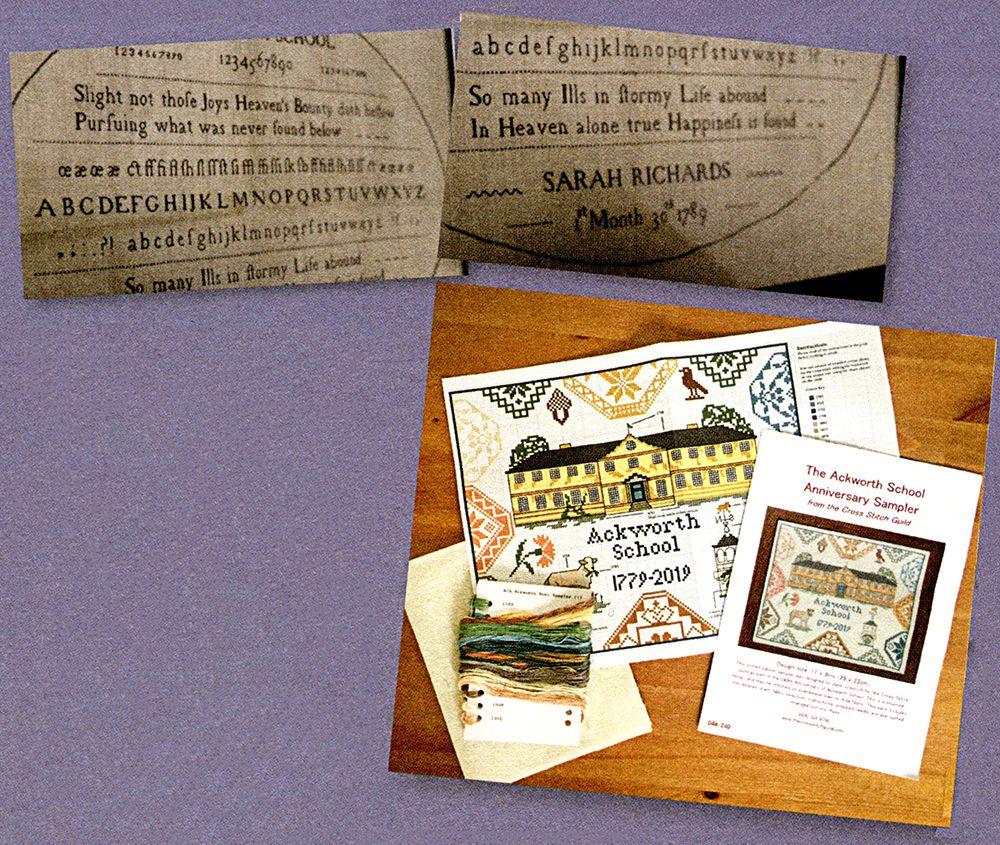
Ackworth School samplers, collected, copied, chartered, studied for so many reasons by curators, Quakers, family historians, embroiderers and tose who are simply curious, are now amongst the most instantly recognisable of all the many groups of schoolgirl needlework to have come to light over the years
Their various formats, whether lines of marking, neat inscriptions, single or superb darns, medallions and floral springs, black, white or many coloured, are quite distinctive
Yet these samplers are of their time and relate to other needlework, Quaker and nonQuaker, on both sides of the Atlantic. Their special features canperhaps tell us something about the life and times of the girls who made them: they can almost be considered a key to their exclusive world.
The story that the Ackworth samplers could tell may never be complete, but using them as documents and adding meagre personal material, information from the registers, school books and accounts, together with references to other Quaker schools and families may help to provide answers to all the familiar questions that the samplers prompt.
(Excerpt taken from “Quaker School Girl Samplers from Ackworth” by Carol Humphrey)
Ackworth School Old Scholars’ Association FULL




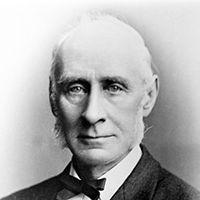

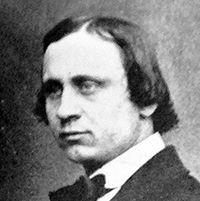
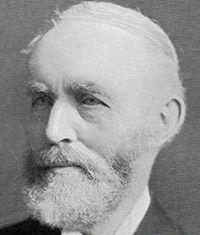
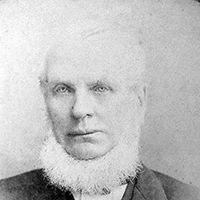
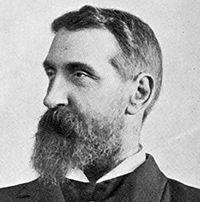

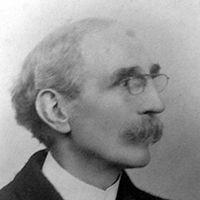
1882-83
Joseph Simpson
1883-84
William Coor Parker
1884-85
James Henry Barber
1885-86
Joseph Stickney Sewell
1886-87
Henry Thompson
1887-88
Thomas Pumphrey
1888-89
Joseph Pattison Drewett
1889-90
William Jones
1890-92
Henry Tennant
1892-93
Frederick Andrews
1893-94
Charles Brady
1894-95
Alfred Simpson

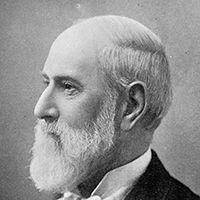
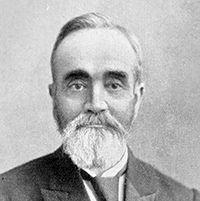

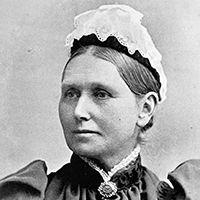

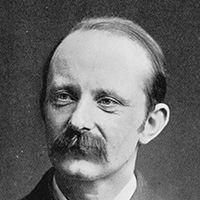
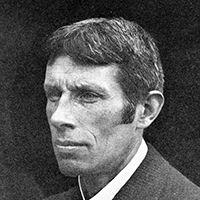
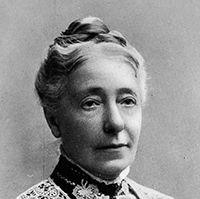
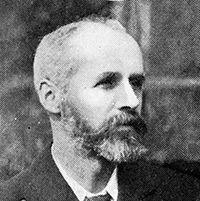
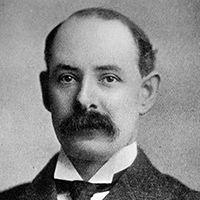
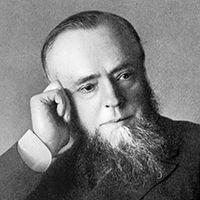
1895-96
Helen Bayes
1896-97
Sir James Reckitt
1897-98
Henry Ecroyd Clark
1898-99
Albert Linney
1899-1900
Mary Caroline Pumphry
1900-01
William Harvey
1901-02
John William Graham
1902-03
Robert Henry Taylor
1903-04
Rachel Oddie
1904-05
Alfred Henry Taylor
1905-06
Philip Burtt
1906-07
Joseph Firth Clark

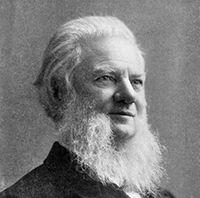
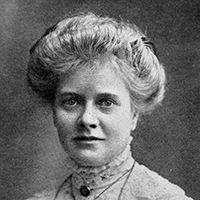
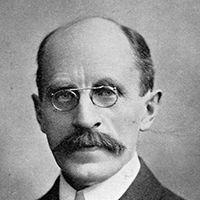
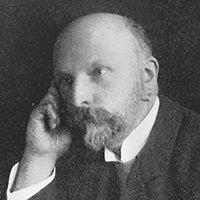
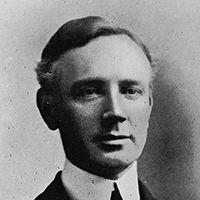


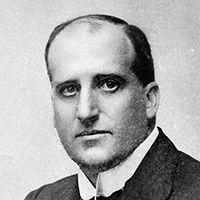

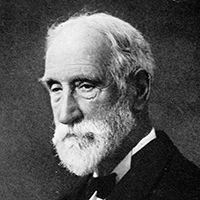
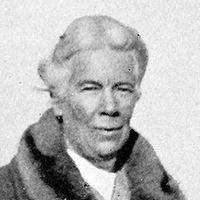
1907-08
Septimus Marten
1908-09
Joseph Spence Hodgson
1909-10
Anna Louise Jackson
1910-11
William Whiting
1911-12
J. Travis Mills
1912-13
Samuel E. Brown
1913-14
Caroline C. Graveson
1914-15
W. Trevelyan Thomson
1915-16
Sheldon Leicester
1916-19
William Graveson
1919-20
Frederick Andrews
1920-21
Ellen M. Fry
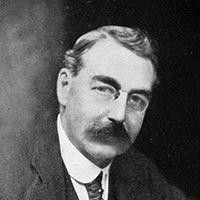
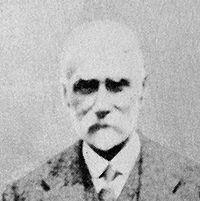
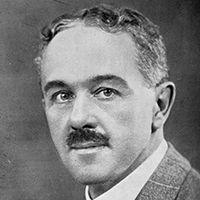


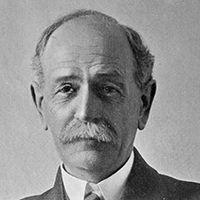
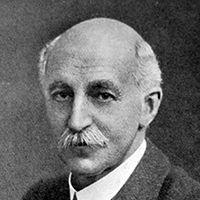
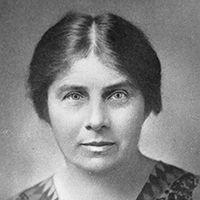
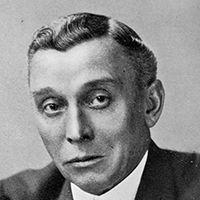
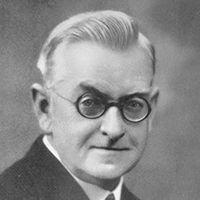
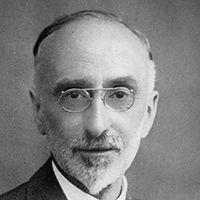
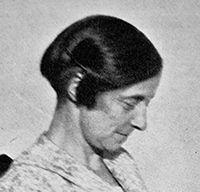
1921-22
Charles H. Smithson
1922-23
Isaac Henry Wallis
1923-24
Harold Collinson
1924-25
Henry Binns
1925-26
Margaret Andrews
1926-27
William F. Nicholson
1927-28
Alfred E. Binyon
1928-29
Mary F. Hartley
1929-30
Edmund Henry Gilpin
1930-31
Walter Robert Bayes
1931-32
Gerald K. Hibbert
1932-33
Leila Sparkes
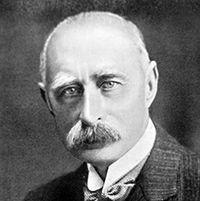
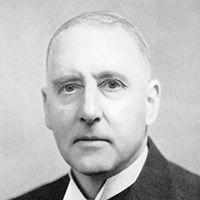
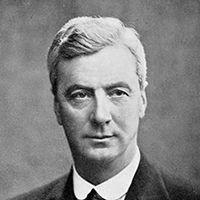
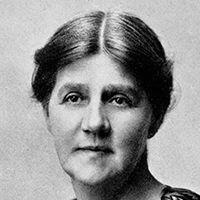
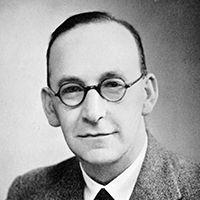


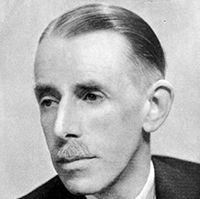



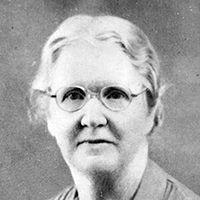
1933-34
Edgar B. Collinson
1934-35
Frank Ward
1935-36
Ernest Bowman Ludlam
1936-37
Jane H Williamson
1937-38
Thomas Foulds
1938-39
Joseph H. Lester
1939-40
Bertha Smith
1940-41
G. Noel Hyde
1941-42
Helen Andrews
1942-44
W. Arthur Cooper
1944-46
James Westwood
1946-47
Blanche M. Bennett


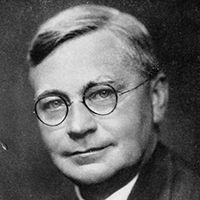

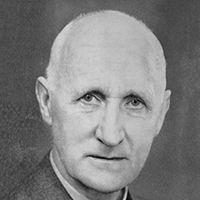
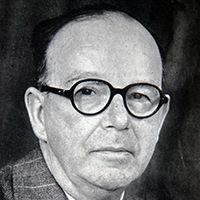


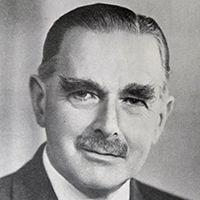
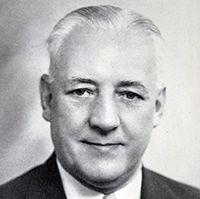

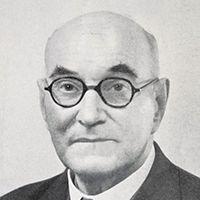
1947-48
Rowland C. Moore
1948-49
J. Stanley Carr
1949-50
Reginald Broomhead
1950-51
Eleanor Crosland
1951-52
Rex Yates
1952-53
Theodore W. Allen
1953-54
R. Percy Foulds
1954-55
Dorothy Mussell
1955-56
Bernard Wright
1956-57
A. Eric Ellison
1957-58
Lucy Binks
1958-59
James S. Lidbetter
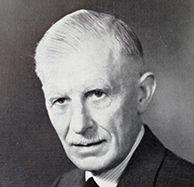
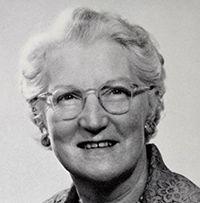


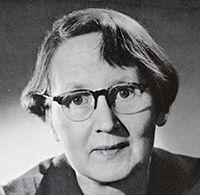
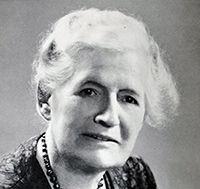
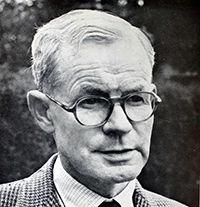

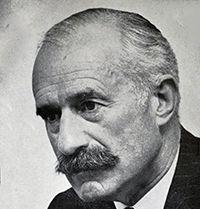
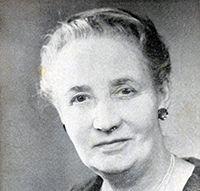
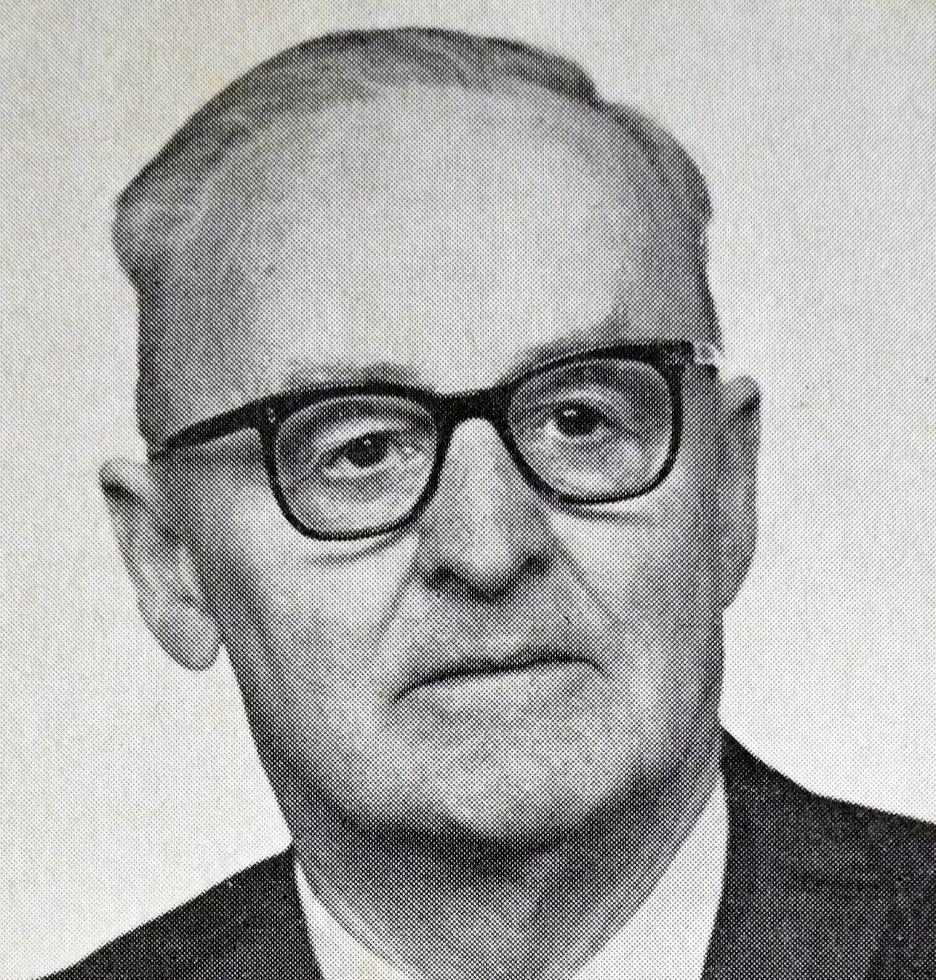
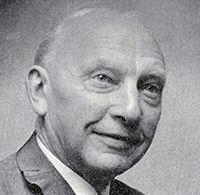
1959-60
Ashton Watts
1960-61
Lucy O’Brien
1961-62
Eric Bellingham
1962-63
Arnold Sewell
1963-64
Elfrida V. Foulds
1964-65
Helen J. Neatby
1965-66
Arthur G. Olver
1966-67
Stanley G. Horner
1967-68
Ralph E. Handy
1968-69
Kathleen Binns
1969-70
Phillip Radley
1970-71
Donald Birkett
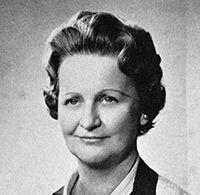
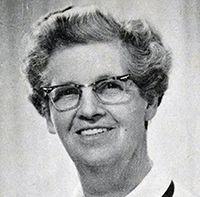
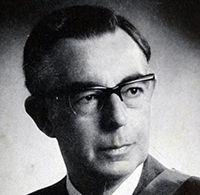


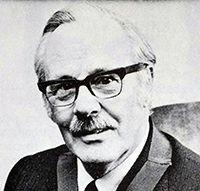
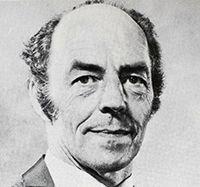

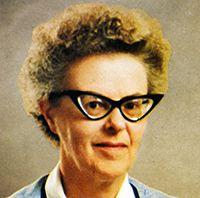
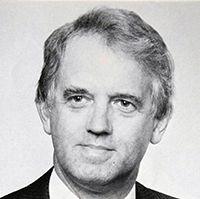
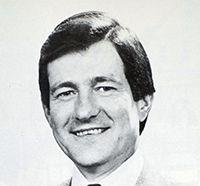
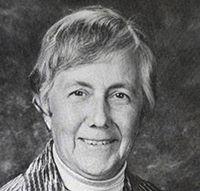
1971-72
Margaret Martin
1972-73
Phyllis M. Sadler
1973-74
Albert F. Lindley
1974-75
Stephen Burtt
1975-76
Mary Rogers
1976-77
Hilary W. Smith
1977-78
Roger Spinks
1978-79
Walter Fearnley
1979-80
Agnes Thompson
1980-81
Ian Bailey
1981-82
D. Keith Daniel
1982-83
Elisabeth F. Heywood

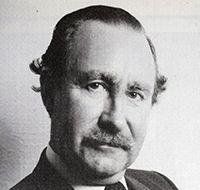
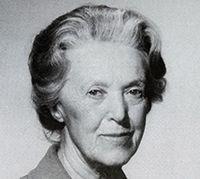
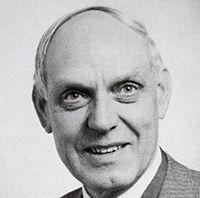
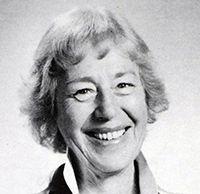
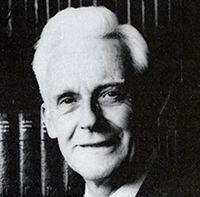
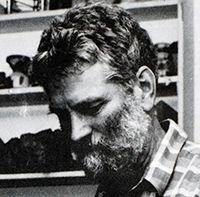
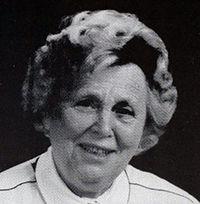
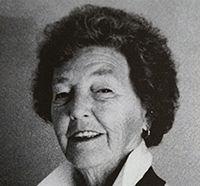
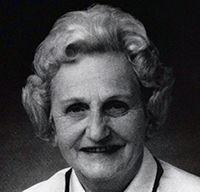
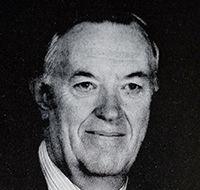
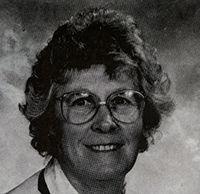
1983-84
John R. Postle
1984-85
Stephen Ward
1985-86
Mary Fulford
1986-87
George Bunney
1987-88
Molly Longley
1988-89
Colin Mortimer
1989-90
Peter Norris
1990-91
Margaret Postle
1991-92
Sheila Banks
1992-93
Celia Brebner
1993-94
Gordon Mckee
1994-95
Mary Robinson
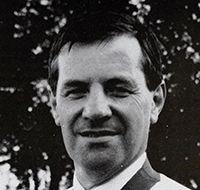

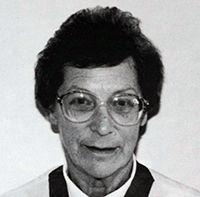
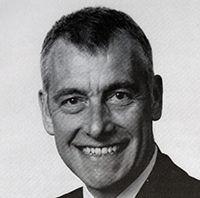
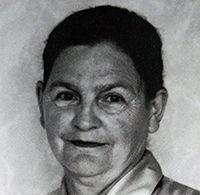
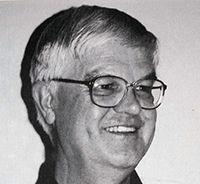
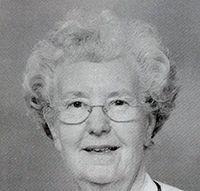
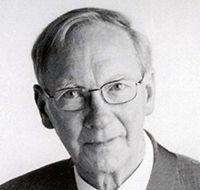
1995-96
Michael Hargreave
1996-97
Anne Telford-Kenyon
1997-98
Margery Bunney
1998-99
Robert Gibson
1999-2000
Grace Hunter
2000-01
Christopher Moore
2001-02
Celia M. Ball
2002-03
Peter Lambourn
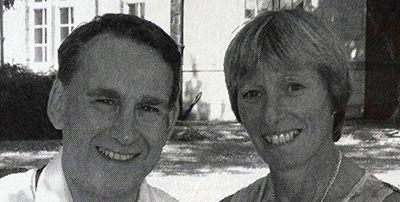
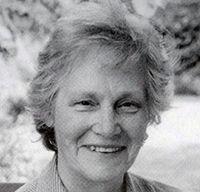
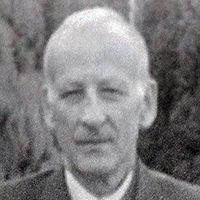
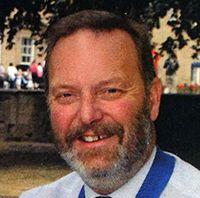
2003-04
Michael & Annabel McRobert
2004-05
Marguerite Hill
2005-06
Geoffrey R. Pedlar
2006-07
David J. Bunney
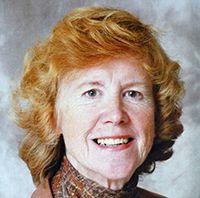
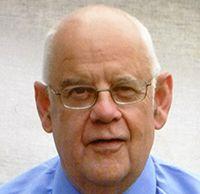

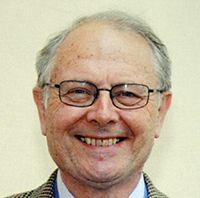

2007-08
Diana Chadwick
2008-09
Christopher Rengert
2009-10
Donald Elliott
2010-11
Martin Dickinson
2011-12
Shirley Day

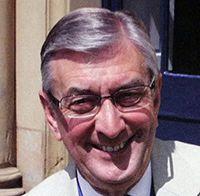
2012-13 Stephen & Joyzelle Kelsall
2013-14
Christopher Jones
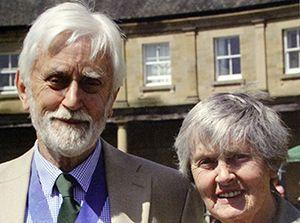
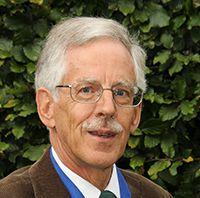


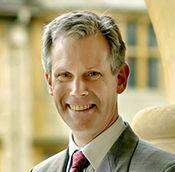

2014-15
Michael & Marjorie Bliss
2015-16
Peter Speirs
2016-17
Nicholas Seed
2017-18
Belinda Walters
2018-19
Aidan Mortimer
2019-22
Peter Causer